VOLUME 44 2023 THE SCHULICH SCHOOL OF LAW ALUMNI MAGAZINE
FROM
STADIUMS TO SESAME STREET


FROM
STADIUMS TO SESAME STREET

WELCOME
04 Dean’s Message
05 Message from Director of External Relations
06 Message from DLAA President
06 2022/23 Dalhousie Law Alumni Association
SCHOOL NEWS
07 Honouring the legacy of Meinhard Doelle
08 Award-winning faculty, impressive student accomplishments, top 100 ranking and more
10 Professors Adelina Iftene and Mike Hadskis receive top teaching awards
11 Meet Schulich Law’s newest faculty members
INTERNSHIP SPOTLIGHT
30 George Philp’s internship instigated his passion for criminal and public law
COVER STORY
32 How Schulich Law alum are changing the game in sports and entertainment law
FEATURES
18 Professor Naiomi Metallic teams up with fellow law school alum to stand up for Indigenous children
20 Schulich Law alumni reimagine community safety through the Mass Casualty Commission
24 Chief Judge Pam Williams practices patience, perseverance and persistence
28 Graham Flack reflects on a lifetime of service to Canadians
26 initio Technology & Innovation Law Clinic connects clients, classroom and community
38 Intensive courses expose students to new, emerging and specialized areas of law
40 Professor Elaine Craig works to make life safer for women and girls
41 Marc Nojh helps others whenever and wherever he can
ALUMNI RECOGNIZED
12 Alex Neve receives Weldon Award for Unselfish Public Service
14 Bertha Wilson Honour Society welcomes new inductees
15 Igor Yushchenko and Justice Mona Lynch selected as 2023 Dal Aurum Award recipients
DONOR PROFILES
42 Find out what inspired these donors to give to Schulich Law
DONOR REPORT
46 Celebrating the alumni and friends who support the law school and our programs
THE WELDON PROFESSORS
50 Learn more about our dedicated professors and research leaders
GRAPEVINE
53 Find out what your classmates are up to
IN MEMORIAM
56 Remembering the alumni and friends we lost this year
DEAN
Camille Cameron
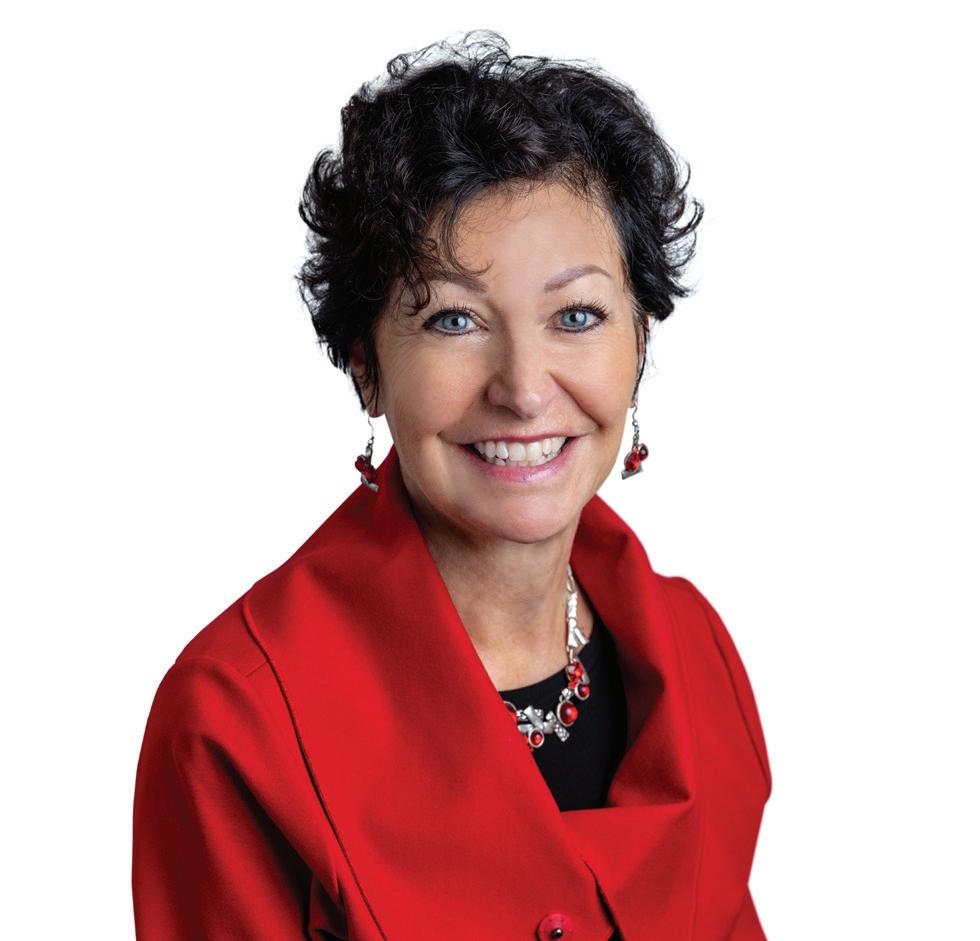
EDITOR
Stephanie Hurley
DESIGN/PRODUCTION
Sarah Orford
CONTRIBUTORS
Allison Barss
Suzanne Bowness
Lola Augustine Brown
Mark Campbell
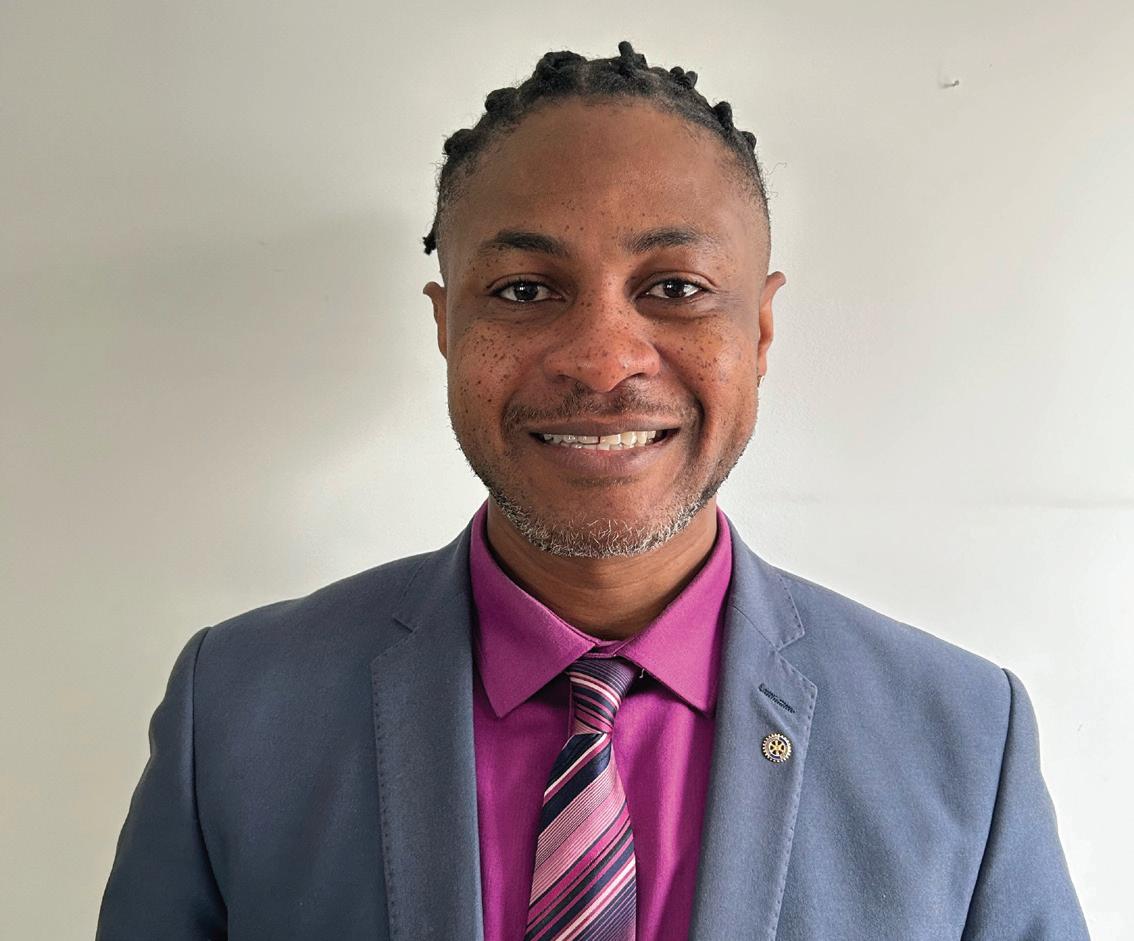

Nick Flynn
Joel Guerin
Tammi Hayne
Stephanie Hurley
Taylor Jones
Amanda Kirby-Sheppard
Allison Lawlor
Sarah MacDonald
Emma Sutro
We welcome editorial contributions and ideas from alumni. Please direct your submissions to:
HEARSAY EDITOR
Schulich School of Law
Dalhousie University
6061 University Avenue
PO Box 15000
Halifax, NS Canada B3H 4R2
lawalum@dal.ca
P: 902.494.5100
F: 902.494.4222
Mailed under Canada Post Publications Agreement #41890527
It is always a pleasure to have the opportunity to share what is going on here at Dalhousie and in the Weldon Law Building with you, our incredible alumni. More importantly, it is a chance to thank you for the remarkable value you add to the student experience at our law school.
Now that the pandemic is in the rear-view mirror, it is tempting to omit any mention of it in this message. But it is also important to acknowledge the big part it has played in our lives for the past few years, and its significant effects. This year’s graduating class spent a substantial part of their three-year legal education learning online. Thus missing out, to a significant extent, on one of the things that makes our law school experience such a rich one for students – community. Our students demonstrated their resilience by finding alternative ways to build community spirit until they were able to come back together in person.
It would be difficult to reflect on the past year without mentioning the tragic loss of our colleague, Professor Meinhard Doelle (LLB ’89, JSD ’05), who passed away in September 2022. His work and research in the fields of environmental law and climate change is truly formidable. We remain committed to honouring his memory and his legacy.
Included in this edition of Hearsay is a story about our intensive courses. These three-day courses, taught by experts, offer our students opportunities to immerse themselves in specialised or emerging areas of law. They have limited enrolment, therefore offering students a small group experience. Some of our students and instructors share their thoughts about how much they enjoyed participating in intensive courses.
Our remarkable summer internship opportunities continue to grow. Since 2009, Schulich Law’s Internship Program has placed 429 students, awarded 2.6 million in funds, and helped 178 organizations around the world. This initiative began with the support of the Schulich Foundation. It has grown due to the generosity of many other donors who have seen the potential of this program for our students and for the many organizations with whom they work as interns.
Our Jessup Moot team took home top national honours this year, placing first among all Canadian law schools and representing us at the international competition in Washington, D.C. Congratulations to the team and to the coaches, Professor Rob Currie (’98) and Sarah MacLeod (’20), on doing such a great job to bring out the best in this group of talented and hard-working students.
Our graduate students have also been recognized for excellence. Two of our graduate students won prizes this year for their research. Doctoral graduate Adebayo Majekolagbe was selected as one of the recipients of the 2023 Dalhousie Doctoral Thesis Awards for his dissertation on ecological issues. Morris Odeh was the winner of the Governor General’s Gold Medal Award in Humanities and Social Sciences. His thesis investigates the complex intersections of artificial intelligence, patent law, and social welfare.
Our collaboration with the Faculty of Computer Science continues with a joint appointment this year. Anthony Rosborough (’14), who is currently completing his PhD at the European Institute, will join us in December. Some of Anthony’s teaching will be to classes of combined Law and Computer Science students. This approach is informed by the knowledge that the complex issues around artificial intelligence and related regulatory, ethics and policy issues can only be dealt with effectively with a truly interdisciplinary learning, teaching and research approach.
This will be my last message for Hearsay as Dean. I finished my eight-year term at the end of June 2023. It is hard to believe that eight years have passed since I arrived at the Schulich School of Law. And what a wonderful eight years it has been. It has been a pleasure and a privilege to be the Dean of this excellent law school. I will continue to support the law school as a member of faculty and will ensure that I am contributing to a first-class law school experience for our students. I hope to continue to have opportunities to engage with our wonderful alumni. As I have said in all my previous Hearsay messages and on so many other occasions, you and your loyalty, excellence and support make us strong. Your contributions as mentors, teachers, donors and advisors are many and greatly appreciated. Engaging with our donors has been one of the joys of the job for me. I will miss that, but I look forward to staying in touch and seeing you at alumni events. Thank you for everything. You rock!
Camille Cameron Dean, Schulich School of Law


As the old Willie Nelson song says, we are “on the road again” and could not be more excited! After three years of pandemic-related restrictions, it has been our pleasure to host alumni receptions in Vancouver, Calgary, Toronto and Halifax over the past academic year with record attendance. We also welcomed 450 alumni back to Halifax for our 2022 Law Alumni Reunion Weekend at the Halifax Convention Centre for a festive night of music, food, guest speakers and awards, followed by Domus. The smiles tell the story of an alumni family happy to be back together face-to-face, celebrating milestones, renewing friendships and sharing stories.
We have had a very busy year in the alumni office including another banner year of registration for our Weldon Mentorship Program. The student participation rate increased by 50 percent from the previous year and the alumni participation increased by 20 percent. Student feedback has been extremely positive. They have shared that they value the opportunity to learn from you as they navigate law school and chart their future. Many of you participated in alumni panels for Orientation Week and Weldon Welcome Days. We recognized Alex Neve as the recipient of the prestigious Weldon Award for Unselfish Public Service and inducted seven outstanding alumni into the Bertha Wilson Honour Society. The Dalhousie Law Alumni Association (DLAA) Board met twice on your behalf and once again this year provided students with study treat bags in partnership with the Law Students’ Society. We continue to be active on social media and our website showcasing alumni, students, staff and faculty members who have achieved milestones or significant accomplishments. We have wrapped up a year-long project to update contact information for our alumni and with the help of our summer student, Ferris Vasko, have located hundreds of individuals who are now back in contact with us. These are just some highlights of our work over the past year.
Students will soon return to campus for the fall semester and at that time, we will welcome a new Dean to the law school. Dean Camille Cameron will return to teaching and research after serving eight remarkable years in the role. We will miss her passion and are grateful for her many meaningful contributions to the law school. Along with our alumni family, we extend our best wishes to her for the future. I know a new Dean will be excited to meet many of you, so we look forward to hosting receptions in various communities over the coming year.
As always, Tammi Hayne and I would like to thank you all for your support and commitment to the law school. Our alumni play a critical role in the student experience. When you volunteer, provide financial support, mentor, teach, and more, you positively impact the future lawyers who will proudly carry the Dalhousie legacy throughout their careers. We hope you enjoy this 44th edition of Hearsay and look forward to keeping you closely connected to us, and each other, in the years to come.
Darren Dick Director, External Relations Schulich School of Law
To my fellow alumni, I would like to start this message by congratulating the Schulich School of Law’s graduating class of 2023. It is fair to say that your time at Schulich Law has not been the most conventional. With most of your classes being virtual and online, your law school experience was much different than most alumni. Thankfully, this last academic year most of you were able to return to the classroom. I want to extend my thanks to the students, faculty and staff at the law school for the resilience, creativity and perseverance you have all shown during the last few years.
A return to classes also meant a return to more social events. With over 450 alumni in attendance, our reunion in September was the largest we have ever had. Earlier this year, in Halifax, we also had the first in-person Dean’s Reception since the pandemic started. Despite some messy weather, the turnout was amazing and a broad range of alumni spanning decades of graduating classes were in attendance. If there was one takeaway from these events, it is that alumni want more opportunities to come together. I am hopeful that the Dalhousie Law Alumni Association (DLAA) will be able to organize more events over the next year.
The DLAA will continue to engage the more than 8,000 alumni we represent. I encourage you to continue the Weldon Tradition by joining the Weldon Mentorship Program or nominating extraordinary alumni for the Bertha Wilson Honour Society and the Weldon Award for Unselfish Public Service. If you have your own ideas for ways to celebrate and support alumni, please do not hesitate in bringing those ideas to the Board’s attention.
I expect this may be my last year as the DLAA President. With that said, I would like to extend my gratitude to all those individuals that have supported me and guided me through this role. Thank you to my fellow board members, Dean Cameron, Darren Dick and Tammi Hayne for all of the time and commitment they have given to the DLAA.
EXECUTIVE PRESIDENT
Tony Amoud (’09) tonyamoud@hotmail.com
VICE PRESIDENT
Tricia Ralph (’09) tricia.m.ralph@gmail.com
PAST PRESIDENT
Mary Hamblin (’99) maryhamblin@gmail.com
EX-OFFICIO
Dean Camille Cameron camillecameron@dal.ca
HONORARY PRESIDENT
Brian Flemming (’62) bflem8861@aol.com
DIRECTOR, EXTERNAL RELATIONS
Darren Dick darren.dick@dal.ca
SECRETARY
Tammi Hayne lawalum@dal.ca
LAW STUDENTS’ SOCIETY PRESIDENT
Danielle Bailey-Heelan, JD Candidate (’24) president@dallss.com
LAW STUDENTS’ SOCIETY VP EXTERNAL
Eni Oguntona, JD Candidate (’25) vpexternal@dallss.com
MEMBERS AT LARGE
Tyana Caplan (’02) tcaplan@stewartmckelvey.com
Ansley Simpson (’09) asimpson@cartersimpson.ca
OFFICERS
ATLANTIC CANADA
Alexander Mackillop (’15) alexander@mplawgroup.ca
EASTERN/CENTRAL CANADA
Subrata Bhattacharjee (’93) sbhattacharjee@blg.com
USA
Bruce Rawding (’81) bruce_rawding1@redlands.edu
INTERNATIONAL (NON-USA)
Samina Thind (’09) samina@johnstreetcapital.com
GRADUATE PROGRAM
Elizabeth Dipchand (’20) edipchand@dipchand.com
YOUNG ALUMNI
Erin Minuk (’19) erinminuk@outlook.com
BRANCH PRESIDENTS
NORTHWEST TERRITORIES
Christopher Buchanan (’11) buchanan.christopher@gmail.com
BRITISH COLUMBIA
Stephanie Fabbro (’98) stephanie@hamiltonfabbro.com
ALBERTA
Brian Beck (’93) brianbeck@glbh.com
SOUTHERN ONTARIO
Chris Hale (’87) cchale@hotmail.com
SOUTHEASTERN ONTARIO
Ian MacKay (’82) ian.mackay@rogers.com
NEW BRUNSWICK
Peter Zed (’80) ptz@coxandpalmer.com
NEWFOUNDLAND AND LABRADOR
Robert Hickey (’91) robert.hickey@mcinnescooper.com
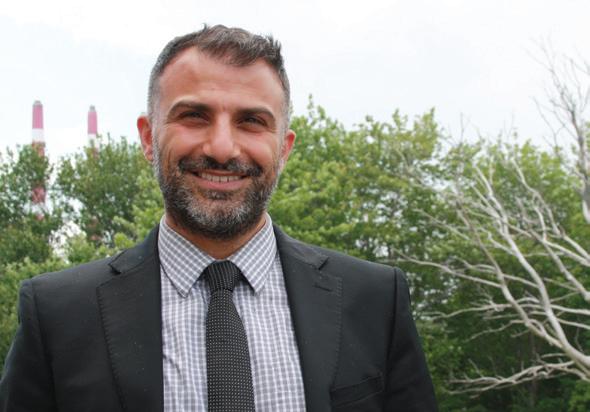
ASIA
Stephanie Monteith (’93) monteith.stephanie@gmail.com
MIDDLE EAST
Maya Nix (’04) maya.nix@gmail.com
UNITED KINGDOM
David Gossen (’03) dlgossen@gmail.com
Last September, the law school community suffered a tremendous loss with the passing of beloved colleague, professor, friend and environmental law scholar, Dr. Meinhard Doelle (LLB ’89, JSD ’05).
Meinhard was a member of the faculty of the Schulich School of Law and Marine & Environmental Law Institute (MELAW) from 2003 to 2022. He was a passionate researcher, teacher and environmental law advocate on a local, national and international scale. He mentored numerous students and colleagues over the years and was a highly trusted and reliable advisor to many inside and outside the university.
His expertise was extensive, from international climate law to environmental assessment law to forestry and aquaculture law to decarbonization of shipping. He had a clear vision and passion for wanting to change the law in the pursuit of sustainability and had great empathy and compassion for the needs of others.
The faculty of law, along with his colleagues, students, friends and family, are committed to honouring his legacy with many initiatives and tributes being organized in his memory.
The Schulich School of Law has established the Professor Meinhard Doelle Award. It will be given to a student who demonstrates a commitment to thinking creatively about environmental law scholarship to seek solutions to pressing environmental and sustainability challenges that face the planet and humanity.
“The Meinhard Doelle Fund has been supported by many who had known him and felt his impact personally and professionally,” says Sarah MacDonald, Schulich Law’s Assistant Dean, Advancement. “We currently have the funds to support one award annually. It is our shared goal to have two awards each year – one for a JD student and one for a graduate student.”
The Marine & Environmental Law Institute plans to honour their late colleague by including a section of invited papers titled Reflections in Honour of Meinhard Doelle in this year’s Ocean Yearbook (vol 38) with an anticipated publication date of May 2024. Plans are also underway for a Meinhard Doelle Memorial Lecture to take place in the coming year with the hope of continuing in the future.
In June, Canadian environmental law professors gathered for the ninth biennial Justice, Ecology, Law and Place (JELP) Conference in Algonquin Park in his memory. Schulich Law Associate Professor Sara Seck attended the gathering and shared, “Meinhard touched the hearts and minds of many members of the Canadian environmental law academy, and his legacy will live on in our work. He was honoured through presentations at the workshop as well as in an evening paddle on the lake in canoes and kayaks.”
Professors Kristin Bartenstein (Laval), Aldo Chircop and their research team dedicated a recent (open access) book, Shipping in Inuit Nunangat, to Meinhard. There are also several upcoming publications that will honour his memory including Climate Law (edited by Alexander Zahar), a special issue of the new JELP journal (co-edited by Dayna N. Scott and Deborah Curran) and The Research Handbook on the Law of the Paris Agreement (edited by Alexander Zahar).
Meinhard’s wife, Wendy, describes him as a loving husband who was deeply understanding and nonjudgmental. He supported her fully as she explored avenues of personal growth and furthered her education. Meinhard had a lifelong passion for learning. This was evident in his teaching, and in the way he raised his family. He fostered a love of knowledge in his daughters, encouraging them to pursue their interests and seek out every learning opportunity. He also enjoyed learning from them. He listened attentively and engaged when they talked about their studies or work. He was their number one fan, supporting them in school, sports, work and life.
In a 2019 Dalhousie Environmental Law News blog post, Meinhard shared: “To save the planet, nature, and human civilization, environmental protection and sustainability need to become mainstream, an integral part of everything we do…We cannot afford to think of environmental law as distinct and separate from the governance of human society. Environmental law needs to be integrated and adaptable, and we need to regularly re-evaluate where the opportunities are to shift human civilization toward sustainability.”

“As an academic and a teacher, I am mindful that to achieve this, we need to reach all students, and we need to educate with a message of modesty that is based on the premise that the world is changing too fast for us to have and teach answers, and to instead give our students the tools for critical analysis, so that they can diagnose the problem in light of ever changing circumstances and find their own solutions, solutions that are today still inconceivable, and are designed for problems that will look very different when our students are ready to take them on.”
If you would like to support the award, you may do so online at giving.dal.ca/Doelle or contact Sarah MacDonald at sarah.b.macdonald@dal.ca or 902.476.3212.
In March 2023, Schulich Law’s Philip C. Jessup International Law moot team won the national championship. The team of Nicole Arski, Brent Campagnola, Julia Hiltz and Taline Selman were coached by Professor Rob Currie and Sarah MacLeod.
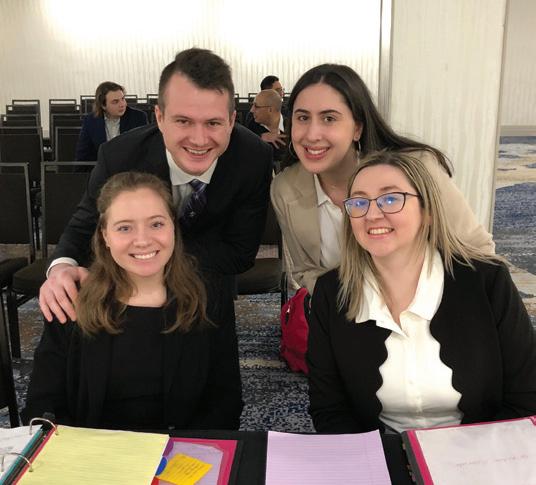
They also earned First Place Memorials (Written Submissions), First Place Applicant Memorial (Nicole Arski and Julia Hiltz) and Third Ranked Oralist Nationally (Julia Hiltz).
They proceeded to the International Rounds in Washington, D.C., where they competed with teams from nearly 100 countries. It is the first time Schulich Law was represented on this stage since 2008 and the first time the law school won the national championship since 2000.
“It was a privilege to represent Canada at the International Rounds,” shares the team. “The Jessup Moot has undoubtedly been the highlight of our law school experience because of our excellent team dynamic and the invaluable support and expertise of our coaches and practice judges.”
In April 2023, the Schulich School of Law announced its participation in the Qanittaq Clean Arctic Shipping Initiative.
The Government of Canada announced a seven-year, $91M investment through the Canada First Research Excellence Fund grant program for the unique partnership, co-led and co-developed by Memorial University and the Inuit Circumpolar Council Canada.
The project will address and respond to concerns about Arctic shipping and related environmental impacts affecting Northern communities.
“It is an honour to help advance the governance of Arctic shipping in Canada, and especially to build Inuit capacity to participate effectively in decisions that affect their homeland, Inuit Nunangat, in the spirit of reconciliation,” says Dr. Aldo Chircop, professor and governance theme leader. “This is a unique opportunity for the Marine & Environmental Law Institute, Schulich Law and Dalhousie to contribute research and education expertise in an unprecedented project.”
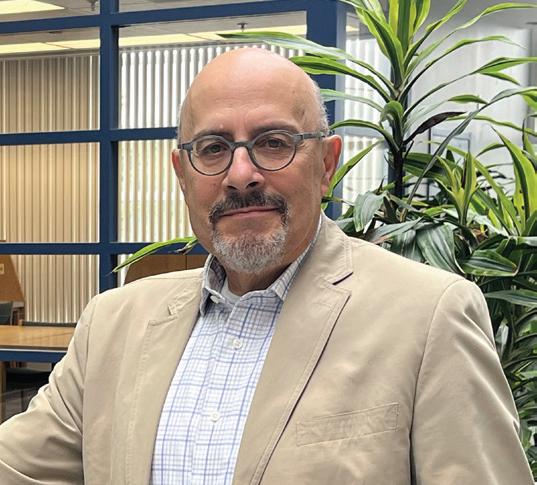
Adebayo Majekolagbe received the 2023 Dalhousie Doctoral Thesis Award for his dissertation on ecological issues. His thesis looks at just transition as a socio-ecological, wellbeing-centric notion.
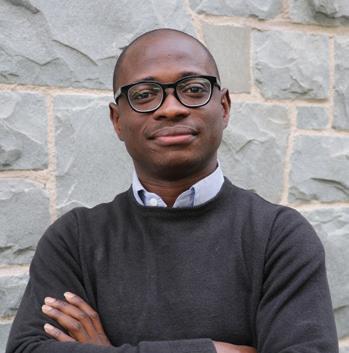
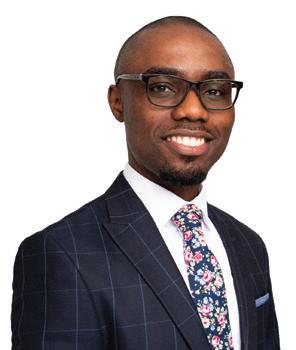
Presented by the Faculty of Graduate Studies, the award recognizes the top theses submitted by PhD students in each calendar year. He was chosen from the Arts, Humanities, and Social Sciences category. He was also one of Dal’s nominees for the CAGS-ProQuest Distinguished Dissertation Award, awarded by the Canadian Association for Graduate Studies.
Morris Odeh was selected as the winner of the 2023 Governor General’s Gold Medal Award in Humanities and Social Sciences. His thesis investigates the complex intersections of artificial intelligence, patent law, and social welfare.
Odeh will be continuing his studies at Schulich Law and completing his PhD research on Public Health, Intellectual Property, and Human Rights.
Anne Matthewman, Chief Librarian at the Sir James Dunn Law Library, retired at the end of June 2023 after 13 years in the role.
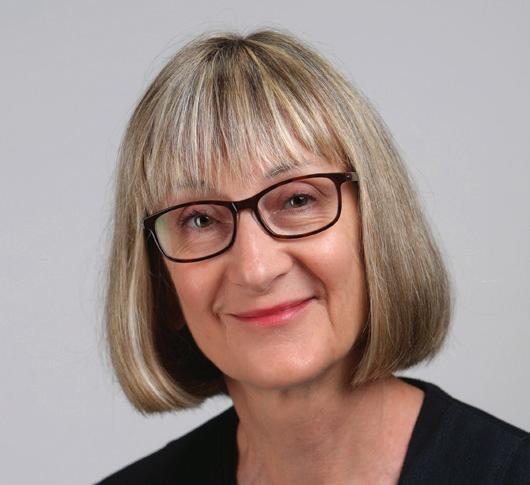
During that time, she provided strong leadership for the law library, working collaboratively with the university library system while at the same time advancing the work and interests of the law library.
Matthewman contributed to the curriculum as an instructor for legal research and writing courses and has been a member of many law school committees. She was also a senior leader at the central university level, in her role as Associate Dean, Learning and Teaching. In this role, she worked with Dal Libraries’ staff who provide instruction and information literacy programs and support to faculty and students, to coordinate existing efforts and to develop new programmes, policies and best practices in library instruction and information literacy.
We wish her well in her next chapter!
For the past three years, Professor Sheila Wildeman (’99) and other academic and arts-based researchers worked with six community researchers labeled with intellectual disabilities to bring attention and awareness to disability rights.
The partnership with Inclusion Nova Scotia and Schulich Law saw members of the My Home, My Rights Collective, who have long been vulnerable to human rights abuses, use arts-based methods of active research to reflect on human rights at home and in our communities.
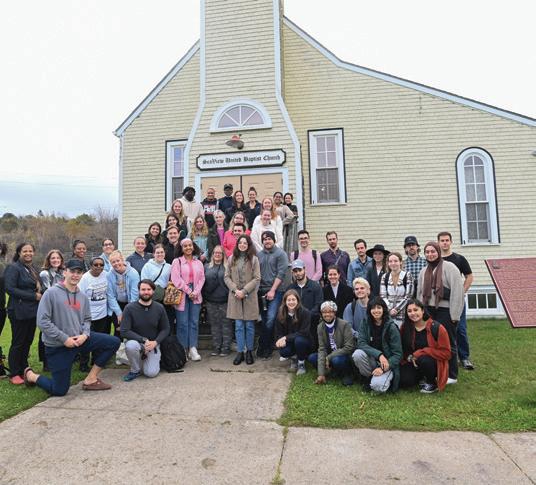
Among the Collective’s many advocacy initiatives was the creation of three short videos dramatizing injustices drawn from their own lives, which was launched at Club Inclusion in December 2022, as well as a collaboration with internationally renowned photographer David Simmonds to co-create portraiture expressive of each person’s sense of disability justice and injustice at home and in the community, which was featured as an art exhibit at the Halifax Central Library in May 2023.
Shawna Paris-Hoyte, ONS, K.C., with Dalhousie Legal Aid Service, was awarded the 2022 Distinguished Service Award by the Nova Scotia Barristers’ Society. The award is presented to a member who has made significant contributions to their community, the legal profession and the Society.
As a public servant and volunteer, her commitment to community spans almost five decades. She has dedicated 28 of those years to public legal education, pro bono legal services and legal aid as a tool and means to provide access to justice for the marginalized and disenfranchised populations.
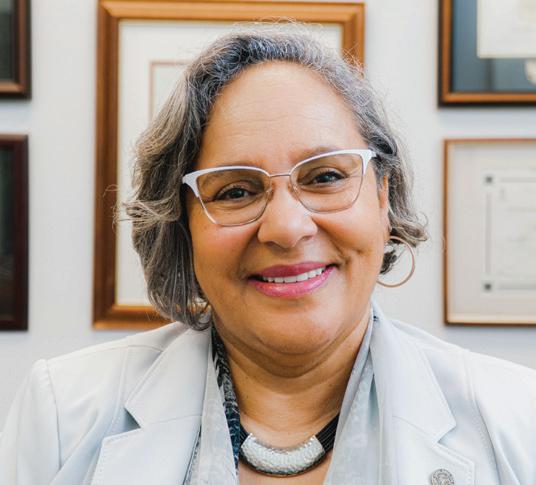
“As the first Black lawyer/ African Nova Scotian and person of colour to receive this award, I am beyond words,” says Paris-Hoyte. “I am grateful for the sacrifices of my children in supporting my career. I acknowledge my community, and my ancestors who guide my path, always. I believe that ‘to whom much is given – much is expected.’ I will endeavour to live up to those words as I continue to set a path for others.”
Schulich Law advanced into the top 100 universities in the world for studying law in one of the most-watched global rankings of universities by subject area.
The 2023 Times Higher Education (THE) World University Rankings by Subject placed Dalhousie in 81st place for Law (of 291 universities considered) – an indicator of its status as one of the best universities in the world for law degrees. Schulich Law is now ranked sixth in Canada for its Law program.
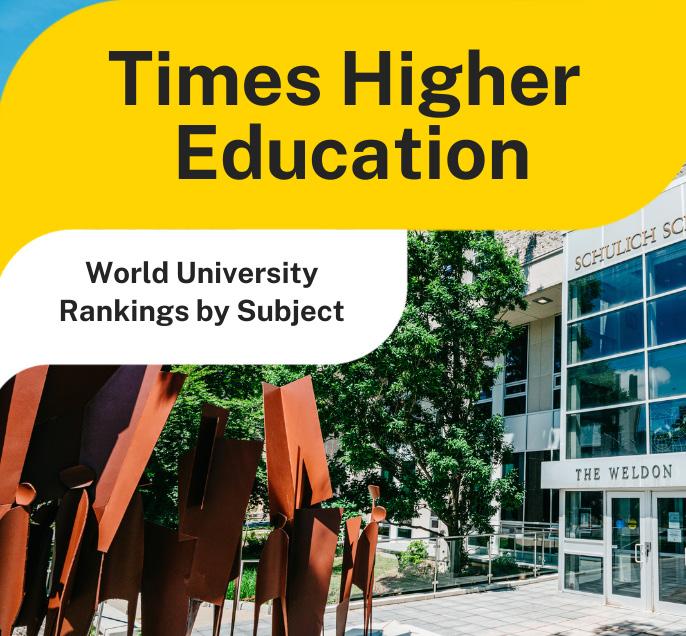
The success marks a return to the top echelon for the law school, which also ranked in the top 100 in the 2018 and 2019 rankings – the first two years the rankings included Law.
“We are very proud of our strong reputation, but no one affiliated with our school takes this for granted – we are committed to earning it every day through teaching, research, innovation and public service,” says Dean Camille Cameron.
In October 2022, Schulich Law introduced its first mandatory course on African Nova Scotian Legal History & Issues and Critical Race Theory (ANS/ CRT). All first-year law students will take the intensive course which is offered over three days in October and two days in February.
The objectives include understanding: (1) the law’s role in creating and redressing antiBlack racism and other forms of discrimination; (2) how critical race theory and practice can help dismantle racial inequity; (3) how African Nova Scotians are a legally distinct people; and (4) how to be culturally competent lawyers within the context of lawyers’ professional obligations.
“It is imperative that law students and lawyers understand the legal history, contributions and current issues facing African Nova Scotians as a distinct people, as well as how slavery, segregation and human rights cases have shaped Canada’s human rights framework and related case law,” says Professor Michelle Williams.

Exceptional teaching is at the heart of Schulich Law’s mission. The winners of this year’s Teaching Awards exemplify the importance of providing a first-class legal education, while making students feel supported in the classroom and beyond.
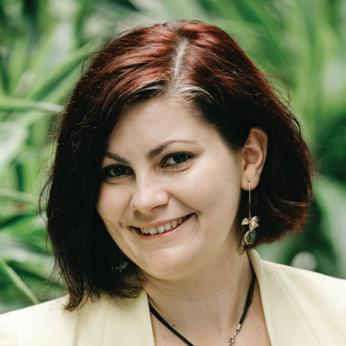
This award is given in recognition and appreciation of excellence in teaching demonstrated by enthusiasm, commitment, dedication and outstanding service to students. Nominations are made by current law students and a recipient is selected by a committee comprised of students and alumni. This year’s recipient, Professor Adelina Iftene, joined the law school community in 2017. She was also the recipient of the Hanna and Harold Barnett Excellence in Teaching Award in 2019.
“Writing a nomination letter and seeking signatures requires time and energy. Taking the time to do that is a beautiful recognition of the fact that in some small way I touched students’ lives. That’s an incredible honour. Being selected to receive this award is an additional honour,” says Iftene. “Schulich Law has a richness of teaching talent. I learned so much from my colleagues over the past few years – many of them have been remarkable teachers and mentors to me and I know they are to the students as well. In this context, receiving this award is even more humbling.”
Iftene’s teaching philosophy is not just about the transfer of information. “It is about building and fostering relationships and being part of students’ professional, and sometimes personal, journeys of discovery and growth during law school. In turn, each class and each student is part of my continuing journey of growing as a teacher and as a human. Thus, I approach teaching as relationship building that supports each of our journeys and growth.”
She says the most rewarding part of teaching law is watching students become incredible, thoughtful and caring legal professionals and seeing how the legal profession becomes better as each of her students joins it.
Camille Guthrie, third-year student and nominator, says that she cannot think of anyone more deserving of this honour. “Dr. Iftene exemplifies every trait and ability this award looks to recognize. She has a very clear dedication to and enthusiasm for teaching. In every course I have taken with her, the lectures have been thoughtfully presented and delivered in a very effective manner. She teaches in a way that makes students want to pay attention and learn. She is by far the most kind and caring professor I have had. The Schulich School of Law is extremely lucky to have her.”
The Hannah and Harold Barnett Excellence in Teaching Award is given by the Law Students’ Society to a professor who teaches first-year law. Each section puts forward a nomination and a winner is chosen by a committee of students.
This year’s recipient, Professor Michael Hadskis, has been teaching at Dalhousie University at the undergraduate and graduate levels for the past 19 years. During this time, he has pursued his passion for interdisciplinary education by teaching students in Dalhousie’s Faculties of Law (2004-present), Health (2010-present), and Medicine (2004-14) and by overseeing the delivery of the law curriculum in the Faculty of Dentistry (2004-14).
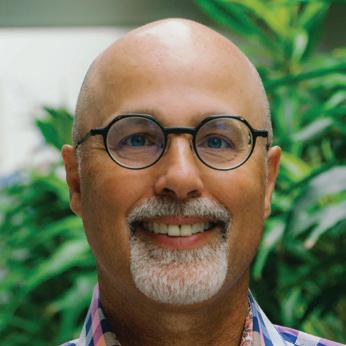
“Receiving this award is a high honour and marks the highlight of what has been a very professionally rewarding year of teaching tort law to a warm, bright, thoughtful, appreciative and engaged group of students,” says Hadskis.
He shares that his teaching philosophy strives to create a learning environment in which students feel supported, respected, heard and engaged, and are a full partner in the learning process. “I take measures to develop a learning community marked by cooperation among the students, approachability between the students and myself, and an appropriate level of lightheartedness.”
He says the most rewarding part of teaching law is helping students grapple with difficult legal concepts and watching their confidence grow as they discover that they have the skills and aptitude to be effective legal professionals.
“I feel enormously privileged to have been able to contribute to student learning and to the law school’s educational mission over the past 19 years,” says Hadskis. “Not everyone finds a career that completely fulfills them – I am indeed fortunate to have done so.”
First-year student and nominator, Juliet Watts, says that Professor Hadskis has gone above and beyond as a first-year professor. “He has made the content digestible and engaging but remained highly effective in teaching us how to tackle hypotheticals. The classroom energy is fun and humorous, while still taking the material seriously. He has made himself very accessible. He also set out to normalize the law school experience and often reminded us to keep things in perspective in this high pressure environment. His mastery of the material, widely loved teaching style and ever present kindness make him deserving of the award.”
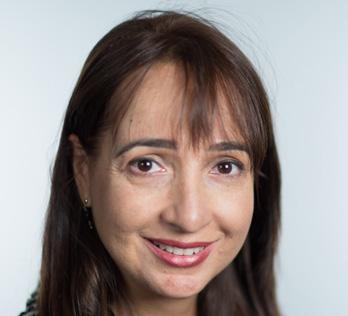
Dr. Patrícia Galvão Ferreira will join the law school as an Associate Professor and member of the Marine & Environmental Law Institute. She received her SJD from the University of Toronto and an interdisciplinary doctoral degree in dynamics of global change from the Munk School of Global Affairs & Public Policy. She holds an LLM in international human rights law from Notre Dame University and an LLB from the Federal University of Bahia. Her research focuses on transnational environmental law and justice. She will teach Climate Change, Energy Law, Introduction to Environmental Law for Engineers, and Public Law.
Anthony Rosborough
Anthony Rosborough has accepted a joint Faculty of Law/Computer Science position with Dalhousie. He is an intellectual property lawyer and doctoral researcher at the European University Institute in Florence, Italy. He is a graduate of the University of King’s College, where he completed the Foundation Year Programme (FYP) and received his Bachelor of Arts, majoring in Political Science. He graduated from the Schulich School of Law in 2015, was admitted to the Bar in Nova Scotia in 2016 and practiced with a Halifax law firm. He later completed his LLM in Intellectual Property & The Digital Economy at the University of Glasgow. He will teach Law and Technology this year.
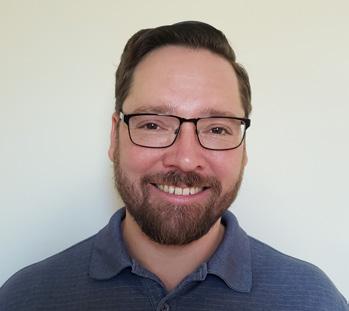
Mark Lewis
Mark Lewis has been at the Sir James Dunn Law Library since 2001 and will now take on the role of Chief Law Librarian. He has worked collaboratively with students and faculty members in their research efforts and has worked in the areas of research dissemination and open access initiatives, the use of technology in legal research and the delivery of legal information in an electronic form. He has also taught in the Legal Research and Writing program for the past 12 years as well as teaching Pre-Law in the Indigenous Blacks & Mi’kmaq (IB&M) Initiative. He is a proud Dalhousie alum (MLIS ’00, GDPA ’13). He will teach Advanced Legal Research this year.

Melisa Marsman has accepted the role of Assistant Professor with the law school. She was a Purdy Crawford Fellow for the 2022-2023 academic year and served as an instructor. She graduated from Schulich Law in 2005, was called to the Bar in 2006 and has since practiced law in Nova Scotia in a variety of business law areas, as a private practitioner as well as in-house legal counsel. After returning to law school to complete an LLM in 2021, she was a part-time instructor in the 2021-2022 academic year. She will teach African Nova Scotians and the Law/Critical Race Theory, Business Associations, and Critical Race and Legal Theory.
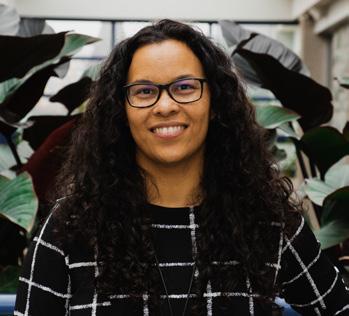
Matthew Dylag’s term as Assistant Professor has been renewed for an additional year. He is an access to justice scholar with a particular interest in how emerging technologies are being integrated into the justice sector. Prior to joining Schulich Law in 2022, he was a Max Weber Fellow in Law at the European University Institute. He obtained his PhD from Osgoode Hall Law School in Toronto. Within the realms of law and technology, He is interested in issues surrounding ethics, the rule of law, equality and human rights, and research methodologies. He will teach Civil Procedure and Legal Professions.
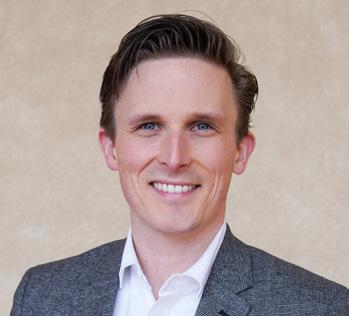
International human rights lawyer Alex Neve (’87) has seen his fair share of triumphs and atrocities over the years. But even in the darkest moments, and there have been many of late, he has never lost his abiding optimism that progress is not only possible, it is inevitable.
“Maybe it’s because I have been involved in the struggle for a few decades, but I have a firm belief that the people will prevail,” he says. “When we come together, there is incredible potential for change. If we can hold on to the many times a bad government has fallen, a human rights treaty has been adopted, or a wrongfully imprisoned individual has been freed, we can find the energy and determination to take on the very real struggles we have ahead of us.”
Neve’s efforts to advance human rights at home and around the world have been recognized with several prestigious honours, including the Order of Canada, the Queen’s Diamond Jubilee Medal and now the Schulich School of Law’s 2022 Weldon Award for Unselfish Public Service. Named for Richard Chapman Weldon, the founding Dean of the law school, the award is bestowed upon alumni who uphold its namesake’s legacy of unselfish public service through their contributions to the community and the legal profession.
“Alex’s career is, in my view, the definition of unselfish public service,” says Darrell Dexter (’87), who served as premier of Nova Scotia from 2009 until 2013. “He has worked unceasingly throughout his career on behalf of refugees and others who suffered from forms of oppression and violations of human rights in this country and internationally.”
That desire to address oppression first manifested at law school, where Neve joined campus protests involving apartheid, nuclear disarmament and US military activity in Central America. He drew on it as a young lawyer, at first in the service of union-side labour
law in Halifax before transitioning to his own refugee law practice in Ontario. But Neve found a significant outlet following his first Amnesty International chapter meeting at Dalhousie in his first year of law school. That meeting not only galvanized his approach to activism and advocacy but also laid the foundation for a volunteer relationship that culminated in Neve becoming secretary general of Amnesty International Canada (AIC) in 2000.
Over the next 20 years, Neve served as AIC’s chief organizational representative, senior advocate and spokesperson with regard to Canadian and international human rights issues. During that time, he led or participated in over 40 human rights research and advocacy delegations and trial observations in 20 countries in Africa, Asia and the Americas. He directed the organization’s legal program, intervening in and launching more than 50 cases with pro bono legal teams at the Supreme Court of Canada, the Supreme Court of the United States, federal court, provincial courts, tribunals, public inquiries and UN bodies. And Neve played a key role in securing the repatriation of several Canadian citizens who had been imprisoned and tortured in the wake of 9/11, including Omar Khadr, who had been held at Guantánamo Bay, and Maher Arar, who had been held in Syria.
“To have been involved in those campaigns and to stand alongside those men, their families, and other activists to make that happen was one of the most humbling, eye-opening and exhilarating moments I’ve had in human rights work,” says Neve, who also supported negotiations for an apology and compensation for these men from the Canadian government.
In addition to those cases, Neve participated in Amnesty International’s effort to convince governments to establish the International Criminal Court to investigate and prosecute cases involving human rights abuse. He worked to secure an agreement from the United Nations Security Council to send a peacekeeping force to East Chad to protect thousands of local civilians, as well as Darfur refugees who were being attacked and raped after escaping human rights violations in Sudan.
And he worked alongside Indigenous women lawyers who produced Amnesty International’s groundbreaking report, Stolen Sisters: A Human Rights Response to Discrimination and Violence against Indigenous Women in Canada. It is that mix of systemic changes and individual cases that keeps Neve engaged in his work.

“Human rights work is strongest when we tackle both sides,” he says. “We need to stand up in instances when injustices are happening to individuals. But a world in which injustices happen is surely not the world we want. What we want to be doing is creating a better world where unjust imprisonment, torture, cruel deportations and the death penalty aren’t happening in the first place.”
Neve’s efforts are, in large part, inspired by his parents. His father, a Calgary-based lawyer who passed when Neve was eight, approached his work with integrity and empathy for his clients. His mother, a dietician, motivated him through her own efforts to advocate for accessible daycare in Alberta in the 1970s. “I remember her coming home after long days of working in a hospital kitchen, totally exhausted, but gathering her pamphlets and heading out to rallies or organizing meetings,” he says. “I understood from her that if you feel something’s wrong, do something about it. Don’t stay silent or inactive.”
Law became a way for Neve to do something and law school became the means to gain the necessary skills and knowledge to have an impact, both through his studies and the politically and socially engaged community he encountered at the university.
“I had wonderful professors who were willing to help me find ways to pursue my passion through my courses,” Neve says. “I did papers on international human rights law for courses on poverty and the law, and women and the law. I did an independent research paper with Wayne MacKay on torture and international human rights law. That is where it all began, and I never looked back.”
Audrey Macklin has witnessed Neve’s journey first-hand. A professor of law at the University of Toronto, she met him when he was employed at the Centre for Refugees at York University in the 1990s and then worked with him on Khadr’s case. “One of the many admirable features of Alex’s professional trajectory is that he has moved effortlessly between the domestic and the international, from policy to front-line work at a shelter, and from legal representation to legal education, adjudication and advocacy,” Macklin says. “His work in each sphere has been linked by a common thread of deep commitment to the advancement of human rights, dignity and justice.”
Being recognized with the Weldon Award has considerable emotional resonance for Neve. “Given that the word unselfish is in the title, it is quite special,” he explains. “As lawyers, we have an important role to play in advancing human rights protection and
in addressing violations of those rights. It must be at the heart of what we do, and this is a validation of how crucial the human rights struggle is to any legal career.”
Although Neve stepped down from his duties at AIC in 2020, he continues to make progress in creating a better world. He is imparting the skills and knowledge necessary to take on the fight to a new generation of international human rights lawyers through a course he developed and is delivering at the Schulich School of Law. He also created a website through which he continues to advance human rights. And he is exploring ways – research projects, advocacy, writing – to compel Canada to consistently meet the human rights standards it espouses on the international stage.
“My ultimate goal is to live in a country, but also in a world, where human rights are actually at the centre of everything,” he says. “Those rights must be our starting point for setting laws, determining priorities, guiding our commercial dealings; everything. In other words, I want to see human rights embraced as the foundation for building sustainable, just societies.”
My ultimate goal is to live in a country, but also in a world, where human rights are actually at the centre of everything.
ALEX NEVE
The Bertha Wilson Honour Society was established in 2012 to recognize extraordinary alumni and showcase their geographic reach and contributions to law and society. The award is named for The Honourable Madam Justice Bertha Wilson (’57) – the first woman appointed to the Ontario Court of Appeal and the first female Justice of the Supreme Court of Canada.
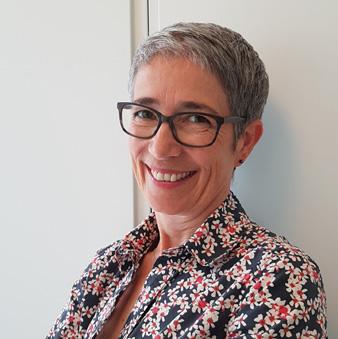
The Honourable Arthur J. LeBlanc, ONS, K.C. (’68)
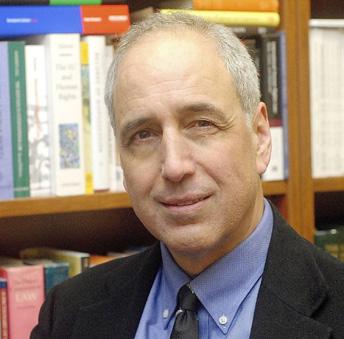
NOVA SCOTIA
Lieutenant Governor of Nova Scotia
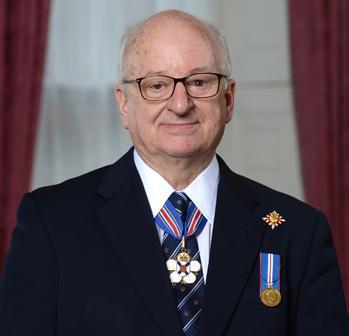
John Wilmot (’80)
ALBERTA
Counsel, Burnet, Duckworth & Palmer (BDP) LLP
Nancy MacCready-Williams (’89)
NOVA SCOTIA
CEO, Doctors Nova Scotia
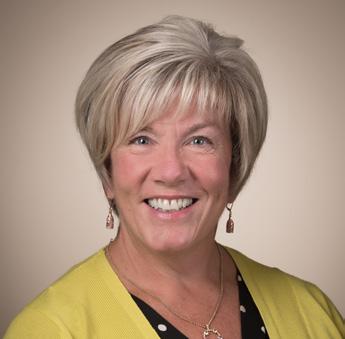
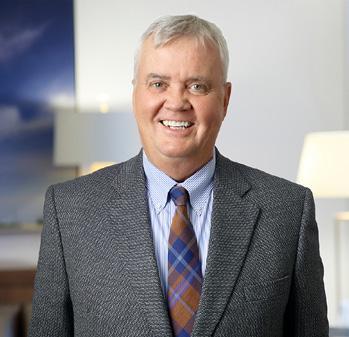
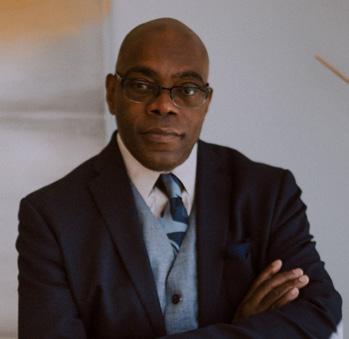
Penny Tham (’84)
BRITISH COLUMBIA
Retired Corporate Securities Lawyer and President, Vancouver Asian Canadian Theatre
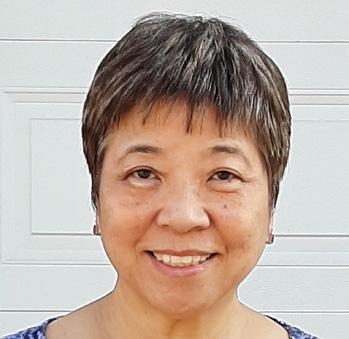
Lesra Martin (’97)
BRITISH COLUMBIA
Partner, Martin & Martin Lawyers
Anna Myers (’94) SCOTLAND
Executive Director, Whistleblowing International Network (WIN)
Michael Lynk (’81)
ONTARIO
Associate Professor, Faculty of Law at Western University
2023 Aurum Award winner, Igor Yushchenko, applies his legal expertise to help fellow Ukrainians seek refuge in Canada. With the uncertainty of the future, his work is just getting started.
BY ALLISON BARSS‘Don’t give up.’ It sounds simple, but it’s a tough lesson that Ukrainian native and Halifax-based lawyer, Igor Yushchenko (’12), has learned throughout life’s hardships – and continues to apply to what lies ahead. “Obstacles will happen, but when you overcome them, you learn a valuable lesson,” he says. “Coming to Canada has taught me this.”
Growing up in Ukraine, and following in the footsteps of his hardworking, successful parents – both accountants – Yushchenko dreamed of a career in law. “I wanted to be a crown prosecutor – to put bad guys in jail and make the world a safer place.”
After earning his bachelor’s and master’s degrees in law in Ukraine, he landed a crown attorney placement in the Ukrainian capital of Kyiv, but quickly learned it wasn’t a right fit. “I saw a lot of police brutality in that role, and realized I’d rather protect people from that.”
Looking to further his education in law – and explore a new country – Yushchenko arrived in Canada in September of 2011 to study at Dalhousie, where he earned his Master of Laws degree.
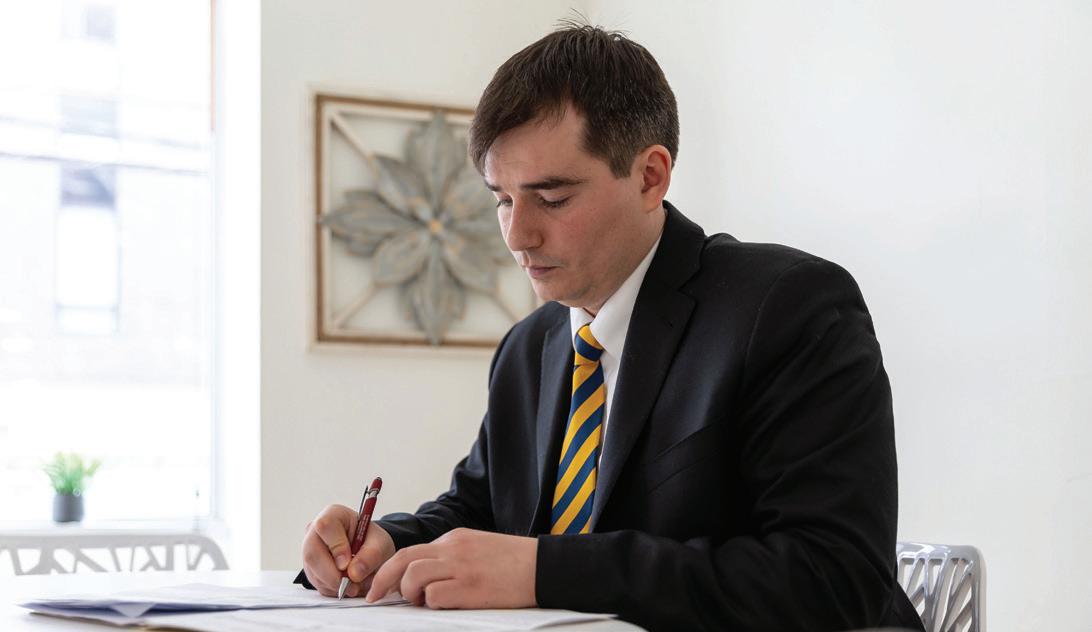
It was an eye-opening time, he shares. “Compared to my studies in Ukraine – where if a professor tells you to do something, you do it and you don’t ask questions – I chose subjects and professors at Dal, and actually talked to those professors. It created a sense of trust and openness, and for me that was life changing.”
With a plan to return to Ukraine after earning his Dal degree, Yushchenko says he experienced second thoughts. “That’s when someone told me I couldn’t practice law here in Canada; that I’ll face challenges getting my licence. Something inside of me said to prove them wrong.”
Yushchenko made the decision to settle in Halifax, earning his license to practice law, creating his own firm, IY Law Firm – specializing in real estate, corporate law, personal injury, civil litigation and immigration – and marrying and starting a family with his Dalhousie sweetheart (which he says is his greatest accomplishment).
“That was the hardest thing,” he says. “Denying that it’s impossible, accepting that it won’t be easy and facing the challenges that may lie ahead. But, still striving for the life you know you deserve.”
Over ten years after settling in Halifax, the news of Russia’s invasion of Ukraine in February of 2022 shook Yushchenko’s world. His family was in Kyiv when things started. “I wanted to get them out as fast as possible,” he says. “It took three or four days for them to cross the border, and no sleep. But they are now here in Nova Scotia. They are safe.”
But Yushchenko felt he needed to do more. “I’m a lawyer, I know about immigration, so I knew I needed to use my experience – my knowledge – to help others.”
He quickly joined forces with Halifax-based lawyer, Jason Woycheshyn, and worked with the Nova Scotia and Canadian governments to create new programs to help expedite Ukrainian immigration. “For the first three or four months, the phone didn’t stop ringing,” shares Yushchenko. “And even once those families left Ukraine, many kept calling to talk to us, asking for recommendations on where to settle, what jobs to look for.”
Over a year after the start of the war in Ukraine, Yushchenko – like many of us – says he hopes things will end soon. “There will be a massive amount of work needed to help rebuild that country,” he says. “Lawyers will be needed, and I want to be a part of that team. I am ready.”
Yushchenko adds that it’s his drive to help others that keeps him going. “I feel like I can provide the motivation that [prospective immigrants] may be missing,” he says. “I want others to see me as an example – to see that as an immigrant, you can still achieve anything in this life. Living your ideal life is not a club for only blessed and chosen people. It’s a message I share with my children too.”
“Everyone has the right to shape their future, so don’t give up. Knock on every single door. Eventually, one will open.”
2023 Aurum Award winner and Nova Scotia Supreme Court judge, Mona Lynch, joined forces with other women judges to help their Afghan colleagues find new homes in free countries.
BY ALLISON BARSSIn 2001, following the American invasion of Afghanistan, the country saw great change including the appointment of more than 250 women judges. Over 20 years later – when U.S. forces withdrew from the country – the Taliban returned to power, threatening their lives. Justice Mona Lynch (’85) has made it her mission to help.
“It’s always been important for me to make a difference,” she says. “As Gandhi once said, be the change you wish to see in the world.”
Inspired by the altruism and kindness she always saw in her own mother, Justice Lynch has applied this outlook to much of her life, including raising her daughter as a single parent and a lawyer, and her 20-year career as a judge.
Now, she is applying her legal expertise – and passion for justice –to help the Afghan women judges find safety and freedom.
In the spring of 2021, during a conference with the International Association of Women Judges (IAWJ) – representing more than 6,500 judges in over 100 countries – judges from Afghanistan spoke and raised concerns about their safety and security.
“They shared details about two of their colleagues who, a few months prior, had been ambushed and killed on their way to work at the courthouse in Kabul,” says Justice Lu, one of the North American regional directors for the IAWJ.
During the conference, the Afghan women judges asked the IAWJ for assistance with skills training, technology support and security. President of the IAWJ, Susan Glazebrook, formed the Afghan Women Judges Support Committee to help support these needs, which Justice Lynch was quick to join.
“We met with the Afghan women judges again in July,” she says, “but by then, things had changed.”
“The situation in Afghanistan had grown much worse,” says Justice Lynch. “The Afghan women were no longer asking for things like skills training – they were asking to be saved, and for us to share their plight with the world. They asked us to be their voice.”
Many of the women judges from other provinces of Afghanistan had moved to Kabul by this point, where they believed they were safe. Then on August 15, they learned that Kabul had fallen. It was the final action of the War in Afghanistan, marking a complete victory for the Taliban’s rule.
Afghan women judges who once sent Taliban members, ISIS members and drug lords to jail, were now being hunted by them. From mid-August to September, while Allied forces controlled the Afghanistan airport, about 30 Afghan women judges were able to leave the country. “Many of them risked their lives to get through the crush at the airport and onto planes, but they had made it,” says Justice Lynch.
“After the Allied forces left, we feared we would not be able to help the remaining women judges find a way out,” she says. They eventually partnered with non-governmental organizations such as the Jewish Humanitarian Support Organization and the International Bar Association and were able to get another 100 judges out by air.
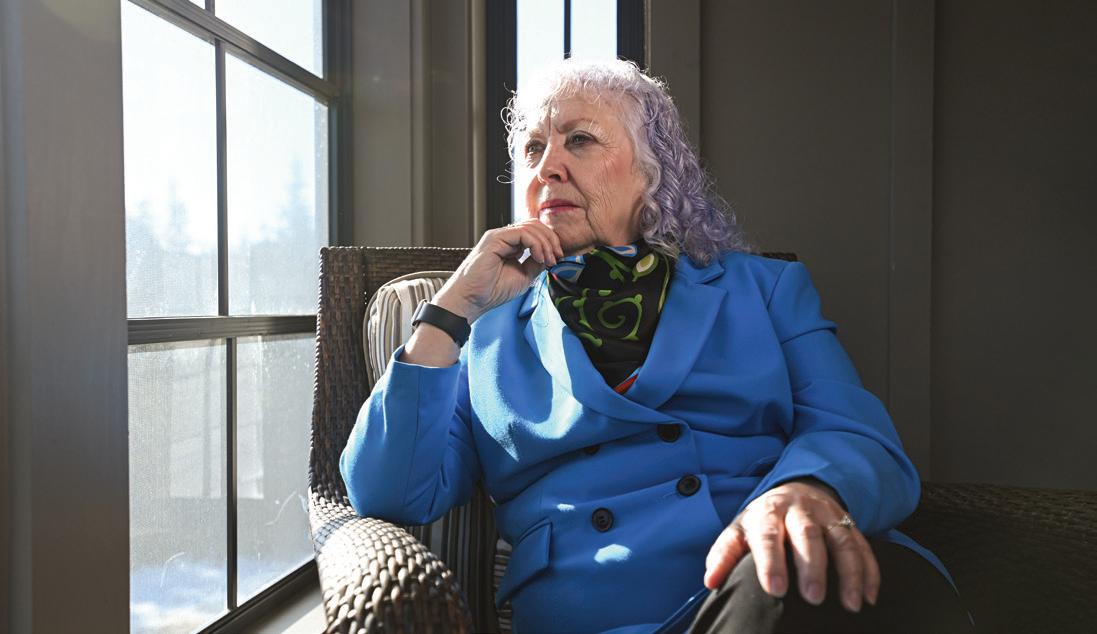
In the fall, however, the Taliban halted all flights from Afghanistan, leaving land travel as the only way out. Justice Lynch and her international colleagues committed to finding ways to get the remaining Afghan women judges out of the country.
To date, she says that most of their 150 colleagues who left Afghanistan are safely settled in new countries – 36 of them in Canada – and 50 of them are in other countries, waiting to find new, permanent homes. Roughly 54 are still left in Afghanistan.
“It’s challenging because there are not a lot of pathways out of Afghanistan,” she says. “But we’re working to find the best solution for each of them. And we’ll continue this work until it’s done – until they’re all safe.”
What motivates her to help her Afghan colleagues? Justice Lynch shares, “You’re never wrong to do the right thing – that’s something I try to live by every day. By staying true to your values and doing what needs to be done to help others we can all make the world a kinder, fairer place.”

F R I D A Y , S E P T E M B E R 2 2
L A W A L U M N I C O C K T A I L R E C E P T I O N
6 : 0 0 P M
M C I N N E S R O O M ( 2 N D F L O O R )
D O M U S W I T H C U R R E N T S T U D E N T S
F O L L O W I N G T H E R E C E P T I O N
G R A W O O D P U B ( 1 S T F L O O R )
S T U D E N T U N I O N B U I L D I N G
6 1 3 6 U N I V E R S I T Y A V E N U E
H A L I F A X , N S
S A T U R D A Y , S E P T E M B E R 2 3
L A W S C H O O L O P E N H O U S E
1 0 : 0 0 A M - 1 2 : 0 0 P M

W E L D O N L A W B U I L D I N G
A T R I U M ( 2 N D F L O O R )
6 0 6 1 U N I V E R S I T Y A V E N U E
H A L I F A X , N S
F o r a l i s t o f c l a s s o r g a n i z e r s a n d t o r e g i s t e r p l e a s e v i s i t d a l . c a / l a w / r e u n i o n s
F o r m o r e i n f o r m a t i o n c o n t a c t T a m m i H a y n e l a w a l u m @ d a l c a | 9 0 2 4 9 4 5 1 0 0
Arguing as an intervenor at the Supreme Court of Canada is a serious task. It’s especially vital when the client is as important as the First Nations Child and Family Caring Society and the case is as significant as defending a constitutional challenge by Quebec to the federal Act respecting First Nations, Inuit and Métis children, youth and families (the Act). For Naiomi Metallic (’05), Schulich Law professor and alumna, the opportunity was also a full circle moment as she was invited to participate in the case by former student and case co-counsel David Taylor (’12).
Taylor, a partner at Conway-Baxter-Wilson LLP in Ottawa who has represented the Caring Society long-term, first studied the human rights challenge that led to the Act in Metallic’s Aboriginal Law course, so he instantly identified her as a natural choice given her longstanding expertise.
“I was thinking about how we would put our best foot forward on this and I went to Cindy Blackstock [executive director of the Caring Society] and we agreed this was a great case to team up with Naiomi,” says Taylor.
As an educator, Metallic has had plenty of practice telling the story of Canada’s Indigenous child welfare neglect by both federal and provincial governments. Perhaps most familiar to the average Canadian at this point is the Sixties Scoop where Indigenous children were removed from their families and placed for adoption with non-Indigenous families without their families’ consent. There have been other injustices and setbacks along the way. And other successes – by the 1970s and 1980s, First Nations groups had started to push back to gain control, and by the 1990s Canada had
created policies meant to address the issue. But after putting the policies into practice, it was quickly recognized that the systems to carry out these reforms were significantly underfunded compared with provincial agencies.
In 2007, the House of Commons unanimously adopted Jordan’s Principle, a child-first principle declaring that First Nations children should have access to the services they need, when they need them. The principle was named to honour the memory of Jordan River Anderson, a First Nations child from Norway House Cree Nation in Manitoba, who lived all five years of his too-short life in hospital despite being able to be discharged to a family home, while the provincial and federal governments argued over who would fund his care. This landmark development followed years of advocacy by Jordan’s family, Norway House Cree Nation and First Nations organizations, including the Caring Society.
Around this time, the Caring Society, alongside the Assembly of First Nations, also had to step up and file a human rights complaint that Canada had knowingly discriminated against First Nations children in the delivery of child welfare services on-reserve. The Canadian Human Rights Tribunal substantiated the complaint in 2016. As a result of the watershed decision calling for massive reform, Canada created the Act respecting First Nations, Inuit and Métis children, youth and families, introducing minimum standards for provincial child welfare rules regarding Indigenous children, families and communities. The Act also gave Indigenous groups the ability to create their own laws around child welfare. Yet some of the provinces pushed back on whether Canada was allowed to legislate in areas that crossed over into provincial jurisdiction. Quebec has been the first to formally challenge the Act.
Professor Naiomi Metallic invited by the Caring Society to argue as an intervenor at Canada’s Supreme Court.Aware of the impact that intervenors can have in constitutional litigation, Metallic and Taylor successfully sought intervenor status for the Caring Society at the Court of Appeal of Quebec.
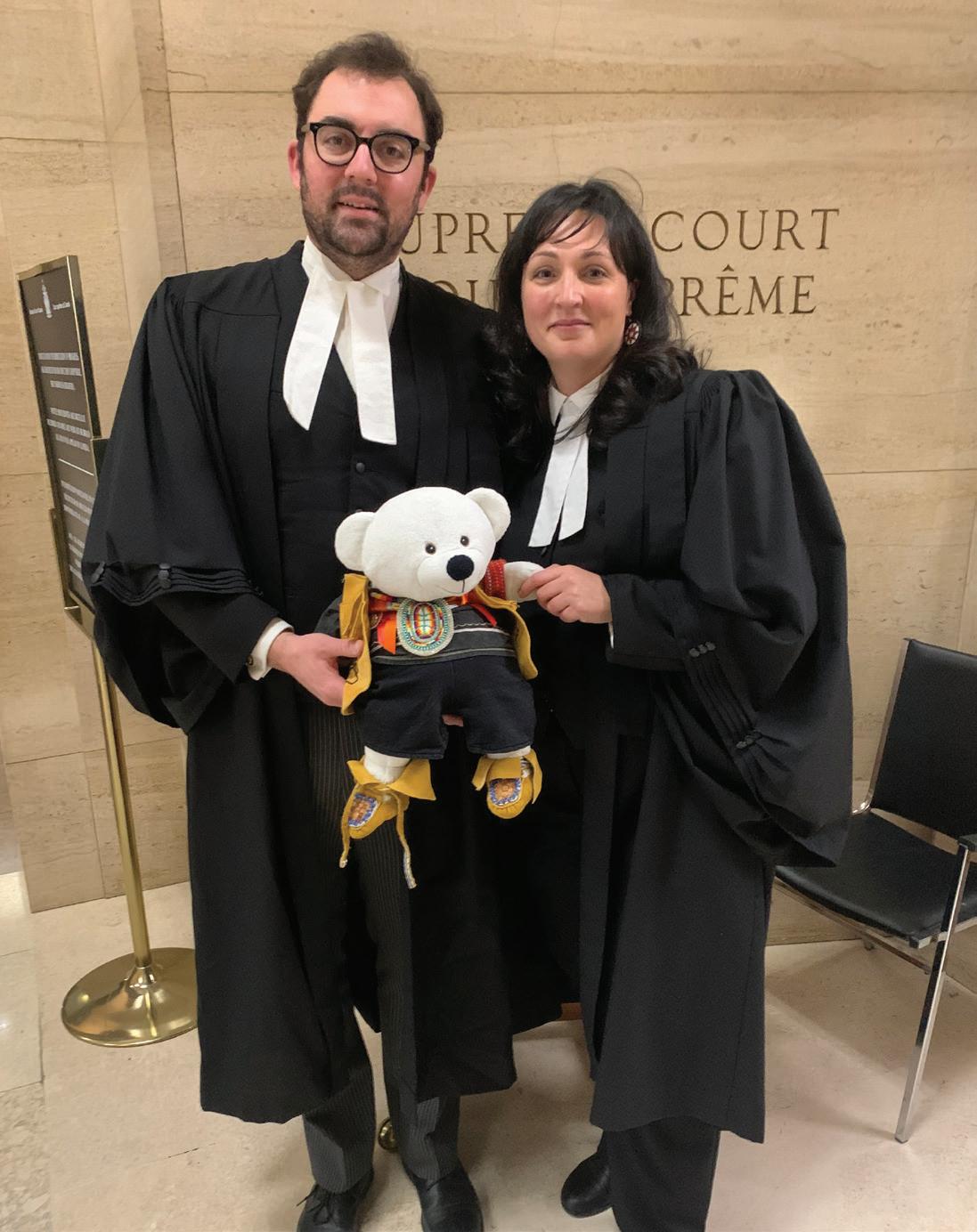
For many months, they poured themselves into the task of assembling evidence for the Court of Appeal regarding the long history of discrimination against First Nations children in the child welfare system and writing the intervenor brief. In February 2022, the Court of Appeal upheld the Act’s national standards, but struck down some aspects of its mechanism for Indigenous law-making. In its place, the Court of Appeal took the ground-breaking step of recognizing a general constitutional right for Indigenous Nations to make laws on child welfare.
Both Quebec and Canada appealed the Court of Appeal’s decision to the Supreme Court of Canada. The Caring Society’s position as an intervenor before the Quebec Court of Appeal meant that it got to submit a 40-page brief rather than the usual 10. As one of 30 intervenors, Metallic only had 10 minutes to summarize the organization’s position and answer judges’ questions, so she was careful to consider which arguments would be the most persuasive and to fill in any gaps in the narrative presented by others. Despite the hours that the brief and submissions demanded, she knew the importance of this cause.
As inspiration, Metallic finalized her statement with Spirit Bear perched on a chair in her hotel room. Spirit Bear is a plush teddy bear elevated to “spokesbear” for cases by Caring Society executive director Cindy Blackstock, as a reminder to keep the children front and centre. Metallic and Taylor even took Spirit Bear into the courtroom gallery. “We have to bring it back to the kids, and we cannot let the court lose sight of the fact that this is about children and their needs,” she says.
Both Metallic and Taylor felt that the presentation was well received by the judges, and the team expects a decision by late summer or fall at the earliest. In addition to Metallic and Taylor, several other Dal Law grads were involved in the case, including Stuart Wuttke (’95) as counsel for the Assembly of First Nations, Jason Cooke, K.C. (’05), Brent Murphy (’17), Riley Weyman (’19) and Kate Darling (’07) all as intervenors.
Taylor was especially pleased at Metallic’s contribution given the depth of her studies on this topic. “It seems every time we were working on the draft, Naiomi was saying ‘I’ve written an article about this, I’ve written an article about that’ – a good chunk of our citations in the factum are based on things that she’s written. Having her available to give her thought and care and attention to our written submissions, and then also to be there to respond to questions from the judges was just a fantastic value-add for our client,” he says.
While Metallic is hopeful about the outcome of the appeal, she also says that whatever the ruling, there is now momentum in legal reform that will benefit Indigenous peoples. That’s a positive, because change is needed in so many areas.
“There are still major issues with government accountability, and chronically underfunding services. Child welfare is only one example,” she says, noting policing in First Nations communities as another area where there has been a recent human rights decision. “I think we’re going to see more of a move to self-determination, but there is a role for other governments in terms of supporting First Nations and adequately funding services, and justice and community safety and security is going to be a part of that. That’s where a lot of my focus is, and I bring a lot of that to my classes.”
Both Metallic and Taylor are also enthusiastic about the growth of Indigenous course offerings and discussion at Schulich Law. Taylor says he’s observed impressive growth even since he graduated a decade ago. Metallic shares that she’s always pleased to see so many Dal Law grads and former students among her peers in appeals such as this one. “I’m thrilled by it and doing my best to help create additional courses.”
We have to bring it back to the kids, and we cannot let the court lose sight of the fact that this is about children and their needs.
NAIOMI METALLIC
When J. Michael MacDonald (’79) was approached to lead what would become the Mass Casualty Commission, he knew three things. It would involve sustained and considerable exposure to traumatic and graphic evidence and experiences. There would be long days, evenings and weekends of work ahead. And it was an urgent and vital undertaking that would require considerable care and efficiency to see it through. However, the biggest question was if the newly retired MacDonald wanted to take it on.
“I was hesitant, but the more I thought about it, the more I recalled what my father once said: ‘If you’re asked for a favour and you are able to do it, you really don’t have a right to say no,’” MacDonald says. “This province has been very good to me, and I knew it was going through a very dark time. I felt compelled to step up and, from that point, I did not stop working for 29 months.”
That willingness to contribute typifies the many Schulich School of Law alumni who participated in the commission, which was established in the wake of the April 18-19, 2020, mass casualty in Nova Scotia. They helped build the team that took on this enormous task. They worked on foundational documents that established what happened before, during and after those two days. They reviewed research related to the issues established in the mandate. And they developed meaningful recommendations meant to make communities safer. It was clear to all involved that this would be a significant responsibility, and one that would pose several challenges to see it through. As MacDonald described it, “It was like trying to fly an airplane while we were building it.”
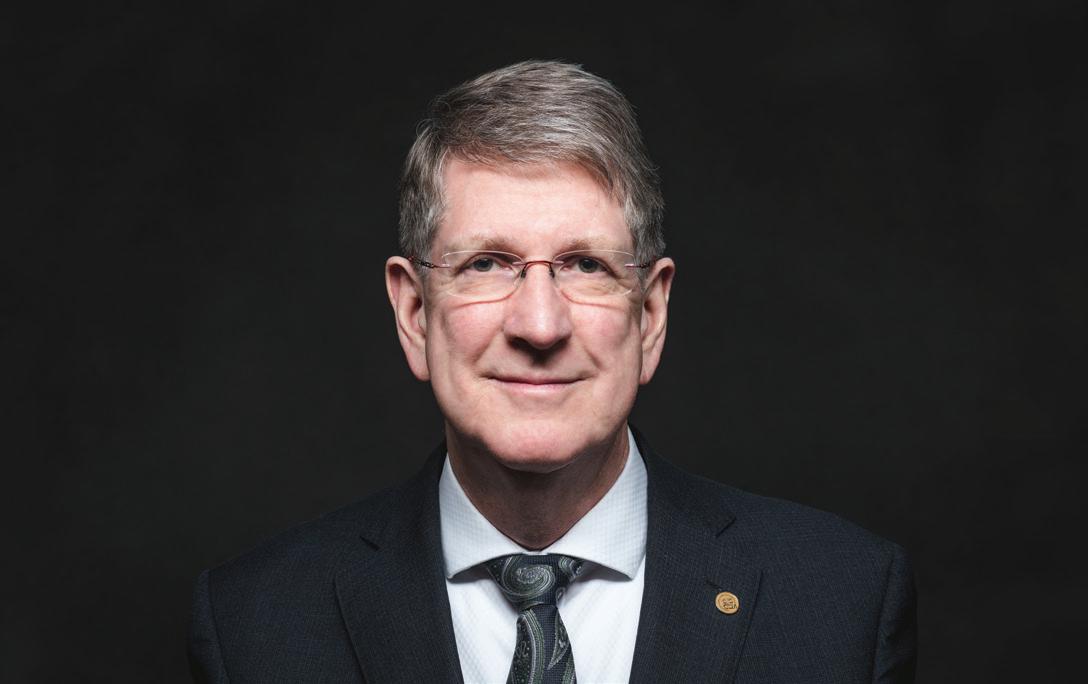
Christine Hanson (’98) was ready for those challenges. When MacDonald approached her to join the commission, she was wrapping up her duties as CEO of the Nova Scotia Human Rights Commission and planning to return to Global Affairs Canada. She knew instantly that her expertise in navigating government bureaucracies would be invaluable in getting the commission up and running. Motivated by her deep respect for MacDonald and a desire to help, she agreed to start building the commission team and sought advice from experts on how best to proceed.
“A lot of people who work on public inquiries have never done so before,” Hanson says. “This one was particularly large in its size and scope. And doing this during a global pandemic was extremely challenging, not to mention the fact we had a tight timeline. We had to keep things moving, make the best decisions we could and help keep the commissioners focused on the task at hand.”
One key addition to the team was Jennifer Cox (’94), K.C., as commission counsel. A staff lawyer at Dalhousie Legal Aid Service (DLAS), Cox had previously worked on two major public inquiries: the wrongful conviction of David Milgaard and the National Inquiry into Missing and Murdered Indigenous Women and Girls. “People who work on inquiries are relatively rare,” she says. “The lessons I learned from my experiences were things that I wanted to share. But I also live in the area, so it became an opportunity to contribute to the community.”
 J. MICHAEL MACDONALD
J. MICHAEL MACDONALD
















Cox’s motivations are echoed by Roger A. Burrill (’85). A long-time public defender, he took on the role of senior commission counsel. Although Burrill lacked inquiry experience, he believed his extensive expertise in presenting evidence would be advantageous to the commission. As it turned out, he was right, but even that background did not fully prepare him for an undertaking like this.
“The whole process of the inquisitorial system differs from the adversarial system,” Burrill says. “That became clear quickly. I also realized that it was too big a job for me to take on alone.”
“I’ve developed protective processes,” Cox explains. “If there are things I don’t need to look at, I don’t look at them because I don’t need that image in my brain. I’ve also learned I can express myself in the work while I’m conducting it. There were times during the proceedings for the Missing and Murdered Indigenous Women and Girls inquiry that I did show emotion, and I think the families involved appreciated that.”
The long hours and the subject matter at hand were often challenging for commission members. So too were the added pressures of conducting this inquiry in the midst of a pandemic. Hanson says the entire investigation team was hired from outside Nova Scotia, which meant they had to isolate for two weeks upon arrival. Moreover, despite consultation with Dr. Robert Strang, Nova Scotia’s Chief Medical Officer of Health, on how to proceed safely, she adds that nearly everyone became sick at some point. Such was the commitment from the team that everyone worked through illness and through the aftermath of Hurricane Fiona.
Joined by colleagues Anna Mancini and Lee Seshagiri (’06), Burrill led the effort to create the foundational documents that would guide the commission in developing recommendations. This was no small feat. There were 75,000 disclosures to sift through and evidence from 17 different crime scenes. Gradually, Burrill and his colleagues began to piece together a timeline of what happened over the course of April 18 and 19. This, says MacDonald, was invaluable in enabling the commission to proceed with its work.
“We realized we could not call approximately 250 witnesses in two years to do that,” MacDonald says. “I've been a judge long enough to know that would be a seven-year project. This approach made the process more efficient, giving us something we could present to the participants and their lawyers so that material issues could be resolved. But it also made the process much more trauma informed because only those who had to review it were exposed to the documents.”
While Burrill’s role was laser-focused on determining what happened, Cox functioned more as a jack-of-all-trades. This included leading community outreach efforts and holding meetings to engage participants. In the beginning, 20-hour workdays and seven-day work weeks were not uncommon. Although the commitment of time and energy was significant, Cox was able to acclimate relatively easily, given her previous inquiry experience. She was also able to draw on that experience to manage some of the more disturbing aspects of participating in this inquiry, in particular gun and intimate partner violence.
As much as the team’s commitment was rooted in a desire to achieve positive outcomes, it was also bolstered by key supports and considerations built into the initiative from the start. For example, all participants and commission team members had access to mental health and wellness experts, and Hanson negotiated leave agreements for many team members so that they would have a job to return to once they wrapped up their work with the commission.
“Traditionally, there is a 30 percent attrition rate for public inquiries, which is pretty high,” Hanson says. “We really worked hard to address that, and I think our efforts paid off. We had almost no attrition at all.”
MacDonald adds that the mental health component was essential. “That was one of two things that, personally, helped me get through this process—those experts and my family. With that said, I did have to put my role as father, grandfather and husband on hold for a time.”

Although the process was often tough for the team, Hanson says the commission was mindful of the impacts for the families of the victims. It covered the cost of their legal counsel and provided them with access to mental health supports. She took heart from this and from how supportive they were of one another.
“The families were extremely engaged throughout the process, even when they did not necessarily agree with every decision that the commissioners made,” Hanson says. “I was really impressed by that devotion and bravery. As difficult as it was for them, they really showed up in a big way.”
On March 30, 2023, the Mass Casualty Commission delivered its final report, Turning the Tide Together, to the federal and provincial governments. Its seven volumes contain 130 recommendations that, combined, form a blueprint for making communities across Nova Scotia, and Canada, safer. For MacDonald, one of the key takeaways is the need to reimagine policing.
“I am not sure when it started but society’s woes seem to have defaulted to policing, probably because they are operating 24 hours a day,” MacDonald says. “The police aren’t comfortable with that, and the public aren’t well served by it. That’s why we need to reimagine it. And let’s not call it policing. Let’s call it community safety because it’s a shared responsibility that involves the police, community organizations, you and me.”
Hanson sees a huge appetite to explore this issue, and how policing could and should operate in different communities, such as rural ones. But for her, it is the report’s extensive recommendations related to intimate partner violence that are encouraging. More than calling for additional resources and supports for victims, the recommendations advocate for interventions focused on perpetrators. That all-encompassing approach is cause for optimism for her. “Many consider this to be an intractable issue, but it’s not,” she says. “There is a lot that can be done, and the recommendations outline how police and other agencies can better assist those who face this violence in their lives.”
All these recommendations are encouraging for Cox, as is the actioning of mental health and additional support services for Colchester County. More than a relief for her, she sees that action as an indicator that the recommendations will become achievements over time. However, the progress she is seeing on the recommendations to date is also a source of some frustration for her both as an Indigenous lawyer and based on the outcomes of the National Inquiry for Missing and Murdered Indigenous Women and Girls.
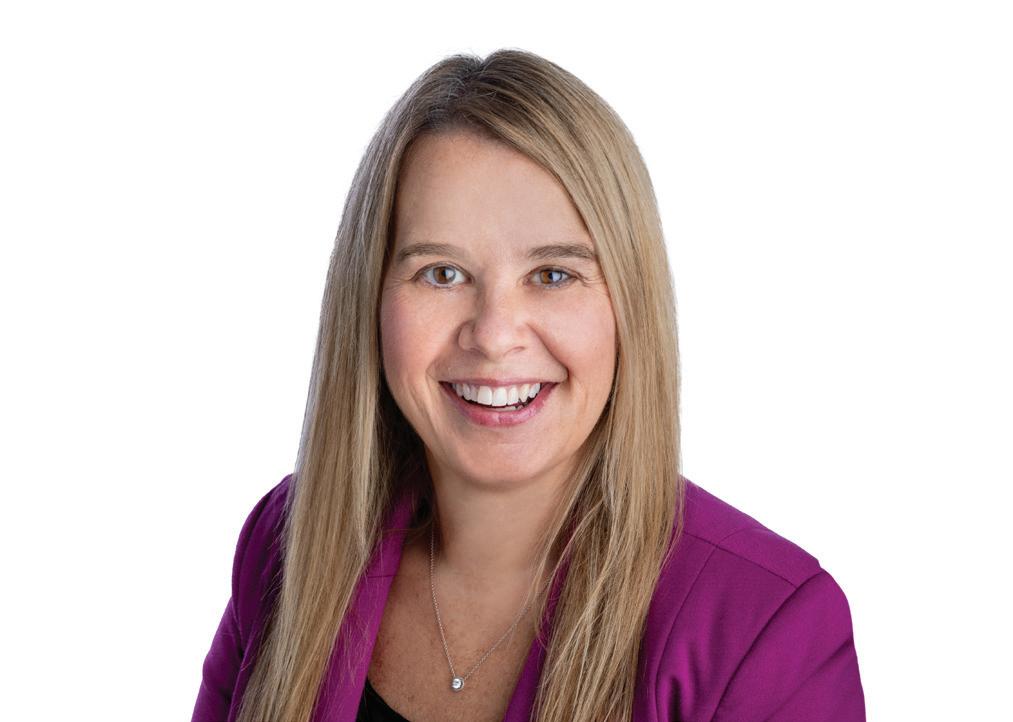
“I think recent news reports indicated there were only two or three recommendations from that inquiry that have actually been completed,” she says. “Still, I have hope that this commission and its recommendations have benefitted and will benefit from that previous inquiry in terms of policing issues because some of them are the same. Ultimately, this might be the turning point in Canadian history where people look at these issues more critically than they have and realize this is something that needs to evolve.”
The report’s recommendations are now in the hands of an implementation committee, which is led by another Schulich Law alum, Linda Lee Oland (’76). It has a one-year mandate that not only clarifies what needs to happen but who is responsible for bringing each recommendation to fruition. MacDonald firmly believes, overall, that the commission’s work is in good hands and is optimistic about possible outcomes.
“This has the potential to be a game changer,” MacDonald says. “But it needs political will. I want the Prime Minister and the premier to go to their people and say, ‘Get this done.’ I just hope that the work we have done motivates them to do that.”
Hanson shares those hopes but cautions progress could be slow. Ultimately, she believes anything less than the adoption of most of the report’s recommendations would be a lost opportunity. “Some of the best minds in the world helped the commissioners come up with these recommendations and conclusions,” she says. “That is not a luxury that you have all the time. I believe that helped us arrive at the right answers. More importantly, I believe there is a real shared commitment to see these recommendations through. And my hope is that it won’t take too long.”
When Pam Williams (’84) became the first woman to be appointed Chief Judge of the Provincial and Family Courts for Nova Scotia, it wasn’t the first time she found herself in a pioneering role. Decades before she was sworn in at a judicial ceremony in 2013, she was the first person in her family to leave her small community on Nova Scotia’s Eastern Shore to attend university. “I always set my sights high,” she says.
Growing up in Owls Head, the daughter of a fisherman, Chief Williams was an athletic, studious child who earned a scholarship to Saint Mary’s University in Halifax. She studied political science before deciding on a career in law. At law school, she found herself surrounded by people different from herself, many who were from wealthy families, the children of lawyers. “I don’t belong here,” she told herself.
In her second year, she took part in a moot court. Thomas Cromwell, who went on to serve as a judge on the Supreme Court of Canada, was her professor and mentor. He pushed her to succeed. He told her that it would make her or break her. “It turned out quite well. It was a rather positive experience,” she recalls. Chief Williams eventually found where she belonged – at Dalhousie Legal Aid Service (DLAS), a unique partnership of law students, lawyers, community legal workers and community groups. When she graduated from law school, she couldn’t picture herself at a big law firm. “Some people are in love with the law. For me, I just wanted to help people,” she says.
She took a job at Nova Scotia Legal Aid and stayed for close to 20 years, first as a staff lawyer and then a managing lawyer.
“I didn’t see my clients as lesser than or not worthy of being supported and represented,” she says. “I always gravitated towards the underdog.”
Being a female criminal lawyer in the 1980s wasn’t easy. Women weren’t seen then as criminal lawyers. “That just caused me to work harder to prove myself.” Early on in her career, Chief Williams promised herself that she would never back down out of fear. Still today, she holds true to “three P’s”, a nod to the first initial in her name. They are patience, perseverance, and persistence.
Not long after she was appointed a judge of the Provincial and Family Courts of Nova Scotia in 2003, she tapped into these three qualities again. She went to Quebec to attend judges’ training; there she met several francophones who were bilingual. She decided then she needed to properly learn French. At age 43, she started taking courses at community college and within several years she achieved the highest level for second official language qualifications and proficiency. “It was a huge undertaking,” she says. “This was one of the hardest things I have ever done in my life, but it has been so rewarding.”
Always looking for innovative approaches to justice and aware that the regular court system doesn’t always deal well with people with mental illness or substance abuse problems, Chief Williams became an early advocate for the Mental Health Court in Dartmouth. Since 2010, she has overseen the court, now called the Dartmouth Wellness Court, which includes the Mental Health Court Program and the Substance Use Disorder Program. Most Mondays and Thursdays you’ll find her sitting in Courtroom Five at the provincial court on Pleasant Street.
Chief Judge Pam Williams promised herself that she’d never back down out of fear.“People find themselves in conflict with the law not because they’re bad people. They make poor decisions based on mental health and addictions issues,” she says. “If we’re able to deal with folks in a wellness court setting, we’re able to use humancentred, restorative approaches that focus on recovery.”
Wellness court programs have expanded across the province and Chief Williams is working closely with Dr. Robert Strang, Nova Scotia’s Chief Medical Officer of Health, on a strategy to sustain and develop more. “There are some regions of the province that still don’t have access to them,” she adds.
Chief Williams also worked collaboratively with Indigenous, judicial and government officials to reach an agreement in 2017 to open the Wagmatcook Healing to Wellness Court on Cape Breton Island to ensure residents in the Mi’kmaw communities surrounding Wagmatcook and Waycobah have access to a wellness and Gladue court. “I saw it as an important step toward truth and reconciliation,” she says.
Pushing the justice system to change is something she has done throughout her career. When the COVID-19 pandemic forced the courts to restrict in-person appearances, she witnessed firsthand how ill-prepared the system was to respond.
“We were really behind the eight ball. The [provincial] court was paper based with people appearing in person,” she says. “When things shut down, we had to very quickly develop processes so we could continue to keep the courts running virtually.”
For years, Chief Williams and others advocated for electronic court processes but were told it could not be done. The pandemic showed that it not only could be done, but it also had to be done. Today, she sits on a provincial task force that is finding ways to digitize the courts, improve access to justice and increase efficiency. “There has been a lot of progress,” she says. Chief Williams is encouraged to see improvements in areas like electronic disclosure, electronic filing of documents and virtual court. Remote appearances by telephone and video enhance access to justice for members of the public and lawyers who are unable to attend in person; they also allow the courts to hear more matters, create efficiencies and work to reduce the system’s backlogs.
In August 2023, Chief Williams will complete her second five-year term as chief judge. This summer you’ll find her on the golf course where she acts as a caddie for her son Stuart, who competes in tournaments across the country, or spending time with her grandchildren and her eldest son, Nick. He graduated from the Schulich School of Law in 2013 and now works for Sport Nova Scotia. She also plans to spend more time with her husband at their home in East Preston, one of Canada’s oldest Indigenous Black communities, and maybe make a trip to New Zealand and Australia.
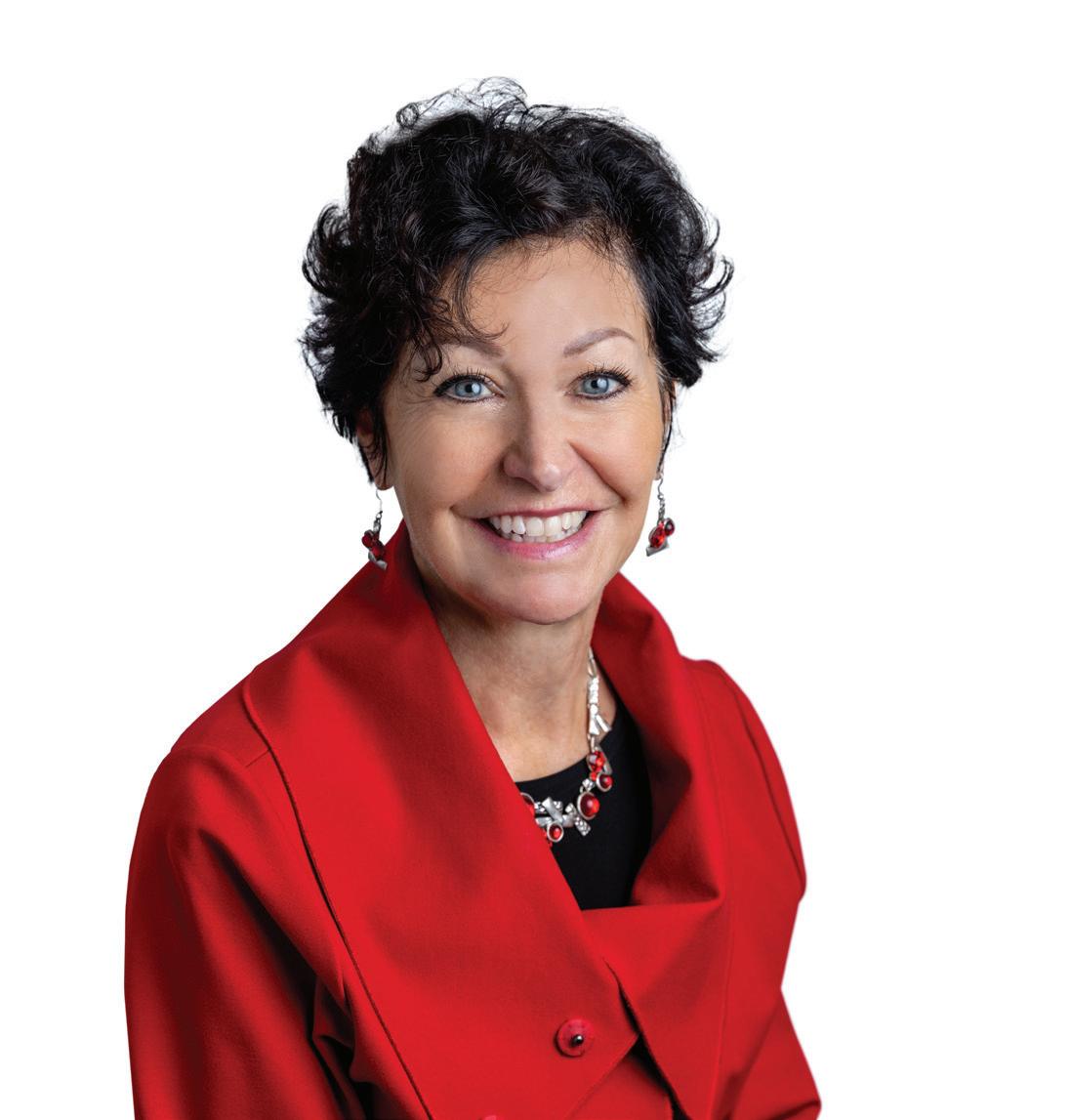
But Chief Williams has no immediate plans to retreat from the justice system. Instead, she will keep utilizing one of her best strengths, bringing people together to work collaboratively.
“The Canadian adversarial criminal justice system is one of the best in the world. That said, most matters never go to trial. And so, there is opportunity to transform the way we do justice,” she says. “Studies show that incarceration does little to deter crime or reduce recidivism. Human-centred, culturally appropriate, problem-solving approaches that address root causes of offending may be a promising option.”
Chief Williams will continue working with Jennifer Llewellyn, Schulich Law Professor and Chair in Restorative Justice, and others at the Restorative Research, Innovation, and Education Lab to help institutions shift to a more human focused, more responsive approach to injustices.
“Systems need to adapt to the needs of people,” she says. “For too long it has been the other way around.”
Systems need to adapt to the needs of people. For too long it has been the other way around.
CHIEF JUDGE PAM WILLIAMS
Technology & Innovation Law Clinic connects clients, classroom and community.
 BY STEPHANIE HURLEY
BY STEPHANIE HURLEY
The initio Technology & Innovation Law Clinic officially opened its doors at the Schulich School of Law in 2019 and welcomed its first cohort of students in September 2020. The Clinic has a dual purpose – firstly, to support the local community by reducing barriers that entrepreneurs face in accessing low-cost business law services, and secondly, to provide hands-on training to law students in the areas of corporate/commercial, privacy, technology, and intellectual property law. The priority is to improve access for underserved entrepreneurs. When clients exceed the financial criteria or require services beyond its mandate, the Clinic makes referrals to external lawyers.
The Schulich School of Law recently welcomed Alayna Kolodziechuk (’12) as the Director of initio. Kolodziechuk, a lawyer and Dalhousie alum with 10 years’ experience advising businesses and not-for-profits in the creative and tech industries, knows firsthand the impact a clinical experience can have on a student’s legal education.
“My experience as a law student in the clinical program at Dalhousie Legal Aid Service was a highlight during my time at Dal,” she shares. “I chose not to pursue criminal and family law afterwards, but even so the skills I learned in client advocacy, resourcefulness and relationship-building helped with confidence in my earlier years. I’m thrilled that Dal now offers a clinical program in the business law context – and that I get to be a part of it!”
As she reflects on her first months in the role, she says, “It’s a privilege to support Nova Scotia business and in particular to address gaps in terms of who can readily access the legal services start-ups need. We hear a lot of feedback about how important the local community considers initio.”
Client relationships are at the heart of the service the Clinic provides. Working with start-ups, small businesses and not-forprofits in industries such as technology, health, science and engineering keeps things interesting for Kolodziechuk and the clinical students.
“Personally, I really enjoy learning about clients’ stories and the ideas they are working on," says Kolodziechuk. “There are some very exciting developments underway in Nova Scotia.”
Giampietro Follador, President of Nova Analytica Corp, and a client, is grateful for the initio team. “Having a good idea is relatively easy,” he says. “The real challenge is transforming it into a successful business. Other than technical advice, you need moral support, a team that trusts you and helps you walk through the first and most difficult steps. I was extremely lucky in finding all of this in the initio Clinic.”
Outside of substantive work, clinical students learn about client management, practice development and the business of practicing law. “Students design a practice plan that supports their interests, goals and values,” says Kolodziechuk. “We work together oneon-one to evaluate real opportunities, develop their profile and practice client development whether they will work in a firm or as a sole practitioner. Students having their own practice plan already in motion by the time they leave is a valuable takeaway from the program we offer.”
Law graduate Evelyn Hein (’23) says that the Clinic was her most valuable learning experience at law school. “The opportunity to work directly with clients with diverse legal needs exposed me to so many realities of practice that you don’t get a chance to grapple with in a classroom. Alayna takes the time to learn about any areas of interest you have and really works to give you the opportunity to be exposed to them. Her support and encouragement creates an environment that makes trying new things exciting rather than intimidating.”
Law graduate Tommy Panther (’23) also spoke to the experience he gained as a student. “I greatly improved my drafting skills, my ability to engage with clients and my understanding of the legal profession. I feel significantly more confident in my abilities as I get set to embark on my legal career. With Alayna’s guidance and support, I was provided with opportunities to flourish independently, identify and improve upon my strengths and weaknesses and ultimately achieve significant personal and professional growth.”
As Kolodziechuk looks to the future, it is key that services are being provided where and how they would be most needed. One way initio will do so in the year ahead is as a partner in the Centre for Entrepreneurship Education & Development’s (CEED) Leveling It Up program through which the Clinic provides year-long tailored support to diverse/intersectional and/or underserved women in business across Atlantic Canada and beyond.
“Community partners both in and outside of Dalhousie identify potential clients at even the earliest stages of their development,” says Kolodziechuk. The Clinic’s understanding of the issues underserved businesses face, and the ability to provide effective legal supports, is deepening with time and experience. “For example, we have a research assistant supporting us right now by updating our content on Indigenous-led business in Nova Scotia.”
Starting this fall, Kolodziechuk will teach an intensive course in IT transactions as a co-requisite for students to increase transactional capacity at the Clinic. The course ensures all students see a technology deal from start to finish and provides an opportunity to practice negotiation in this context. The intensive study helps students to join the fast-paced clinical setting where they will become involved in files that are already underway.
There are also a number of ways alumni can support initio. The Clinic is currently expanding its referral and resource list including guest speakers who are working in the areas of business law, IT/ privacy and IP, or who have experience in practice management. If you are interested in contributing, please contact initio@dal.ca.
DATE, INITIO HAS:
Engaged with 150+ entrepreneurs/start-ups
Provided learning opportunities for 23 students
Incorporated more than 40 companies
Hired 3 articled clerks
Represented clients from across Nova Scotia and beyond Provided 23 public education sessions to more than 500 entrepreneurs
Graham Flack reflects on a lifetime of service to Canadians.
BY SUZANNE BOWNESSGraham Flack’s (’93) working life has been in the service of all Canadians. In his current position as Secretary of the Treasury Board, which he took on in January 2022, he’s responsible for reviewing and providing guidance and leadership on big government spending decisions. Remember the peace of mind offered to a multitude of Canadians by CERB during the pandemic? That was something Flack worked on in his former position as Deputy Minister for Employment and Social Development Canada. Ever since graduating from Dalhousie Law School, he has found himself in roles where he not only learned a lot about Canada’s fundamental issues, but has become a public servant that his country turns to for advice.
Growing up in Halifax, Flack was aware of the law school’s reputation for not only graduating lawyers but also people who went on to interesting roles outside the law. “I found that appealing and interesting, so that was why I chose to study at Dal,” says Flack. He attended Dalhousie for his undergrad in political science, then went on to Oxford University in England. At Oxford, he was exposed to renowned jurists Ronald Dworkin and H.L.A. Hart. “Even though I wasn’t, strictly speaking, studying law, there were some really great legal minds there,” says Flack.
At law school, Flack enjoyed studying under John Merrick for torts, and Hugh Kindred for international law, which became the basis for his LLM at Harvard University and the reason he entered the public service. He wrote his dissertation on the right to national self-determination just as the question became urgent for Quebec.
“When I started the LLM thesis, it was 1994, the Liberal Party was in power in Quebec. But then that fall, the Parti Québécois was elected. So, what was relatively theoretical became a very real discussion,” recalls Flack. His thesis recommended that the federal government should do a reference case to the Supreme Court of Canada. When he returned to Canada, he worked on the referendum campaign and found his thesis being circulated, catching the attention of Minister Stéphane Dion and taken to the Supreme Court. What originated as a theoretical work ended up going much further than the average dissertation.
Having clerked at the Supreme Court after law school and before Harvard, Flack says that he thought he would practice in the United States for a few years or maybe even go into management consulting. But returning to Canada immediately was suddenly the right move. “I felt if I was going to give back, I needed to go right away, because I had some expertise in the area. But I shortcircuited my plans, because the referendum campaign turned into the Secession Reference, which turned into the Clarity Act. That got me hooked. Then as I was contemplating what to do next, including leaving government, 9/11 happened. I was at the Privy Council Office, and got asked to head the team that developed what became the Canada-US Smart Borders Declaration,” says Flack.
The rest cascaded into a career. After leading the Smart Borders campaign under Deputy Prime Minister John Manley, he was next asked to help develop Canada’s first national security policy. “I found those absolutely fascinating issues,” says Flack of that challenge.
“We were reframing what it was to protect the most fundamental right all Canadians have, which is a right to security post-9/11. There were a multitude of legal questions around the antiterrorism legislation including how to expedite border flows and protect security in a way that’s consistent with Charter rights.”
After three years in national security, Flack headed to the Ministry of Natural Resources to work on energy policy, then to the Department of Finance where he landed in a relatively calm 2006 before the storm of the 2008 global financial crisis. “If there’s a theme here, my mother would say the theme is, ‘I arrived somewhere about a year before it all goes to hell,’” jokes Flack, adding that thankfully our strong banking regulations meant it survived among the best of major economies, and showed Canada as a leader. Flack’s years in the position also had him in on the ground floor rewriting the international architecture from the G7 towards the G20. “That was really fascinating, and I used a whole different set of skills, as there were more economic challenges,” he says, adding that he felt like he was already drawing on past work from managing both national security and financial crises.
Flack then spent a few more years at Public Safety, then the Privy Council Office as Deputy Secretary, contributing to the major policy decisions of government and the Speech from the Throne. He then landed as Deputy Minister of Canadian Heritage, which he calls the most fun years he’s had in his career, helping to fund and promote Canadian content in the challenging internet era and cheering on Team Canada at the Olympics.
In keeping with his mother’s theory, Flack then arrived at Employment and Social Development about a year before the pandemic and the need to financially support Canadians through a global health crisis. “The challenges there were less legal and more operational – how we stand up a broad set of benefits for different types of people. At one point nine million people were on CERB,” says Flack regarding the size of the project, adding that old IT infrastructure added to the challenge.
With so many high-profile roles in different ministries, Flack says that while he’s never practiced law, almost all his roles have had legal dimensions. He has also drawn on all his diverse experiences for each new role. “What I enjoy most is knitting together very different things, bringing different perspectives and skill sets to those new issues,” he says. He encourages others to do the same.
“Think about the legal training you’ve had as a dooropener for many things. It’s not just information that you’ve acquired, but a set of tools and a way of looking at the world.”
Thankfully for Dalhousie, Flack has also brought that perspective back to his alma mater more formally over the past dozen years through the Deputy Minister Champions program, which pairs senior deputy ministers with universities across the country. “I’ve regularly included the law school in my visits, and that can sometimes be connecting professors to possible ways that they can help impact policy at the federal level,” he says, adding he’s careful not to just randomly show up in the classes of his daughter, now a secondyear law student.
Flack also advocates for public-mindedness in a legal career. “I really believe in the public service ethos that we all have a responsibility to give back. Not everyone’s going to do that by pursuing a career in the public service. But I would say it is the responsibility of all lawyers to think about how they’re going to give back to the community and leave society a little better than when we left it.”
Also, why not consider public service? “For those who are open to considering a career in government, I couldn’t recommend it more highly. Your mission is about trying to improve the lives of your fellow citizens every day. I don’t think there’s anything that beats that.”

I really believe in the public service ethos that we all have a responsibility to give back. Not everyone’s going to do that by pursuing a career in the public service. But I would say it is the responsibility of all lawyers to think about how they’re going to give back to the community and leave society a little better than when we left it.
GRAHAM FLACK
The Cowan Internship was the highlight of my law school career. It is because of my experiences at the Nova Scotia Court of Appeal, through this internship, that I developed my passion for criminal law. This led me to enroll in Criminal Procedure in my third year of law school, as well as consider career opportunities in this area of the legal system.
 GEORGE PHILP
GEORGE PHILP
A summer placement instigated George Philp’s passion for criminal and public law.
BY AMANDA KIRBY-SHEPPARDThe Schulich School of Law Internship Program was first introduced in 2009. Since then, the program has awarded 2.6 million in funds and has placed 429 students with 178 organizations around the world, becoming the largest paid summer internship program for law students in the country.
One of the very first placements created for Schulich Law students was the Honourable Gordon Stewart Cowan Court of Appeal Internship (Cowan Internship). The opportunity was made possible due to a generous 2007 bequest from the estate of the Hon. Gordon Stewart Cowan, former Chief Justice of the Trial Division of the Supreme Court of Nova Scotia, and a distinguished graduate of Dalhousie Law School.
The Cowan Internship supports an annual summer placement at the Nova Scotia Court of Appeal, the province’s highest court. To be considered, students must achieve high academic standing, with demonstrated legal research skills, following their second year of law school. The successful student is assigned a research project and works under the direction of a justice of the Nova Scotia Court of Appeal, writing a paper for the Court.
“Since the establishment of the fund, a wide variety of papers have been produced on a range of topics which, we hope, have been of use to the Judges of the Supreme Court of Nova Scotia,” says Hugh Cowan, son of the late Chief Justice Cowan. “On behalf of my siblings (Hon. James (Jim) Cowan, Dr. Joan Backman), I can say we have been impressed by the range of practical, relevant topics that have been researched, with the potential to improve the efficiency and accessibility of the judicial system.”
George Philp (’23) was awarded the internship in 2022. A 2L student at the time, he spent the summer researching and drafting a report under the supervision of Justice Farrar, regarding the future of virtual courts in Canada, post-COVID-19 pandemic.
“The report I prepared provides a comparative analysis of the use of virtual proceedings in the superior courts across Canada, as pandemic restrictions ease and/or are removed entirely,” explains Philp. “It also considers what policies are in place in other Canadian jurisdictions for the use of virtual proceedings, and in particular the process and criteria for selecting the method of hearing, virtual versus in person.”
The report also offers an analysis of the types of cases and parties at the trial and appellate level that are best suited to virtual court and what amendments should be made to the Nova Scotia Civil Procedure Rules to accommodate virtual hearings.
And while Philp would be the first to say that he learned a great deal about the impact of virtual proceedings on the administration of justice through his research, it was the opportunity to spend time observing the various processes and protocols of the Nova Scotia Law Courts that had the biggest impact on him.
“The Cowan Internship was the highlight of my law school career,” he shares. “It is because of my experiences at the Nova Scotia Court of Appeal, through this internship, that I developed my passion for criminal law. This led me to enroll in Criminal Procedure in my third year of law school, as well as consider career opportunities in this area of the legal system.”
Philp says that one trial in particular – a first-degree murder case –had a lasting impact on him. “It wasn’t so much about the case but instead it was getting to see the justice system in action, working the way it was meant to, that really struck me. It was a shining example of everyone working together in the pursuit of truth and justice, acting in the public’s best interest.”
Philp was impressed with the level of commitment and professionalism he witnessed. “The Crown and defence attorneys were entirely respectful of each other, the jury was exceptionally focused and the judge was knowledgeable and in control of the courtroom. I found the whole process to be invigorating and I knew then that I wanted to be a part of that system.”
Overall, he says, the internship was a truly formative experience. He recalls how judges encouraged him to observe court, giving him the opportunity to take in a variety of proceedings, including criminal trials (judge-alone and jury), sentencing hearings, bail hearings, appeals, chamber applications and more.
“I got to be a sponge – soaking up as much as I could about the law and the justice system by attending hearings and trials and discussing cases with judges. When I had questions about civil or criminal procedure or the status of the law surrounding a case, I was able to call on the experience of the law clerks and it helped us develop strong working relationships.”
“The Cowan Internship ultimately changed my articling trajectory from pursuing my articles with a full-service law firm to articling with the Public Prosecution Service. I will always be grateful that I had the chance to learn so much, in such a short period of time.”
In a lucky twist of fate, Philp got an unexpected opportunity to thank the late Chief Justice’s eldest son, Jim, face-to-face for his family’s generous contribution to the internship, with a chance meeting on a chairlift at a Nova Scotia ski hill in the winter of 2023.
“Knowing how interested Dad was in the administration of justice in Nova Scotia, I’d like to say that on behalf of myself and my siblings, we are delighted to have been able to continue to offer this type of opportunity to Schulich Law students, and to be part of this lasting memory of our father,” says Cowan.
Philp graduated in June and is now articling with the Public Prosecutions Division at the Department of Justice and Public Safety in St. John’s, N.L.

These are interesting times for lawyers working in sports and entertainment. There are new technologies that are changing how content is created and delivered to audiences. And there are long overdue discussions about ethics and inclusivity in sports that are prompting many event organizers, teams and associations to look at their operations in a new light.
Alumni from the Schulich School of Law are playing a key role in navigating these changes. We talked to them not just about how they are having an impact, but also to see what they believe the future has in store for them and their industries.
When Grant Borbridge (’89) heard reports in May 2022 that Hockey Canada had reached a settlement following allegations of sexual assault, it gave him pause. The law school alum had been approached to submit his application to join the organization’s board and now had a decision to make.
“There are people who probably looked at that situation and thought, ‘I want nothing to do with that,’” recalls Borbridge, Vice President Legal and Corporate Secretary at Trimac, one of North America’s largest transportation service companies.
“I kept thinking that there were solutions that were worth exploring, even though the situation was troubling and tragic. And I believed I could help the organization change for the better while ensuring that people are held accountable for their actions.”
In December 2022, Borbridge was elected to the board of Hockey Canada. In January 2023, he was appointed chair of the governance committee. The opportunity has proven to be a good fit for him. He has extensive expertise in entity governance, specifically around how organizations can operate with integrity while considering the interests of multiple stakeholders. He has provided governance advice to not-for-profits such as Fort Calgary and the Calgary Women’s Emergency Shelter in a volunteer capacity. And he has long been involved in hockey as a player, parent, coach and volunteer, not to mention as a legal advisor when required.
But there was another factor that made the role the right fit for him: the opportunity to implement the governance recommendations made by the Honourable Thomas Cromwell. “In a way, it feels like I’ve come full circle, because he was one of the professors at Dalhousie law school while I was there,” Borbridge says.
Although the implementation of these changes is a priority for Borbridge, he is equally interested in supporting cultural and attitudinal changes that will make Hockey Canada, and the sport, safer, better and more inclusive. That means engaging the next generation of hockey players and leaders at an early age.
“If we focus on educating and inspiring the four-year-olds who are just getting started, and their parents or families, I think that will work wonders,” Borbridge says. “In 20 years, we may be able to look back and say that was the change that was needed.”
Borbridge sees his law school experience as invaluable in making such change possible. He recalls how his decision to study here was shaped by the advice of colleagues, including one Alberta judge who effectively eliminated any doubt.

“He told me ‘Anybody who doesn’t go to Dalhousie is making a mistake,’” he says. “Based on that and other endorsements I heard, I felt it absolutely had to be the right place and it was. I have lots of good memories, met lots of good people and have talked about my experience at law school so enthusiastically that my daughter wants to go there after she finishes her undergrad.”
That would be a lovely legacy for Borbridge. So too would be achieving change at Hockey Canada. Already there are positive signs. Staff are more optimistic and committed to progress. And the provincial and territorial hockey associations have indicated they are either on board with recommended governance changes or dedicated to working on recommendations where there are issues or concerns.
“I think we’re headed in the right direction, and it will be a huge win if we can get there,” he says. “Being able to contribute to that progress means a lot to me.”
As an entertainment lawyer, Lindsay Bailey (’07) knows that client relationships are integral to her work. That, she says, is why she doesn’t have a website.
“I’ve built my practice through word of mouth,” she explains.
“I know that the people who come to see me have been referred by someone I have an existing relationship with, and they think there would be a good fit. So that new relationship is already at a good starting point.”
This unconventional approach to marketing has worked wonders for Bailey. She has built a cross-border practice based in Vancouver and Austin that serves a diverse array of creative talent. Although she won’t name names – another sign of how much she values her client relationships – Bailey will say that most of her clients are musicians.
“Contract drafting and deal negotiation is the bread and butter of what we do,” Bailey says. “We’re either bringing a deal to fruition or opening doors and doing introductions to help our clients develop their careers.”
Traditionally, those deals have involved record labels, but Bailey says the streaming and digital music era has increasingly changed that. With a hundred thousand songs being released on average every day, most labels lack the bandwidth to take on new artists to develop from the ground up. However, she doesn’t necessarily see this as cause for concern.
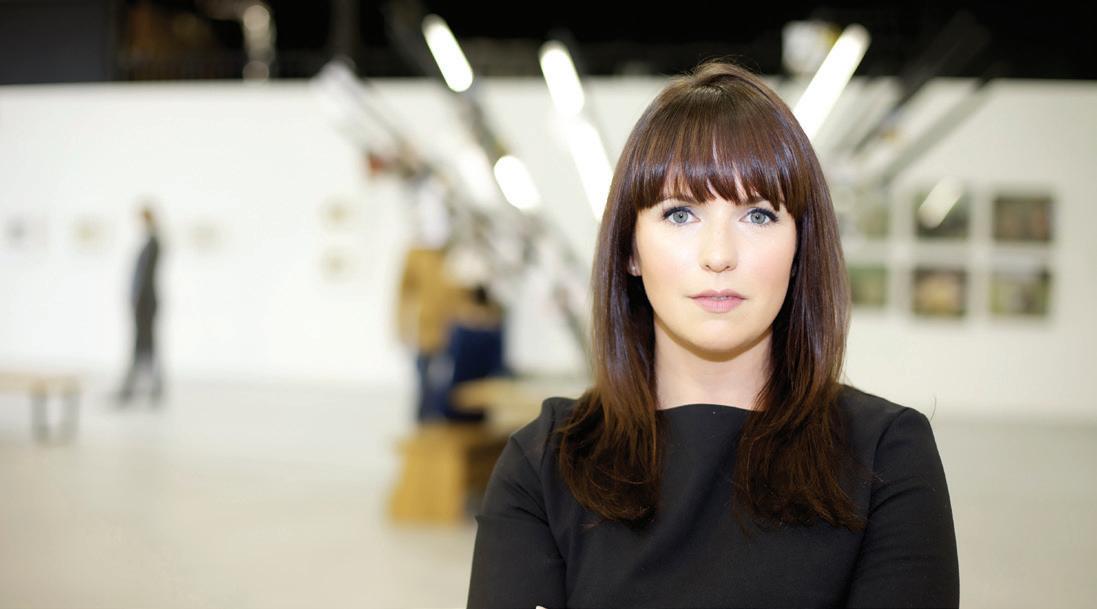
“The digital music industry means you can remain an independent artist, do what you want in a deeply meaningful way and retain both creative control and the lion’s share of the revenue, which you could never do before,” she says. “You just need a really good distributor and a really great entertainment lawyer who knows the business and has the contacts needed.”
Bailey’s journey into the legal profession is as unconventional as her approach to marketing. She initially trained as an art historian in British Columbia, but courses in cultural property law and cultural heritage raised issues that intrigued her. She decided to explore those issues further at the Schulich School of Law.
“Throughout my studies, I was very pointed about going into art and entertainment law, so I did everything I could in intellectual property,” she recalls. “But more than meeting my interests, I also discovered that law school had a deep community underpinning.”
That discovery proved transformative, and it is reflected in Bailey’s many volunteer involvements. They include serving on the board of The Polygon Gallery, the jury of Austin’s Art in Public Places and on the jury of the Junos, among others.
“An American colleague asked me why I do it when I could just lean further into my practice,” Bailey says. “I can trace that back to Weldon, which instilled a passion for civic engagement and community building in my bones.”
That Bailey finds time for these commitments is impressive given the ongoing growth of her practice and her other pursuits. During the pandemic, she became a registered mediator – a complement to the legal services she provides. She is also embarking on a project that aligns all her skills and interests – a new TV show in which a musician will take viewers on musical and cultural journeys through the cities that they love.
“This is an opportunity for me to give back to the industry and expose artists who mean a lot to me to a larger audience,” she says. “I’m really hoping for a long run for this show, which in many ways is the weave of many threads of experience over the years coming together.”
When Darren Kirkwood (’00) tells people he works with Maple Leaf Sports & Entertainment (MLSE), he generally gets a lot of comments about how cool his job must be. He agrees it is, but adds it isn’t always glamorous.
“I really love my job,” says Kirkwood, who serves as the company’s Vice President, Deputy General Counsel. “I get to work with the preeminent sport and entertainment talent in Canada and I love the people I work with. I know I am absolutely lucky to be where I am. But law is law. You are still handling contracts and you are still managing expectations.”

Even so, there is a clear enthusiasm in Kirkwood’s voice as he talks about that legal work in the context of the organization’s diverse portfolio. In addition to owning major league sports franchises like the Toronto Maple Leafs and the Toronto Raptors, MLSE also owns or operates venues, restaurants and broadcast interests. That creates a wealth of opportunities for Kirkwood to apply and expand his legal expertise.
“What I work on in any given day is wide ranging from a legal perspective,” Kirkwood says. “It could be sponsorships, marketing, real estate, HR, labour or technology. But for me, that’s the beauty of this job.”
Occasionally, it can be challenging to keep pace with the legalities involved in that work. One challenge that comes to mind is the privacy laws MLSE must negotiate as its teams’ fan bases become increasingly globalized.
“For example, we have two Toronto FC players who played on the Italian national soccer team,” Kirkwood says. “That means we have people from other jurisdictions who are providing us with personal information. So it means we have a responsibility to ensure that we are complying with privacy regulations in other jurisdictions.”
Resolving those challenges is rewarding for Kirkwood. So too is his involvement with MLSE’s corporate social responsibility initiatives. He has worked extensively with the MLSE Foundation, which supports upgrades of athletic facilities and charities focused on youth. He also played a key role in negotiating the lease for MLSE Launchpad, a 42,000 sq ft facility that is helping youth reach their full potential through sports and life training.
“That’s one of my biggest accomplishments,” Kirkwood says. “We have had program participants who have gone on to management roles with the facility, so it is having an impact. My role is to ensure it continues to do that by making sure it is well funded.”
That desire to give back was fostered by the strong sense of community Kirkwood found at Dalhousie. “Dal attracts students from across the country,” he says. “Moreover, your law school peer group is your immediate social and support circle. This contrasts with the experiences that students from major urban centres have shared with me, where people come from the surrounding area, attend class, and return to their non-school environment. The immersive experience of Dalhousie provided me with incredible, close friendships
Just as those bonds endure, so do Kirkwood’s ties to MLSE, which span more than 25 years. “My ascension to the vice presidency was just over a year ago,” he says. “There is still much more to learn, and I am still building my brand as a leader in and outside the company. I’m quite happy to be here.”
There are many ways that law school alumni apply their learning in life. Taska Carrigan (’85) used hers to get to Sesame Street. Carrigan didn’t set her sights on the critically acclaimed children’s show. The opportunity came to her when she was working in the program acquisitions and co-productions department at the Canadian Broadcasting Corporation. Her responsibilities involved annual negotiations with the Children’s Television Workshop – now known as Sesame Workshop – to produce the Canadian version of Sesame Street. During one fateful call, she mentioned her husband was working in New York City and she had been going back and forth from Toronto to visit him.
“They told me they were looking for a lawyer,” recalls Carrigan. “I thought it was worth the conversation and, after several months of interviews, I got the job.”
That was almost 30 years ago. Today, Carrigan is Senior Vice President of Production Management, Operations, Business Affairs and Legal at the non-profit organization that has been engaging and educating kids for more than 50 years. She oversees the legalities involved in producing content – everything from collective bargaining with talent and crews to content distribution agreements. “I think of myself as being part of a group that navigates the relationships we make and then honours them by fulfilling the obligations in the agreements,” she says.
Given Sesame Workshop’s engagement in everything from curriculum work to merchandise licensing, Carrigan’s work isn’t as easy as ‘ABC’. Perhaps the biggest challenge is keeping pace with the evolution of the industry, in particular new technologies and platforms for delivering content.

“It’s been a constant learning process,” she says. “How do we create podcasts? How do we make shows for people in different markets around the world? It’s constantly changing.”
Such change delights Carrigan. New seasons of Sesame Street mean navigating shifting tax credits, updated guild rules, new production models and potential strikes. She keeps pace through continual training, which is invaluable in tackling emerging issues such as how the use of artificial intelligence (AI) in content creation impacts relations with the writers guilds and other creative contributors.
“There is a little ambiguity as to where copyright lies in that material,” she explains. “We are restructuring our contracts to require content providers to reveal if they have used AI. In these early days, it’s a challenge to figure out how AI will benefit and/or harm the creative process. I can’t say I have ever been bored at my job.”
Carrigan says her law school experience has been crucial to her success. She recalls how inspired she was by her classmates’ strong commitment to use their experience to create a better society.
“There wasn’t this sense that people were going to graduate so they could make a lot of money,” she says. “The ethos at the law school was one of passionate people who had important things they wanted to accomplish. I think that experience totally, indelibly shaped me.”
Having found her way to Sesame Workshop, Carrigan has no plans to move on. After all, there are more challenges to take on, and more opportunities to learn and grow.
“There has been so much to do over the years that I never really had time to think about leaving,” Carrigan says. “I am really grateful to be here and have the broad-based experience I’ve had. But more than that, I am delighted that I get to empower people to make content that is meaningful and authentic, and helps the audience see the world the way it should be seen.”
“The bid phase involved meticulous research, a steep learning curve and a requirement to answer complex legal and operational questions. Planning involved not just the tournament, but also national infrastructure and legacy projects with a cumulative spend of $200+ billion. Operational delivery culminated in an event watched by a global audience of five billion, and now we are liquidating and dissolving the local organizing committee.”
It was a dream come true for a lifetime soccer fan like the Calgary-born Wasti, who managed the event’s legal affairs. But it was not without its share of behind-the-scenes problem-solving. Legal solutions needed to be airtight but nimble enough to accommodate operational shifts. That kept the work invigorating for Wasti, as did the opportunity to tackle challenges related to human rights and workers’ welfare.
“There were fair and unfair attacks on Qatar and the organizers of the World Cup on this front,” he says. “We supported a complex regulatory framework, and its enforcement, ensuring protection of human rights at a world-leading standard and managed unrelenting global media criticism. This was one of the most gratifying aspects of the project, given the positive outcomes, achievements and life-changing work benefitting thousands of migrant workers.”
Equally rewarding for Wasti was the opportunity to work on legacy projects like Generation Amazing, a corporate social responsibility project that uses soccer to advance impactful change among a new generation of leaders. “I was fortunate not just to advise on these projects from a legal lens, but also to be operationally involved from research through to launch.”
Athletes spend their lives preparing for the FIFA World Cup. So has Aarij Wasti (’03).
For the past 15 years, Wasti has devoted his legal skills to FIFA World Cup Qatar 2022. He says it was an incredible opportunity to learn, grow, and contribute to the meaningful development of a legal team, first at the Supreme Committee for Delivery and Legacy, and then FIFA World Cup Qatar 2022 LLC.
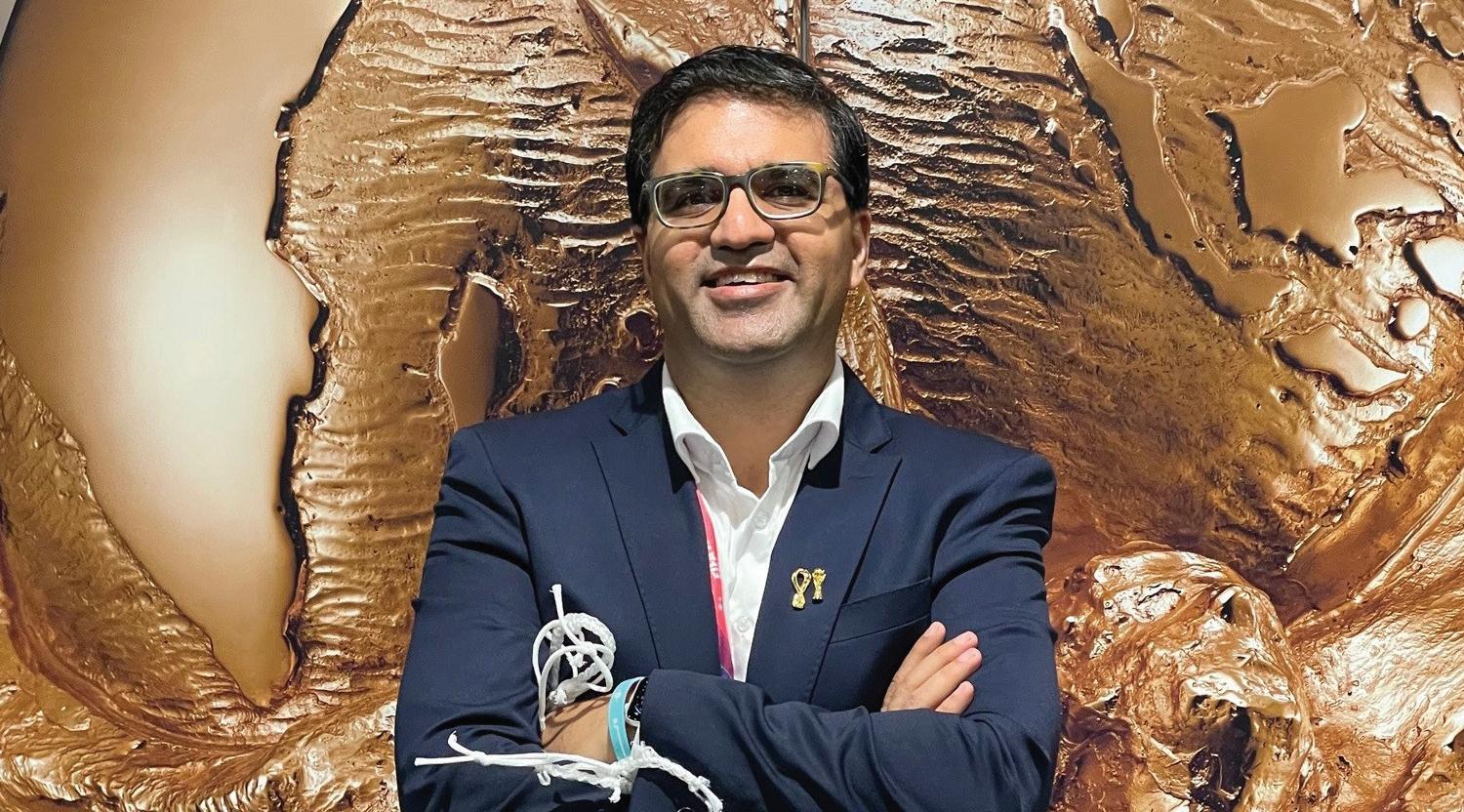
“Each phase was a unique project in its own right,” says Wasti, whose most recent role was Director of Legal & Compliance for the event.
Wasti credits his law school experiences, in particular the constitutional law class debates overseen by professor Wayne MacKay, as invaluable in preparing him to work on the World Cup. “That really laid the foundation for me to have the ability and confidence to take a legal position, no matter how unpopular, support it passionately, yet objectively, and most importantly, listen to others, even if we were in disagreement,” he recalls. “This Socratic method of learning instilled skills that strengthened more than my law and client advocacy abilities. It gave me key management skills that, in the long run, allowed for greater and broader growth opportunities.”
As exciting as his World Cup experiences were, Wasti is grateful for the slower pace of liquidating and dissolving. But like any star athlete, Wasti is facing the question as to what’s next.
“I am currently looking at everything from a role focused on confederation level soccer (Asia and/or South America), to consulting law firms in Canada and the United States as they advise clients in relation to the FIFA World Cup 2026 in North America, to an extended break to spend more time with my kids,” he says.
Whatever he chooses, Wasti is sure to bring his A-game.
Having your current contact details allows us to send you information on:

law school news events & guest speakers class reunions & regional events continuing education opportunities volunteer opportunities and more!

ALL UPDATES WILL BE ENTERED INTO A DRAW FOR A $500 VISA GIFT CARD
DRAW DATE SEPTEMBER 15, 2023
HAVE YOU MOVED? RETIRED? CHANGED EMPLOYERS?
Intensives are three-day courses taught by subject experts that expose students to new, emerging and specialized areas of law.
BY STEPHANIE HURLEYThe Schulich School of Law introduced intensive courses just over a decade ago as a complement to the law school curriculum. Intensives are one-credit courses that take place outside of typical class hours and are evaluated by submitting a written assignment. They are taught by private practitioners, visiting academics and industry experts.
“Intensive courses enrich the curriculum in several ways,” says Camille Cameron, Schulich Law Dean. “They create opportunities to explore in greater depth topics that are introduced in our other courses. They also enable us to focus on new, emerging and specialized areas of law that would not otherwise be addressed in depth in our curriculum. In the past few years, our intensive course offerings have included the legalization of cannabis, advanced commercial drafting, medical assistance in dying, self-represented litigants, international commercial arbitration, and cybersecurity. The intensive nature of the courses means that we can call on subject experts who would not be able to commit for a full semester but who can commit for a few days.”
Since their introduction, intensives have been very popular with Schulich Law students. They have limited enrolment, thus offering students a small group experience.
“Intensives have been essential in preparing me for practice as a lawyer,” says recent graduate Grace Mangusso (’23). “Taking intensives with skilled practitioners and alumni of the law school has been one of my favourite learning opportunities. It’s a great chance to gain practical insights, focus on unique aspects of the law and round out your legal education.”
Joseph Chedrawe (’05) is a partner at Covington & Burling LLP in Dubai where he leads the international dispute resolution team. He has taught an international commercial arbitration intensive at the law school for the past five years.
“From my time starting out as a lecturer in law at the University of Oxford in 2009, I knew that I wanted teaching law to become a permanent part of my professional life. When I returned to private practice in Dubai, it seemed that might not be possible,” says Chedrawe. “So when the opportunity came up to develop and teach an intensive on international commercial arbitration at Schulich Law, I jumped. The fact that I’m a Dalhousie Law School graduate makes it even more meaningful. I gained so much from my time at the law school, and I’m grateful to be able to give back to the school and its students all these years later. I feel like I learn as much as the students do every year.”
Mangusso was one of the students who took Chedrawe’s intensive this past year.
“International commercial arbitration was an incredible introduction to an area of law that was previously unfamiliar to me,” says Mangusso. “Joseph is an engaging instructor who made this complex topic interesting and informative. Learning about this subject from someone who advocates in front of arbitral tribunals and is an arbitrator himself was a highlight of my law school experience.”
Jon Legorburu, Schulich Law’s James S. Palmer Chair in Public Policy and Law, is currently based in Ireland and teaches an intensive on cybersecurity.
“The intensive model gives us the opportunity to explore topics like cybercrime, AI futures, ethical challenges, and tensions in the economy and society,” says Legorburu. “Intensives enable us to learn through courageous collaboration, challenge and support. They are always stimulating for students and for the instructor.”
Serena Feeney (’23) was fascinated by the subject matter in Legorburu’s intensive. “The course encouraged us to think critically about cybersecurity attacks, considering different perspectives, interests and response requirements,” she shares. “It included a talk from a former FBI agent who discussed his cybersecurity work in the field and provided details about some cases he worked on (including some details not widely known to the public!). It was a great opportunity to interact with other students and learn from a lawyer who worked on one of the biggest government cyberattacks to date.”
Intensives can leave students with a strong grasp of the fundamentals of each topic while serving as an excellent starting point for continued study.

Schulich Law Professor Jocelyn Downie taught a law and policy intensive this past year called From Legal Research to Public Policy Impact. “Students arrive in class with a research paper already in hand that was written for some other course. They then learn how to move from their paper to policy impact by learning about writing OpEds and blogs, writing briefs, giving
oral testimony before Parliamentary Committees and doing media interviews,” explains Downie. “It’s wonderful to see the student’s excitement over developing skills that they can see right away will help them to really make a difference in the world.”
Devon Campbell, a 2L student, took an intensive last fall taught by Dr. Alan Hanna, Assistant Professor at the University of Victoria. The course explored Indigenous law through the context of AngloCanadian contract law. “This was done by analyzing Tsilhqot’in, Secwepemc and Cree stories using the structure of a typical case brief. This structure enabled us to examine the stories through a similar lens through which we assess common law cases. If you’re a student with space in your schedule, I encourage you to take an intensive!”
Ensuring the curriculum prepares students for the complex world in which they will work as lawyers is a priority for the law school, and intensive courses are one way to fulfill this responsibility. Many intensive courses are taught by alumni. If you are interested in exploring possibilities, please contact associatedeanlaw@dal.ca.
Taking intensives with skilled practitioners and alumni of the law school has been one of my favourite learning opportunities. It’s a great chance to gain practical insights, focus on unique aspects of the law and round out your legal education.
Elaine Craig (LLB ’04, JSD ’10) has never shied away from tackling troubling societal issues.
A professor at the Schulich School of Law, Craig teaches and researches in the areas of constitutional law, law and sexuality, and feminist and queer legal theory. She advocates for survivors of sexualized violence to be better treated, particularly by legal systems and the people working in them.
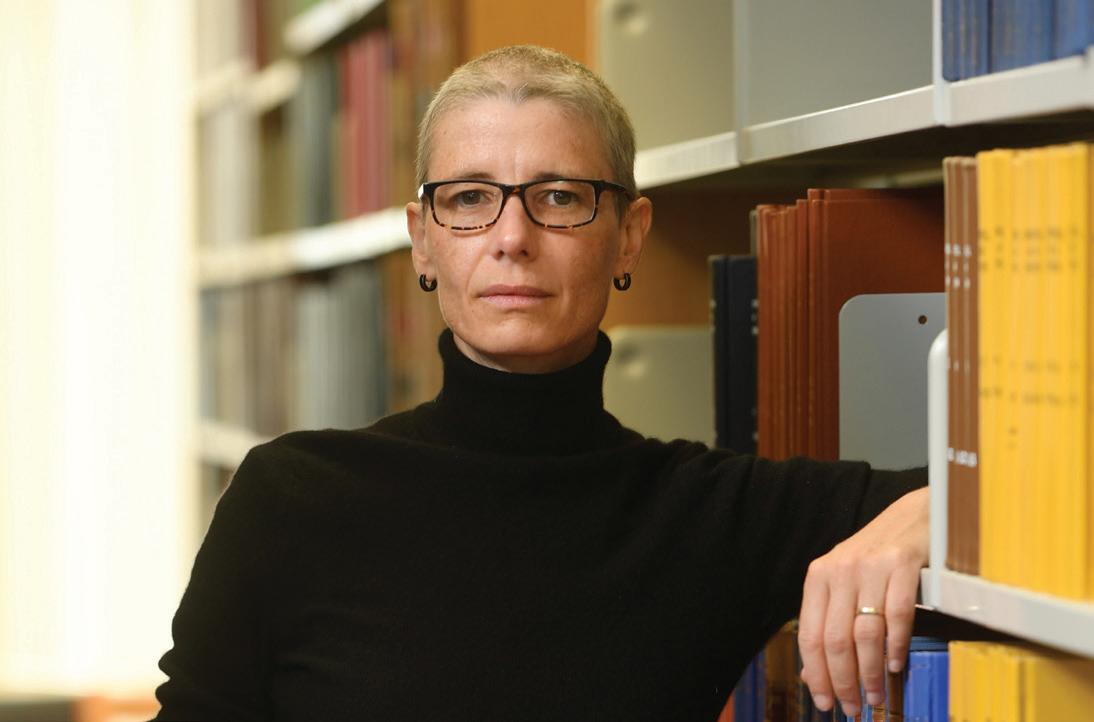
“This [sexualized violence] is a pervasive social problem, particularly for women and children, but it’s actually a social problem that affects everyone. It also seriously diminishes the quality of life for men when we live in a society that has pervasive harmful sexual behaviour. It actually harms everyone. No one flourishes.”
Growing up in Red Deer, Alta., Craig devoured crime stories and was intrigued by criminal law. While studying criminology at the University of Alberta, she had a seminal field placement at a treatment program for young people convicted of committing sex offences. Encouraged by its success in reducing recidivism, Craig stayed on working for a year before starting law school.
“It was a really interesting program that challenged me and some of my perceptions about people who had sexually offended. Sometimes people are surprised to hear that I started in that kind of space because most of my work is really oriented towards figuring out ways to improve the legal system for survivors. But for me, I don’t see a tension there,” she says. “If we can figure out ways to reduce people’s harmful sexual behaviour, that’s good for women and girls.”
Her decision to study at Dalhousie was cemented by an adventurous, cross-country road trip she took to Nova Scotia before applying to law school. “Almost as soon as I got here, I knew I wanted to be a law professor,” she says. “I loved law school. It was a wonderful experience.”
Despite the clear vision she had for her future career, she took the advice of Professor Ronalda Murphy and articled with the Toronto law firm Paliare Roland; she was called to the Ontario Bar in 2005. Craig credits her articling year, as well as her time at the Dalhousie Legal Aid Service during law school, for teaching her many of the soft skills she uses today working with lawyers as a part of her scholarly research.
“There are things you can’t learn without spending time either in a courtroom or working with practitioners,” she adds.
Craig went on to get her master’s degree in law from Yale University before returning to Dalhousie where she received her doctorate in law. Her doctoral research focused on legal conceptions of sexuality, and the role of sexual integrity in law.
She won the Dalhousie University Doctoral Thesis Award for the Humanities and her research later resulted in a book, Troubling Sex: Towards A Legal Theory of Sexual Integrity.
In 2018, she published her second book Putting Trials on Trial: Sexual Assault and the Failure of the Legal Profession. A thorough evaluation of the legal culture and harmful courtroom practices prevalent in sexual assault prosecutions, her research is credited for leading to better education for judges and lawyers and discussions about the need for improved law and practices in Canada and a heightened sensitivity toward survivors.
The same year her second book was published, Craig co-founded the Canadian Centre for Legal Innovation in Sexual Assault Response (CCLISAR) and became its inaugural Research Director.
In 2019, she was named to Canadian Lawyer’s annual Canada’s Top 25 Most Influential Lawyers list in the Human Rights, Advocacy, and Criminal category. Last year, the Law Society of Ontario presented her with a Doctor of Laws degree for being at the forefront of remedying a pressing societal challenge the Supreme Court of Canada had identified: helping to limit the role that myths and stereotypes play in cases involving sexual violence against women.
Outside of her writing and advocating, Craig is engaged in teaching, including a new course she developed called Clinical Advocacy Law and Policy: Responding to Sexualized Violence. She’s also working with the Nova Scotia Public Prosecution Service on a project looking at sexual offence prosecutions, analyzing data and determining ways to improve the legal process.
This summer she’s excited to camp and canoe with her partner and their two teenaged children, and to put the finishing touches on a new book she anticipates will be published in late 2024. The book delves into the relationship between pornography and sexualized violence.
From her early days working with sexual offenders to her present scholarly work, she remains focused on a lofty goal: to improve law and practices in Canada and make life safer for women and girls.
“I always find it difficult. I think if you don’t find it difficult it is probably time to move on to a different subject matter.”
When McFarlane “Marc” Chebesi Njoh (’16) saw an opportunity to leave his war-torn country of Cameroon and start a new life in Canada at the age of 22, he took it. In 2006, he flew to Montreal with the name and address of a distant cousin he could stay with. He found himself stranded at the airport when he realized that the only money he had – West African francs – was not considered a valid currency and could not be converted into Canadian dollars.
“At the airport, two gentlemen from Mali helped me to get to my cousin’s address, and once I was there my cousin’s best friend reached out to her brother in Calgary. He and his friend decided to take me in,” explains Njoh. “So they paid for my flight to Calgary the following weekend and picked me up from the airport. We lived together for about a year.”
Njoh was studying law and politics before he left Cameroon, but once he arrived in Calgary he sought a well-paying career that would help him settle. He tried nursing for a semester, then worked in warehouses, before enrolling at the University of Calgary. In 2009, he met his wife, Shannan, who convinced him that they should move back to Nova Scotia where she was from.
“I knew I wanted to go back into law and had been considering transferring to Dalhousie,” Njoh says. “Plus, we were expecting our first child and could do with some family support.”
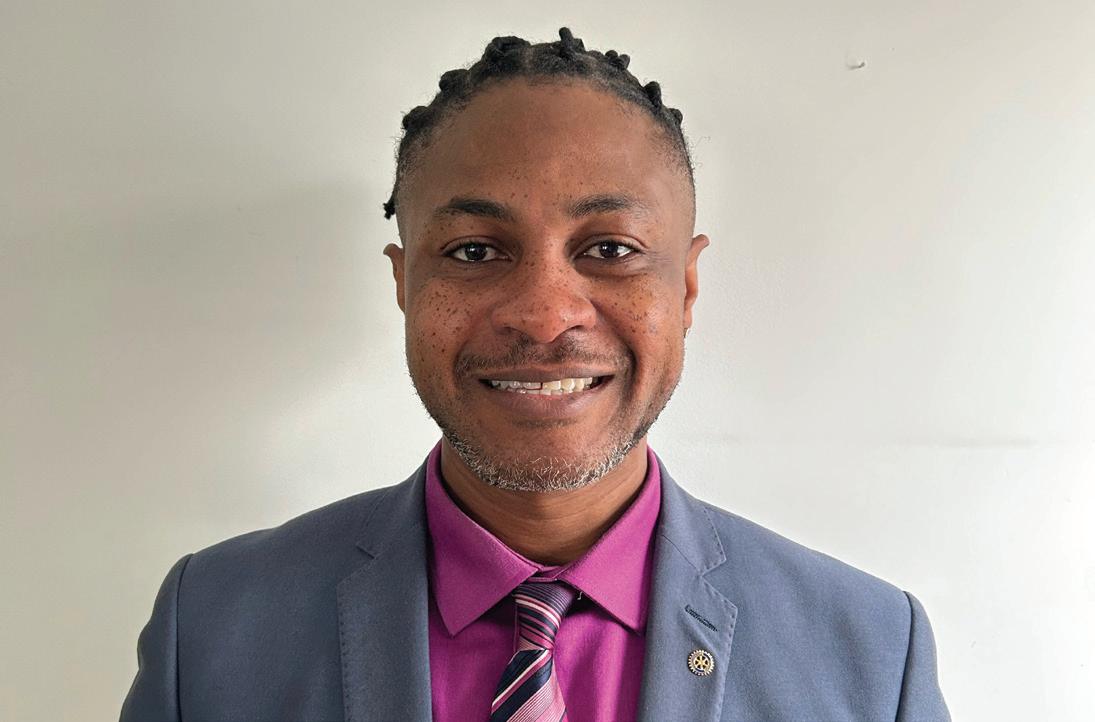
The move proved to be a good one. Njoh says that he felt immediately welcomed at Dalhousie where he threw himself into student activism as a way of connecting with people. He became class president and held positions in various other student groups. In the second year of his undergrad, he became President of the African Students Association. He also tutored underprivileged children with the Black Educators Association of Nova Scotia.
At the Schulich School of Law, Njoh earned two Schulich Scholarships for community service and the Nova Scotia Barristers’ Society (NSBS) President's Award for Leadership. During this time, he became Vice President of the Dalhousie Law Students’ Society and General Secretary of the Canadian Black Law Students’ Association.
Njoh also volunteered with Dalhousie Legal Aid Service's Out of the Cold project. “In the evening we’d go to Halifax shelters and advise people, many of whom were homeless, around issues of residential tenancy. We’d listen to and try and understand their experiences,” he explains, admitting that it blew his mind to see the problems people were having in this developed country. “Before I arrived in Canada, I assumed that society here was so perfect.”
After graduating, he began working with law firm Stewart McKelvey and then with the Nova Scotia Public Prosecution Service first in Kentville, then Yarmouth, and Port Hawkesbury before transferring to Sydney.
Living in Cape Breton suits Njoh well. “We are surrounded by Shannan’s family, and my three kids are growing up with a lot of their cousins,” he says. As for his professional life, Njoh says his goal was always to be a frontline lawyer. “I want to be where the action is, dealing with difficult situations and difficult people. I really do love helping people get through traumatic situations.”
In the meantime, Njoh has never paused his community work and as a result, was the recipient of the 2022 Public Prosecution Service of Canada’s Humanitarian Award. He sits on five boards in his community, and volunteers with numerous organizations. Njoh published a motivational book, titled Stronger: 8 Steps to Evict Stagnation, in 2020, and is working on a second title. He and his wife also operate a Segway tour business in Sydney. “I couldn’t do any of this without Shannan’s support. She's just as community minded as I am,” he says.
Njoh is also co-founder of the Peace Through Film Initiative which aims to promote peace in the Cameroons through film and dialogue. He mediates between groups in conflict and has travelled to Geneva and Cambodia to learn mediation work. When visiting home, Njoh and his Canadian family deliver medications to clinics and help however they can. “The Cameroons remains a very integral part of my being and is always at the forefront of my mind,” Njoh says. “My family is still there, and the conflict is ongoing.”
Njoh was nominated for the humanitarian award by his “very supportive” Chief Crown Prosecutor in Sydney, Kathryn Pentz. “I was so humbled,” Njoh says, “A lot of this type of work is thankless, so knowing she took the time to write me a recommendation for this award means a lot.”
This type of acknowledgement motivates Njoh to help more. “Without people helping me, I would not be where I am,” he shares. “I want to pay it forward, helping others whenever and wherever I can.”
After more than 20 years, the scholarship that bears Gerry Godsoe’s name continues to inspire the next generation at the Schulich School of Law.
BY EMMA SUTROThis article first appeared in the spring/summer 2023 issue of Giving Power.
A preeminent lawyer, advisor and scholar, the late J. Gerald “Gerry” Godsoe (’68) was a giant in the political and legal landscape –perhaps best known for his work as the Executive Director of the Macdonald Commission, which ushered in a new era for the Canadian economy through free, unrestricted trade with the United States. Nevertheless, he spent much of his professional life dedicated to public service in his home province of Nova Scotia.
“Gerry believed in his duty to use his training in the law to serve the social and public good, and his work was always focused in that area, whether locally or nationally,” says his wife, Dale Godsoe (BA ’65, BEd ’66, MEd ’87).
Gerry’s passing in 1996 was felt acutely not only by Dale and their daughters Suzanne (LLB ’97, MD ’04), Stacey and Laura, but throughout the legal community. Dale and many of Gerry’s former colleagues came together soon after to establish the J. Gerald Godsoe Scholarship in Law at Dalhousie, with the aim of carrying on his remarkable legacy and to support aspiring lawyers who express an interest in public policy.
“As a lawyer, mentor and father, he was always focused on fostering intellectual curiosity, questioning the status quo and the ability to articulate a compelling case for change,” says Dale. “The idea of supporting brilliant students to foster those skills would have appealed greatly to him.”

Among the many students supported by the J. Gerald Godsoe Scholarship in Law are recent recipients Essie Mehina and Madlyn O’Brien.
Mehina embarked on her legal career in an unexpected way: after completing her PhD in neuroscience at the University of Victoria in 2021, she realized that she couldn’t see herself in that field long term. After attending a session hosted by Bereskin & Parr LLP centred around alternative paths for people with PhDs, she realized that the law was an area she was excited to explore in greater detail.
“The experience of working in Parliament changed my interest in law and public policy to more of a ground-level focus, to what is affecting people every single day,” says O’Brien. “In my position, I was dealing one-on-one with constituents and with many of the immediate concerns faced by people.”
For Mehina, receiving the J. Gerald Godsoe Scholarship in Law in her first year, and then being renewed for her second, gave her an academic freedom that may not have been possible otherwise.

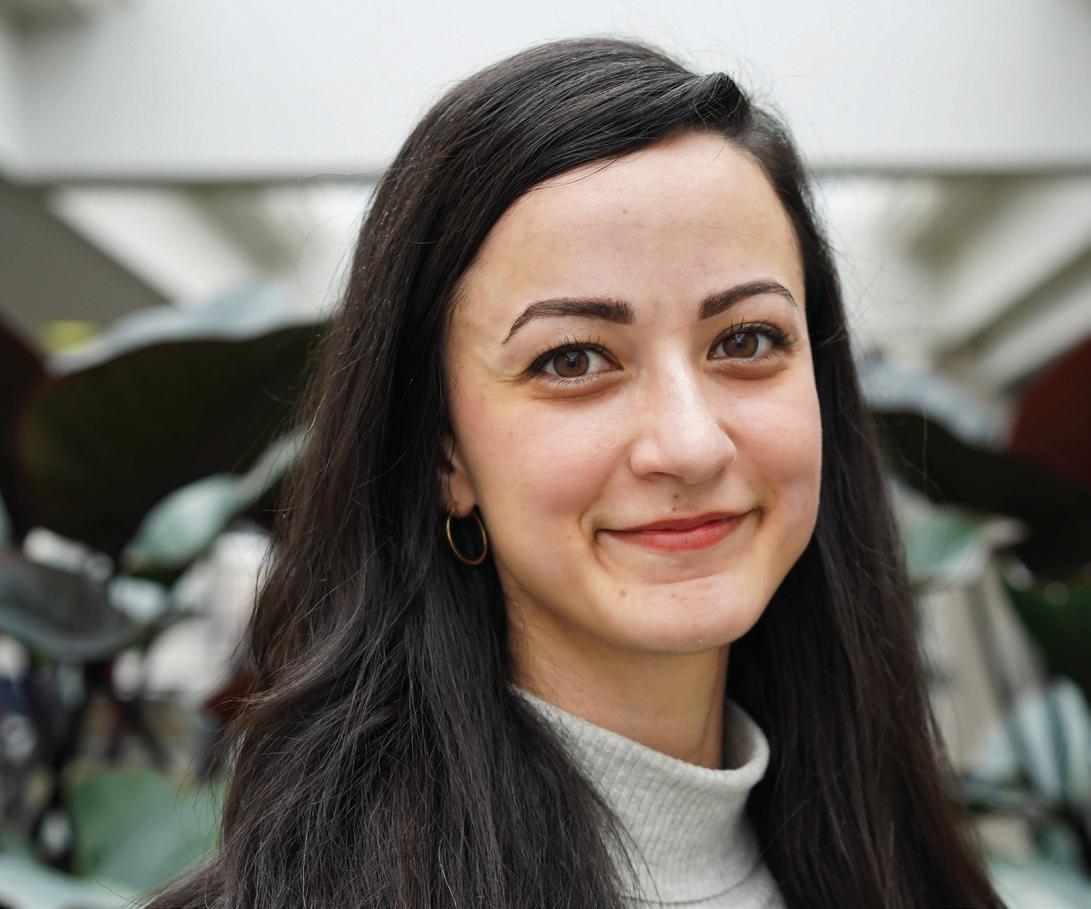
“It’s almost impossible to speak to the impact this scholarship has had on me, especially as a mature student,” Mehina says. “It has really been vital to allowing me to focus on my studies and to take on new opportunities. For example, I’m on the policy and outreach committee with the Dalhousie Student Advocacy Society, and I don’t think I could have pursued that without the support of the J. Gerald Godsoe Scholarship in Law.”
When O’Brien found out that she had received the scholarship, she also received a personal call from Cape Breton University President David Dingwall (BCom ’74, LLB ’79), who had known Gerry through the legal profession.
“That really gave me a personal connection not just to the financial aspect of the award, but also to the namesake,” O’Brien recalls. “Receiving this scholarship really made me feel recognized and gave me a sense of belonging at the law school.”
Both students will be spending this summer working at law firms and are looking ahead to their careers in the legal world – paths that have been impacted by Gerry’s legacy.
“It was a whole new perspective on what I could do with my degree and with my interests,” says Mehina. “I could study law and take the things that I loved about science and translate that into a career – one where I can still have one foot in the science field but move forward in a way that was more meaningful for me and in a way that I could have more impact on my community.”
O’Brien says her desire to study law was ignited at a much earlier age. The first-year law student says she remembers watching her sister Kelly (’18) study for the LSATs and successfully apply to the Schulich School of Law. As early as the eighth grade, the younger O’Brien was taking her sister’s LSAT textbooks to school to practice questions with her friends.
After completing her undergraduate degree at Cape Breton University, O’Brien was offered a position working on Parliament Hill with her local Member of Parliament. There, she witnessed the small and large-scale effects of public policy.
ESSIE MEHINALearn how two alumni from the Indigenous Blacks & Mi’kmaq (IB&M) Initiative are giving back to their school and communities.
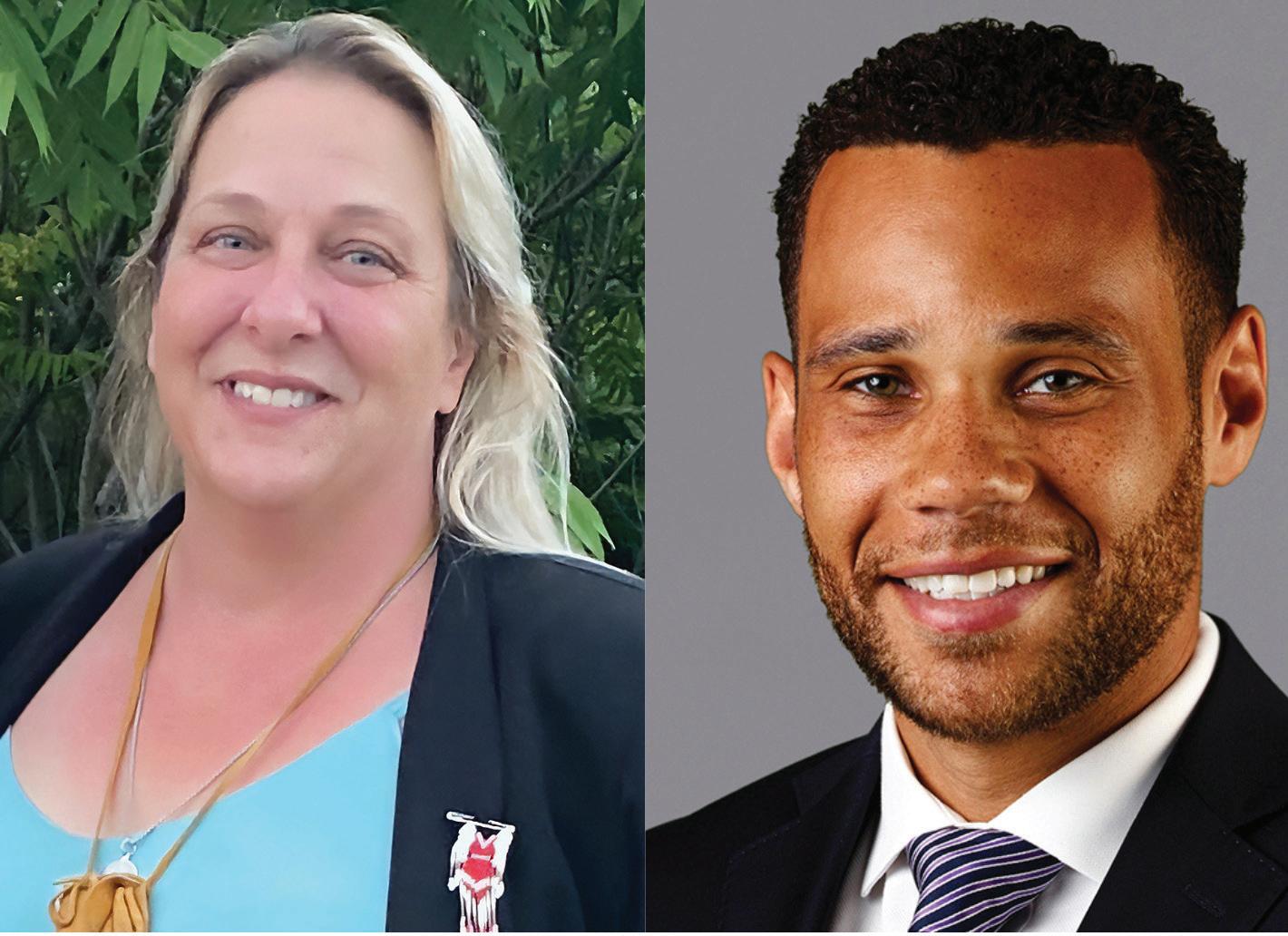 BY NICK FLYNN
BY NICK FLYNN
Peggy Händel (’19) always knew she was going places. As a bright and tenacious Indigenous girl growing up in Liverpool, N.S., at age 10 she narrowed her career aspirations down to an RCMP officer, architect and lawyer. In the early 1990s, when, when Händel was in her 20s, she crossed the first option off her list by becoming a Mountie. She left the force after just two years, deciding it wasn’t for her.
In the decade following, Händel would dip her feet into several other careers – first in hospitality, then land development and construction with her husband Matthias, and finally as a certified appraiser. In the interview for her first major appraisal position, her prospective employer indicated that proceeds from contracts would be split 60/40 his way, even though he was less qualified than she was. Händel didn’t like that. “Never mind. I think I’ll just become a lawyer instead,” she said.
True to her word, a few short months later she was moving house and starting her first year at the Schulich School of Law, all while running two businesses with her husband and balancing the responsibilities of raising their children together.
Today, she operates her legal practice, Handel Law, out of an office in Bridgewater. This year, the inaugural Handel Law Bursary was awarded to a fellow mature student and parent attending Schulich Law, bringing her journey full circle. “I remember wanting to be able to provide a little extra something for my kids, like a gift on my way home from work,” she explained. “It’s hard though. Between tuition and books and the cost of living, you often just can’t afford it. I knew I wanted to be able to give something that eases that burden.” Her newly established annual award is doing just that –supporting mature students and parents each year as they work through law school.
Halfway across the country, Nathaniel Marshall (’13) is also living out a childhood dream. Growing up in Amherst, N.S., Marshall, who works at his own Toronto practice Marshall Workplace Law, was exposed to the legal profession at a young age. He met Rocky Jones in high school and Shawna Paris-Hoyte was a family friend. He was attracted to the intellectual challenge of the law, and the opportunity to give back to his community as a Black man growing up in Nova Scotia.
Marshall recalled overcoming obstacles during and after his time at law school and empathized with the large debt loads many students carry. Even with some funding support, the cost of living and moving to a new place can be financially burdensome. This is part of what led him to create the Keith & Gail Marshall IB&M Award in honour of his parents (both Dalhousie alumni themselves) – to provide the tools and information graduates need to make sound financial decisions and offer a strong foundation to build on.
“Growing up I didn’t have much awareness about financial literacy,” he explained. “I used to have a joke – I would say ‘that’s future Nathaniel’s problem.’ But at some point, I became future Nathaniel! So financial literacy is really the point of the bursary. But it’s also to show Black and Indigenous students that this isn’t some esoteric idea. I want someone to see this, and have it put some gas in their tank, and think, ‘I’m going to do even better than that guy.’” This year marks the first year of his award as well, which gives new graduates a leg up with financial support as they transition into their articling.
Bursaries and scholarships can have a transformative effect on a student’s academic experience. Student awards can be started with an annual pledge. If you are interested in joining Peggy and Nathaniel in developing your scholarship or bursary within the Schulich School of Law, please contact Nick at n.flynn@dal.ca.
The Schulich School of Law will be offering a new internship and award in 2023 – one of the first of its kind from a Nova Scotia firm. Created over the course of the last academic year, the Patterson Law Internship and Award supports law students from equity deserving groups. It has a special focus on those looking to further their careers within the province.
The internship and award were developed through a specific interest in seeing an increase in diverse practitioners in Nova Scotia, and particularly in urban and rural settings. Work experience and financial support are key to ensuring that equity deserving students are included in the legal sector. It is often the connections and support networks at work and school that make students feel like they belong. With this in mind, the internship also offers a mentorship component from a Patterson Law lawyer to help guide the recipient in their legal education.
With many offices across the province, the firm believes that this is a great opportunity to provide options that will allow students to discover rural spaces in the province to work and live. According to Jane Gourley-Davis (’07), Partner and Chair of Patterson Law’s Equity, Diversity and Inclusion Committee, it is rural practice that sets them apart from other firms.
“What makes Patterson Law different is our ability to meet clients in their home communities while providing the full-service legal experience previously only synonymous with large city centers,” she says. “We collaborate as a province-wide team for our clients’ benefit. Many of our lawyers, including myself, call rural communities home. We don't have to choose between where we want to live and opportunities for career advancements or access to high-quality legal work.”
Recently nominated for the Canadian Bar Association’s Excellence in Equity & Diversity Award, Patterson Law has done extensive work over the last several years to further their Equity, Diversity, Inclusion, and Accessibility (EDIA) efforts. In 2020, the firm’s board made a choice to prioritize EDIA work, and a committee was struck to take on these initiatives. This included the development of a specific Equity, Diversity, and Inclusion policy, as well as additional training for staff and lawyers. The firm is currently led by two women alumnae from Schulich Law: Kate D. Harris, K.C. (’88) and Jennifer J. Hamilton Upham (’06). Most recently, the committee approached the law school to develop the internship and award as part of their efforts.
Anna-Marie Manley, Patterson Law Partner and committee member, was involved in the internship’s creation. “Initiatives such as this are one of the many ideas we’re putting forward to move our commitments from intention to tangible actions whenever possible. We are always looking for the brightest and sharpest minds to join our firm, and we hope that this initiative, and others like it, will help remove the obstacles that may be holding back the next generation of great lawyers from joining our ranks. We are excited to see how the Patterson Law interns advance in their careers in the years to come.”
Applications and placement for the internship will begin in the next academic year. The Schulich School of Law Internship Program is one of the best in the country, placing more than 50 individual students the summer after their first year of law school into paid work opportunities across the country and around the world. Experiences range from supporting non-profits in their mandates to working with corporate in-house legal teams.
If you or your workplace are interested in learning more about supporting student awards and bursaries, or the Internship Program, please reach out to Assistant Dean, Advancement, Sarah MacDonald at sarah.b.macdonald@dal.ca or 902.476.3212.
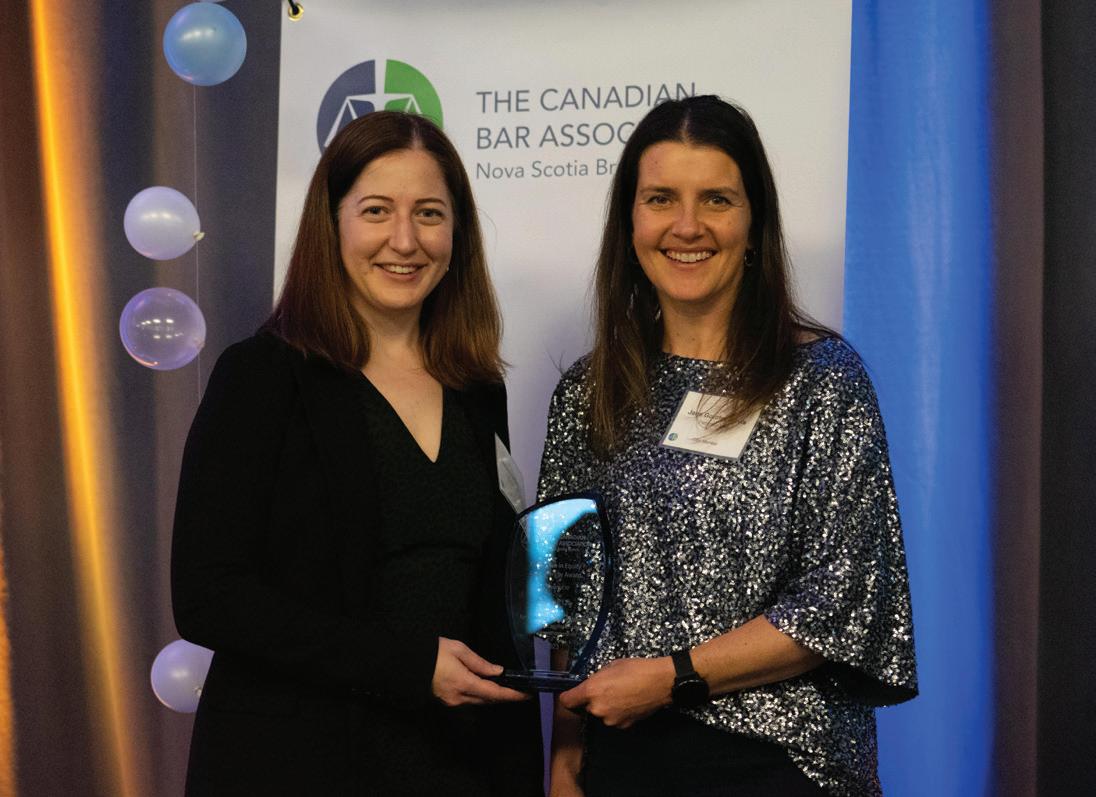
This report is a recognition of gifts received between April 1, 2022 and March 31, 2023.
William McColm
David Reardon
William E. Wells
1969
Total Class Giving $3,871 Class Participation 12%
Participating Donors:
Brian D. Bruce
Edward Chase, K.C.
Morris J. Haugg, K.C.
Steve Konchalski
Paull N. Leamen
Robbie G. MacKeigan, K.C.
William Fitzgerald Hon. Donald Oliver,
John McFarlane, K.C.
David A. Milner
Robert B. Waind
1970
Total Class Giving $1,896 Class Participation 11%
Participating Donors:
Richard W. Cregan, K.C.
Hon. Gerard Hawco, K.C.
C. Thomas LeBrun, K.C.
Hon. Theodore E. Margeson
Hon. Sandra Oxner, K.C.
Pat Curran
Mary Dawson, K.C.
Hon. Emile R. Kruzick
George MacDonald, K.C.
Kathleen Marrie
Dennis Y. Perlin
John M. White
1971
Total Class Giving $7,542
Gorham
Murphy, K.C.
John Myers
Class Participation ............................. 6%
Participating Donors:
Hon. M. A. Cameron
Donald Gibson
Derry Millar
Peter A. S. Milliken
Douglas Moores, K.C.
Tarcisio Nella
Hon. George Macintosh, K.C.
Hon. Thomas Marshall, K.C.
Hon. Randolph Mazza
Avon Mersey
J. Fraser B. Mills
Ronald B. Mitton
Hon. Dennis Patterson
Clif Prowse
Hon. Paul Rivard
Jeffrey L. Schelew
Hon. Janet Sinclair Prowse
George H. Sutherland, K.C.
Walter Thompson, K.C.
Hon. Derek Wells, K.C.
Hon. Jim Wilson
1973
Total Class Giving ........................ $3,910
Class Participation 8%
Participating Donors:
Michael Bird
Howard Epstein
Hon. Brian Gibson
Hon. Robert B. Hyslop
John McLeish
Thomas W. Patience
Hon. Nicoll M. Scaravelli
1974
Total Class Giving ..................... $43,570
Class Participation ............................ 16%
Participating Donors:
Bruce Archibald, K.C.
Mel F. Belich, K.C.
John W. Chandler, K.C.
Mary Clancy
James Coleman
Hon. Brent Cotter, K.C.
Hon. Tamarin Dunnet
Bruce Elman
Richard S. Goodman, K.C.
C. Day, K.C.
Kenneth H. Glube
Janette M. MacDonald
Hon. George J. Mullally
Ernest G. Reid, K.C.
David Ritcey
Hon. Michael Phelan
1972
Total Class Giving $17,635
Class Participation 25%
Participating Donors:
Frank Borowicz, K.C.
Barboura Budnick
Daniel M. Campell, K.C.
Terry Cooper, K.C.
Cherry G. Ferguson
James Gregg, K.C.
Hon. M. Jill Hamilton
Paul D. Jardine
Mark C. Johnson
Hon. Justice Beryl MacDonald, K.C.
Hon. Justice James MacPherson
Hon. A. Anne McLellan
Connie M. Munro
Martin J. Pink, K.C.
John Plowman, K.C.
Lynne Reed
Hon. Elizabeth Roscoe
R. Brown, K.C.
James Gould, K.C.
Heather Grant
Hon. D. William MacDonald, K.C.
Dr. Edgar Gold, K.C.
Gary Holt, K.C.
Gary G. Kitchen
Hon. J. Vernon MacDonald
Paul Stokes, K.C.
Total Class Giving $4,180
Class Participation 6%
Participating Donors:
David Feindel
Gregory S. Hildebrand
Lawrence Pascoe
Hon. Paul J. Pearlman, K.C.
F. T. Mark Pujolas
Wendell Sanford
Michael Schelew
James Chisholm
Michael F. Donovan, K.C.
Elizabeth Ellis
Anne Emery
David S. Green
Valerie Macdonald
Mary E. Meisner, K.C.
Don Roger
Hon. Judge Peter Ross
Claude Samson (LLM)
Hon. Margaret J. Stewart
Shirley Strutt, K.C.
Tom Strutt 1979
Participating Donors:
Hon. Jean-Louis Batiot
James Burgess, K.C.
Roberta J. Clarke, K.C.
David G. Fredricksen
Linda M. Gaudet
Gerry Goneau
Peter W. Gurnham, K.C.
David C. Hicks
Mary A. Kimball
Andrew Love
V. A. “Bud” MacDonald, K.C.
Hon. M. Clare MacLellan
Brian MacLellan, K.C.
Timothy Matthews, K.C.
Stephen Mattson, K.C.
M. Elizabeth Mustard
Hon. Linda Oland
Robert M. Purdy, K.C.
Lynne Redden
Gerry Roy
John Stringer, K.C.
Anthony L. Sweet
1977
Participating Donors:
Hon. Robert Barnes
Hon. Nancy Bateman, K.C.
Janice M. Bruni, K.C.
Hon. Justice Kenneth C. Haley
Alison Taylor Love, K.C.
Colin Patrick MacDonald, K.C.
Robert G. McNeil
Susan C. Potts
Douglas Ruck, K.C.
Hon. Judge Michael B. Sherar
Elizabeth J. Shilton
Hon. Justice Frans F. Slatter
T. Ann Smiley
James Stanley
Robert Stewart, K.C.
Michael Sullivan
1978 Total Class Giving $4,783 Class Participation ............................ 11%
Participating Donors:
Robert D. Annett
Frank Archibald
Elizabeth Callaghan
Joseph A. Cameron
Hon. Chief Justice B. Richard Bell, K.C.
Mary Ann Burke-Matheson
Hon. Judge Marc Chisholm
John Cuthbertson, K.C.
Hon. Associate Chief Justice Patrick
Duncan
Randall Fleming
D. Suzan Frazer
Hon. M. David Gates
S. Donalda MacBeath
Brian Maltman
Marian McGrath
Paul D. Michael, K.C.
Hon. Justice Rosemary Nation (LLM)
Kerry Oliver
David N. Ross
Hon. Judge Alan Tufts
Raymond Wagner, K.C. 1980
Dyer
P. R. Hames
Brian G. Johnston, K.C.
Stuart Koskie
Mark MacDonald, K.C.
James MacLean
J. Brian Medjuck
Anthony Pylypuk
Hon. Justice Sheila Ray (Ava Ray Memorial Foundation)
Mark S. Rosen
Randy Smith
Hans Von Hedebrand U. D. Lasa (LLM) 1981
Barry Ryan
Clifford J. Shaw, K.C.
Philip J. Star, K.C.
Paul L. Walter, K.C.
Vance Wirth
Rhonda Wishart
1982
Total Class Giving $6,775
Class Participation 9%
Participating Donors:
Gregory H. Crosby
Brian W. Downie, K.C.
Scott P. Gray
Kerry M. Harnish
Ian MacKay
Linda Rankin
Toshimi Sembo
Shauna Sullivan Curley, K.C.
Dr. David VanderZwaag (LLM)
1983
Total Class Giving $6,988
Class Participation 9%
Participating Donors:
Brian W. Derrah
Guy Desmarais
Daryl Fridhandler, K.C.
D. A. Landry
Hon. Justice Scott Norton, K.C.
Hon. Geoff Regan
Ronald Stockton
A. Christina Tari
Natalie Vukovich
1984
Total Class Giving ........................ $4,915
Class Participation ............................ 11%
Participating Donors:
Janet Chisholm
John S. Fitzpatrick, K.C.
Peter Gorgopa
Mark A. Greenberg
Shirley Lee, K.C.
Robert R. MacArthur
Hon. Justice Gillian Marriott, K.C.
Dr. Moira L. McConnell
Douglas McLean
Ken Mills
Jim Musgrave, K.C.
Hon. Kim Pate
Maureen Reid
Phillip Saunders
Hon. Judge Gregory Stirling, K.C.
Jeremy A. Thomas (LLM)
Hon. Chief Judge Pam Williams
1985
Total Class Giving ....................... $7,635
Hon. Valerie A. Miller
Dean Pietrantonio
1986
Total Class Giving $5,740
Class Participation 6%
Participating Donors:
Hon. Judge Michelle Christopher, K.C.
Linda Dolan
Hon. Justice Theresa Forgeron
Clara Greco
Donald B. Jarvis
Alex MacFarlane
Robert R. Regular
Ronald M. Snyder
Nancy Trott
Ian Wallace
1987
Total Class Giving $6,010
Class Participation ............................. 5%
Participating Donors:
Robert A. Balcom
Charlotte Davis
Paul R. Ives
John Kulik, K.C.
David Layton
Mary E. Murphy
1988
Total Class Giving $5,800 Class Participation
Participating Donors:
E. W. Scott Dickieson, K.C.
Donald J. Dow
Alnasir Meghji
Mark Schmidt
Ann G. Wilkie
1989
R. Glen Boswall
Hon. Judge Peter Chisholm
Hon. Judge Stephanie A. Cleary, K.C.
Hon. Chief Justice Jim Gormley, K.C.
Hon. Justice Nathalie Goyette
John R. Manning
Marilyn Sandford
Adrienne J. Scott
Janice Spencer
1990
Total Class Giving $6,400 Class Participation 7%
Participating Donors:
Diana Belevsky
Todd Burke
Jeff Berryman (LLM)
Hon. Justice Leslie J. Dellapinna, K.C.
Margaret Dickson
Michael Lynk
J. Scott MacKenzie, K.C.
Dinyar Marzban, K.C.
Bill Nearing
John V. O’Dea, K.C.
Arthur Oliphant
Class Participation 8%
Participating Donors:
Sheila Bruce
Brenda Christen*
Dr. Steve Coughlan
Hon. Justice Mona M. Lynch
Kevin MacLean
Brian E. McConnell
Francine McIntyre
James E. Fisher
Susan J. Fullerton
Gareth C. Howells
Hon. Justice Andrew Little
Bruce MacGregor
Donald K. MacKenzie, K.C.
Diane L. McInnis
Hon. Justice Francis O’Brien
Philip Sheppard
James D. H. Wood 1991
Participating Donors:
Simon Barker
Andrew Burke
Colin J. Clarke, K.C.
Hon. Justice Jane Fitzpatrick
Hon. Justice Jeffrey Hunt
Sean F. Layden, K.C.
Celine Levesque
Hon. Justice Diane MacDonald
Peter Nathanson
Barbara E. Smith, K.C.
Andrew C. Staples
Greg Shirley
Robert K. Smithson
Eric Taylor
David Thompson
Mary Ann Winterhalt
G. Carmichael
Anneke Driessen van der Lieck
Christopher Harrington Jones
Jay Maw
Andrew Stephens
Patricia Thiel
J. Cameron,
Peter Crowther
Dale E. Ives
John T. Kalm
Geoffrey Litherland
Hon. Justice Lee Anne MacLeod-Archer
Amy J. Parker
Dr. Stephen G. A. Pitel
T. A. Pratt
Karen A. Rose
Jorge P. Segovia
Darren Stratton
Rodney J. Zdebiak
Zarah E. Walpole
D.
Susan E. Carruthers
Vincent C. Kazmierski
Robert F. MacDonald
Duaine W. Simms
Brian Beck
Subrata Bhattacharjee
Eric Bremermann
Matthew Certosimo
Patricia E. Doyle-Bedwell
John F. Fox
Joan Hatch
Erin Iles
Roger Lee
Peter MacKenzie
Scott Warwick 1994
Mary Birdsell
David Clayton
Timothy Costigan
Glenn Dodge
Jane D. Harrigan (LLM)
John Le Blanc
Daphne C. Loukidelis
Shauna MacDonald, K.C.
Garry A. McCay
Patricia A. Neild
David C. Perlmutter
Buie Arnold T. Ceballos
Hon. Justice Michelle Coady
Robert J. Currie, K.C.
Paul Falvo
Sean Foreman, K.C.
Julienne Hills
Shelley Hounsell-Gray, K.C.
Charlene J. Moore, K.C.
James Rossiter, K.C.
estate plans.
Dr. Dale Godsoe
Dr. Edgar Gold, K.C. Heather Grant
Dale E. Ives
Janette M. MacDonald
V. A. “Bud” MacDonald, K.C.
Hon. George Macintosh, K.C.
Harold MacKay, K.C.
Robert M. McInnes
Hon. A. Anne McLellan
Dr. Stephen G. A. Pitel
T. Ann Smiley
Estate of R. B. Viscount Bennett
Estate of Douglas Coombes
Estate of Alex Ross
Estate of Sarah Wolff
Barry Abbott
Colin R. Arnold
Daniela Bassan
Viktoria Bojilova
Hon. Justice Keith Boswell
Mark Bursey
Camille Cameron
Dr. Kathleen Cawsey
Liguo David Chen
Emma Clarke
George Clarke
Gene Colman
Tiffany Coolen-Jewers
Patricia E. DeGuire
Richard Devlin
Gordon S. Earle
Wolfgang Ebeling
Robert Ellis
Jo-Anne Embree
Jeramy England
Dick Evans
Jeanne Fay
Denise Flynn
Jane Fraser
Steven Gaetz
Robert Gibson
Dr. Philip Girard
Dale Godsoe
Hans Gosine
Moira Grant McLoghlin
Deborah Grieve
Lesley Griffiths
Nicholas Habets
Sylvia D. Hamilton
Meredith Hancock
Dr. Joseph Harbouk
Jane Heeney
Brian Hopkins
Matthew Hulse
Wendy Jardine
Sophia Josenhans
Wendy Kinley
Alicia Kirk
Timo Koivurova
Dr. Jodi Lazare
Scott Little
Helen Long
Leah Lowe-Davies
Christine M. MacInnes
Audrey Macklin
Lana MacLean
Darlene MacLeod
Dr. Andrew Martin
Dr. John H. McCall MacBain
Donna McCulloch
Taryn Neufeld
Lesley O’Brien-Latham
Peggy O’Reilley
Meredith Otley
Rochelle Owen
Olivia Petras
Celine Pinet
Joan A. Pugsley
Gillian Pullen
Claudine (Pothier) Renault
David Roach
Isabelle Roach
Linda J. Roberts
Nadine Robinson
Susan Rolston
Dr. Sara Ross
Susan Ross
Deborah Salyzyn
Sue Sampson
Marianna Saunders
Gary Schneider
Dr. Kate Sherren
John Sherwood
Joan Simpson
Dr. John Sinclair
Graham Smith
Nancy L. Smith
Dr. Zhen Sun
Julia Swail
Larry Tan
Lara Tessaro
Susan Tirone
Sonia Ulan Hohol
Martin Vincent
Robyn Whittaker
Eve Wickwire
Michelle Williams
Mitch Williams
Thea Wilson-Hammond
James Wise
Mary S. Wisz
Ava Ray Memorial Foundation BOYNECLARKE LLP
Bereskin & Parr
Blake Cassels & Graydon LLP
While every effort was made to ensure the accuracy of this report, we apologize if your name has been misspelled, omitted or incorrectly listed. Please let us know so that we can correct our records.
Total Class Giving amounts are excluded for those classes with three or less donations, to protect confidentiality. The names of those who wish to be anonymous are also excluded.
Canadian Bar Association - Nova Scotia Branch
Canadian Energy Law Foundation
Dalhousie Law Students’ Society
Davies Ward Phillips & Vineberg LLP
Dinyar Marzban Law Corporation
Environmental Planning and Assessment Caucus Canadian
Environmental Network
Fasken Martineau DuMoulin LLP
Forrest C. Hume Law Corp
Gowlings LLP
Kevin West SkyLaw Professional Corporation
Law Foundation of Nova Scotia
Lenczner Slaght
Lenehan Musgrave LLP
McCarthy Tétrault
MDW Law
Pink Larkin
Province of Nova Scotia
Scotiabank
STEP Canada
The Donald R. Sobey Foundation
Torys LLP
Toronto Foundation
United Way of the Lower Mainland
United Way of Colchester County
Professor NAYHA ACHARYA teaches Civil Procedure, Alternative Dispute Resolution and coached the Schulich Law team for the Canadian National Negotiation Competition. Her current research focuses are civil litigation procedures and alternative dispute resolution, particularly mediation. She is exploring non-Eurocentric models of mediation theory and practice, and has commenced a SSHRC Insight Development Grant funded empirical project on judicial settlement conferences in Nova Scotia. She also has an interest in legal pedagogy and has written and presented in this area, focusing on holistic teaching and learning in higher education.
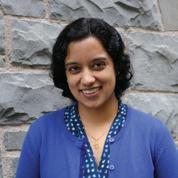
Professor OLABISI AKINKUGBE teaches Contracts and Judicial Rule-Making, International Trade Law, and International Investment Law (a new course which he introduced and taught for the first time at Schulich Law).
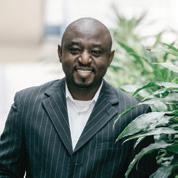
As the Viscount Bennett Professor of Law, he planned the second edition of the Viscount Bennett Roundtable on International Economic Law which was held virtually. This past year, he was elected to the Editorial Board of the American Journal of International Law, resumed as International Decision Section Editor of the American Journal of International Law and sits on the Executive Council of the American Society of International Law. He has recently joined the Board of Editors of the Canadian Yearbook of International Law, and currently Co-Chairs the 2023 Annual Conference of the Canadian Council of International Law. He continues to present in various academic conferences nationally and internationally while also matching them with his own publications.
Professor KIM BROOKS has loved serving as the editor of the Dalhousie Law Journal. Among other things, the law school has added two student courses connected to the Journal. One of those courses allows students who have written terrific papers in their second year to work toward publishing those papers in their third year. It’s fantastic to see students’ work in print!
While on sabbatical, Professor ALDO CHIRCOP authored Demystifying Maritime Governance: A Primer on the Governance of Shipping with a Focus on Canada (published by Clear Seas Centre for Responsible Marine Shipping, Vancouver, 2022 (open access)). He also co-edited with Professor Kristin Bartenstein, Université Laval, Shipping in Inuit Nunangat: Governance Challenges and Approaches in Canadian Arctic Waters (Brill, 2023) funded by a SSHRC project (open access). He co-edited volume 36 of the Ocean Yearbook.
Professor STEVE COUGHLAN did some unexpected consulting this year when he received an email out of the blue from the Canadian High Commission to Trinidad and Tobago. Looking to be in a position to offer help to the criminal justice system there, the High Commission contacted Steve about initiatives which had been taken in Canada to address trial delay. He prepared a report for them which, unfortunately, did not need to be delivered in person.
Professor ROB CURRIE was delighted to coach the Schulich Law Jessup moot team, who were Canada’s National Champions and made a good showing at the International Rounds in Washington, D.C. He also revived the Comparative Criminal Law course (previously taught by Professor Archibald) and he and an engaged group of students enjoyed learning about foreign and Indigenous criminal law, as well as European Union and comparative transnational criminal law. In March 2023, Professor Currie was appointed to the committee drafting the founding treaty for an international anti-corruption court.
New technological developments, such as AI, Blockchain, algorithms and cryptocurrencies are challenging legal norms like never before. Future lawyers will need to understand how these new technologies impact our traditional understanding of contract law, consumer protection, privacy, securities regulation and other issues.
Professor MICHAEL DETURBIDE, the current Purdy Crawford Chair in Business Law, and a founding member of the Law & Technology Institute at the Schulich School of Law, has created a new course, Digital Commerce, that focuses on these timely issues. The course was offered for the first time in the 2023 winter term.
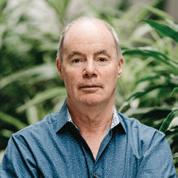


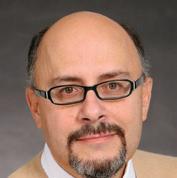
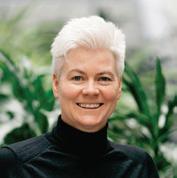
Professor RICHARD DEVLIN continues to get great joy out of teaching Contracts and Judicial Decision-Making, Aboriginal and Indigenous Law in Context, Introduction to Legal Ethics, and the Graduate Seminar on Legal Research Methodologies. In terms of scholarship, he co-published a paper that is a critical analysis of the Revised Ethical Principles for Judges. As part of his sabbatical project for January-June 2023 he focused on assessing the strengths and weaknesses of the new complaints and discipline process for federally appointed judges, as well as the complex issue of when, where and how judges can appropriately engage with the community.

Professor MARIA DUGAS taught Legal Research and Writing, Torts, Copyright Law, and co-taught the new mandatory first-year course, African Nova Scotian Legal History & Issues and Critical Race Theory, alongside Professors Michelle Williams and Melisa Marsman. She continues to present to various legal audiences on antiBlack racism in the criminal justice system, including many presentations for the National Judicial Institute. Her research is rooted in Critical Race Theory. Her current research projects include addressing anti-Black racism in child welfare, sport and sentencing.

Professor SUZIE DUNN teaches Law and Technology, Intellectual Property II, Contracts, and Legal Ethics. She has been working in collaboration with the Centre for International Governance Innovation and the International Development Research Centre on an examination of online harms which surveyed over 18,000 people across 18 countries, primarily in the Global South. She is also working on two multi-year research projects that examine technology-facilitated sexual violence funded by Research Nova Scotia and a SSHRC Insight Grant.
Professor MATTHEW DYLAG taught Torts and Property Law, as well as an introduction to law course to undergraduate students. His current research focuses on the impact of emerging technologies on the justice sector. This past year he published a theoretical piece on access to justice as well as an empirical piece examining how social media is being used to crowdsource legal advice. Most recently Dr. Dylag began a research project mapping the regulation of AI.
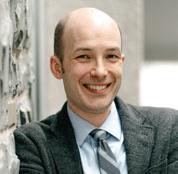
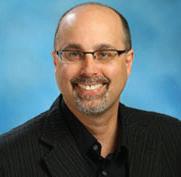

Professor ELAINE GIBSON is semi-retired. She still thoroughly enjoys teaching Torts, Medical Malpractice, and Public Health Law. This will be her last year of teaching before full retirement. After that, she will miss the shining faces of her students!
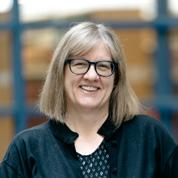
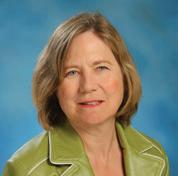
Professor DIANA GINN (currently half-time until her retirement in summer 2024) taught Law and Religion and Alternative Dispute Resolution; provided regular updates and revisions for the Nova Scotia Real Property Practice Manual; worked with Lisa Teryl on template procedural rules for administrative tribunals; assisted Kathleen McManus and Agnes MacNeil in organizing and presenting at the 2022 annual Crown Law Symposium. She is also writing a book chapter on Property Law and the Crown.
Professor MICHAEL HADSKIS was delighted to receive the 2022-2023 Hanna and Harold Barnett Award for Excellence in Teaching First Year Law in connection with his delivery of the mandatory Tort Law and Damage Compensation course and was honoured to have the privilege of teaching this course to such a bright, engaged, warm and good-humoured group of students. Michael also taught the upper-year Medical Malpractice course for the first time this year, which he thoroughly enjoyed.

In the fall of this year, Professor ADELINA IFTENE will co-teach a new course, Sentencing, with Justice Melvyn Green. It is the first time this course is being offered and it is an important addition to the school’s Criminal Justice program. Adelina co-authored the Annual Review of Criminal Law 2022 and became a co-editor of the Sentencing Casebook (Emond Publishing, 2023). She continues working on her SSHRC-funded projects on sentencing and conditions of release for sex offenders. In winter and summer 2023, Adelina was on maternity leave as she and her partner welcomed Felix, their new family member.
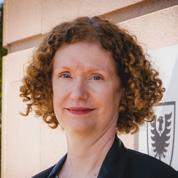


Professor COLIN JACKSON was thrilled to continue teaching a bright group of students in Tax and Commercial Law courses this year, including taking a very strong team to the Bowman National Tax Moot in Toronto. He also taught the Graduate Seminar in Legal Education and Legal Scholarship for the first time, and took on the role of Associate Dean, Graduate Studies after the tragic death of our beloved colleague, Meinhard Doelle.
Professor ARCHIE KAISER continues to offer his law school courses in Criminal Law, Criminal Procedure, Mental Disability Law: Civil and Criminal, as well as Legal Issues in Psychiatry in the Psychiatric Residency Program. He published articles on the SCC cases Tim and Bissonnette and will present a new class, Global Corruption, in the fall term. He still works with People First NS, a self-advocacy group for persons labelled with an intellectual disability.
MEGAN LONGLEY, K.C. finished her first full year as Dalhousie Legal Aid Service’s Executive Director. She is energized by the students and the opportunity to continue to work for systemic improvements to legal aid and access to justice. A highlight of the year was the opportunity to attend the Global Alliance for Justice Education conference in December, and present on changes in clinical legal education in the wake of COVID-19.
Professor CONSTANCE MACINTOSH had a delightful year. Policy projects involved advancing law reform on the implementation of UNDRIP in partnership with the Native Women’s Association of Canada, as well as expert appearances before senate committees concerning implementing Mi’kmaq fisheries rights. She was honoured to receive (with Sheila Wildeman) the Class of 1967 Teaching Award, to advance bringing a disability lens to the classroom, and oversaw two LLM students who completed their programs.
Professor Emeritus WAYNE MACKAY continues to provide legal commentary on a wide range of topics to all forms of media at local and national levels. These media appearances include his regular presentations as legal columnist for CBC Radio’s Information Morning in Halifax, as well as guest appearances on programs in Cape Breton and New Brunswick. He is also often an Anchor interview guest, on CTV News at Six. He was awarded the Queen Elizabeth II Platinum Jubilee Medal for his work in human rights and legal education in November 2022 at Government House. Later that month in Ottawa, he participated in and chaired a panel on Disinformation and Violent Extremism, as part of the Rouleau Commission on the Invocation of the Emergencies Act. MacKay also continues as an active member of the SSHRC-funded study of sexual violence on university campuses and as a board member of the International Commission of Jurists, as well as serving on the National Council of the Canadian Civil Liberties Association. He embraces a very active “retirement” by sharing his legal expertise with the broader community.
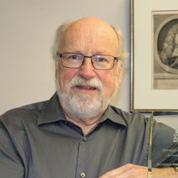
Professor ANDREW FLAVELLE MARTIN taught
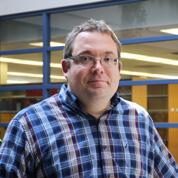
Fundamentals of Public Law and Advanced Legal Research in the winter term. He continues his long-term project on legal ethics for government lawyers and the Attorney General. This year he focused on the professional liability of government lawyers when their practices are underfunded. He was also delighted to give the J. Donald Mawhinney Lecture in Professional Ethics at the University of British Columbia. Most of all, he is grateful for his colleagues’ support during a challenging year.
This year, Professor SARA ROSS received the Dalhousie Belong Research Fellowship for her research into the contemporary cultural displacement of the Acadian populations in Atlantic Canada. On a national scale, as Vice President (Conferences) of the Canadian Law and Society Association, Dr. Ross also led the post-pandemic return to in-person conferences through the creation of their national conference in Toronto – an event that attracted over 100 legal scholars speaking on a diverse range of topics.
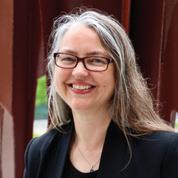

Professor SARA SECK developed and delivered virtual trainings on a human rights-based approach to plastic pollution on behalf of the United Nations Environment Programme’s Coordinating Body on the Seas of East Asia. In November, she and Killam post-doctoral fellow Tahnee Prior co-organized a hybrid workshop on the gender dimensions of plastic pollution in the Arctic. In May, she contributed to an international environmental law workshop at the Collège de France in Paris.
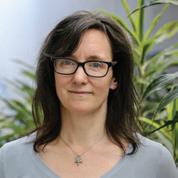
Professor Emeritus ROLLIE THOMPSON joined Epstein Cole LLP in November 2022, as counsel at Canada’s largest family firm. Another part-time gig, to add to writing, teaching judges and lawyers around the country, and editing the Canadian Family Law Quarterly and the Nova Scotia Civil Procedure Rules. He even taught some law school classes in family law and child protection law at Schulich Law and in family law at the University of Toronto.
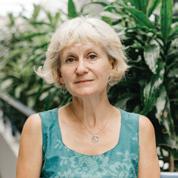

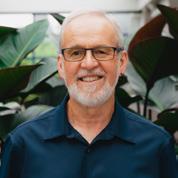
Professor DAVID VANDERZWAAG continued serving as the Director of the Marine & Environmental Law Institute and taught International Environmental Law. He co-edited a special issue of Arctic Review on Law and Politics which compared Canadian and Russian approaches and challenges in Arctic Ocean governance. In collaboration with Duke Law School and the Environmental Law Institute, he co-organized a workshop in Washington, D.C., “Transboundary Marine Species at Risk Recovery in a Changing Climate: Taking Stock of Canadian and U.S. Scientific and Governance Responses, Enhancing Future Cooperation”.
Professor SHEILA WILDEMAN taught Administrative Law, Poverty Law, and Imprisonment and Penal Policy. Highlights included Poverty Law at the Africville Museum with African Nova Scotian elders and other local experts, and Imprisonment Law at Nova Institution, again learning from lived experience expertise. As co-chair of East Coast Prison Justice Society, Sheila led a report on conditions in Nova Scotia jails as reported through a free jail line. In May, the Halifax Central Library featured videos, photo-portraiture and associated reflections of an action research collective Sheila has worked with for three years. The show was titled My Home, My Rights: Exploring Disability Rights, Imagining Disability Justice.
Professor MICHELLE WILLIAMS enjoyed co-teaching the new first-year immersive course on African Nova Scotian Legal History & Issues and Critical Race Theory (ANS/CRT), and continued working with African Nova Scotian communities across the province on the SSHRCfunded project to develop an African Nova Scotian Research Ethics Framework. She spoke at the National Black Canadian Summit, the International Black Health Conference and a law conference examining critical race theory through the lens of RDS.

1962
BRIAN FLEMMING has been awarded the Queen Elizabeth II Platinum Jubilee Medal by the Province of Nova Scotia.
1966
DON GREEN has published a book on golf instruction titled Golf for Fun, Golf for Life.
1970
MARTIN HERSCHORN was awarded the 2022 Commitment to Justice Award by the Public Prosecution Service of Canada.
1972
GREGORY WARNER retired from the Bench as a judge of the Supreme Court of Nova Scotia.
1974
FELIX CACCHIONE retired as the Director of Nova Scotia’s Serious Incident Response Team (SiRT).
ANNE MCLELLAN was awarded an honorary doctorate from the University of Ottawa.
1975
LAWRENCE “LAURIE” PASCOE had his book Innovative Legal Service Applications: A Guide to Improved Client Services published by the American Bar Association’s Solo, Small Firm, and General Practice Division. The book provides lawyers in all stages of their careers with theories and numerous applications to improve client services in all practice areas.
1982
PAUL SCOVIL retired as a judge of the Provincial Court of Nova Scotia.
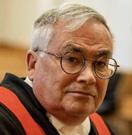
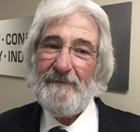
1983
DEL ATWOOD retired as a judge of the Provincial Court of Nova Scotia.


1984
WILLIAM MACNEIL, FAAL has accepted an Honorary Professorship at the T.C. Beirne School of Law, The University of Queensland, Brisbane, Australia,







where he teaches in the LLB programme. He remains an Adjunct of the Law Discipline, Southern Cross University, having completed his tenure there as Dean of Law and The Honourable John Dowd Chair (2016-2021). He is also an Adjunct of the College of Law & Justice, Victoria University, Melbourne and has recently been made a Fellow of the Law and Theory Laboratory of the University of Westminster, London, England.
CHRISTOPHER MANNING retired as a judge of the Provincial Court of Nova Scotia.

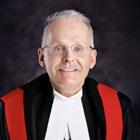
1985
IAN HOLLOWAY received an honorary doctorate from the Law Society of Ontario.
KAREN KINLEY was appointed King’s Counsel.
KAREN OLDFIELD received an honorary degree from Saint Mary’s University.

1988
CHARLENE RIPLEY was appointed Senior Vice President and General Counsel of Teck Resources Limited.

RORY ROGERS was inducted as a Fellow of the American College of Trial Lawyers (ACTL). He is a partner at Stewart McKelvey.
1989
GRANT BORBRIDGE was elected a director of Hockey Canada’s Board of Directors.
JAMES GORMLEY was appointed Chief Justice of the Court of Appeal of Prince Edward Island.
NATHALIE GOYETTE was appointed a judge of the Federal Court of Appeal of the Province of Quebec.
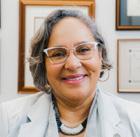
1990
NICOLA EDMUNDSON was appointed a judge of the Superior Court of Justice of Ontario, Family Court.
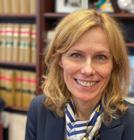


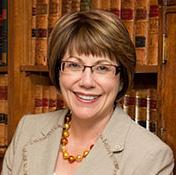
ELIZABETH MREMA was recognized by TIME Magazine as one of The 100 Most Influential People of 2023. She is the United Nations (UN) Environment Programme’s Deputy Executive Director.
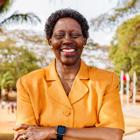
STEPHEN MCGRATH was appointed King’s Counsel.
TIM CAULFIELD was named a member of the Order of Canada on December 29, 2022. He is a Canada Research Chair in Health Law and Policy, a professor in the Faculty of Law and the School of Public Health, and Research Director of the Health Law Institute at the University of Alberta.

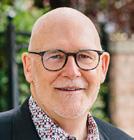
MATTHEW CERTOSIMO was awarded the 2022 OBA Randall Echlin Award for Excellence in Labour and Employment Law.
CARLA SWANSBURG was named one of the Top 25 Most Influential Lawyers 2022 by Canadian Lawyer.

J. PHILIP LEEFE was appointed King’s Counsel.
SHAWNA PARIS-HOYTE was awarded the 2022 Distinguished Service Award by the Nova Scotia Barristers’ Society and the Queen Elizabeth II Platinum Jubilee Medal by the Province of Nova Scotia.
ALONZO WRIGHT was appointed the Director of Nova Scotia’s Serious Incident Response Team (SiRT).
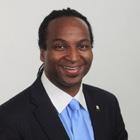
BRAD SARSON was appointed a judge of the Provincial Court of Nova Scotia.
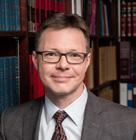


SHEREE CONLON was appointed to the Executive Committee of The Advocates’ Society which serves as the voice of advocates within the justice system in Canada.
DEANNE MACLEOD was appointed King’s Counsel.
JANICE MALONEY was appointed King’s Counsel.
KELLY SERBU was appointed a judge of the Provincial Court of Nova Scotia.

LLOYD STRICKLAND was appointed a judge of the Provincial Court of Newfoundland and Labrador.
1997
JENNIFER MERCER was appointed Associate Chief Judge of the Provincial Court of Newfoundland and Labrador.


1998
ROB CURRIE was appointed King’s Counsel.
ERIC ‘RICK’ WOODBURN was appointed King’s Counsel.
1999
CATHERINE PICHÉ was appointed a judge of the Superior Court of Quebec. She is a former professor of law and Vice-Dean of the Law Faculty of the Université de Montréal.

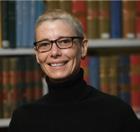
WILFRED SMITH was appointed King’s Counsel.
2000
SARAH CAMPBELL was appointed King’s Counsel.
2001
CHRISTINE BRENNAN has been appointed Ombudsman for a five-year term with the Province of Nova Scotia.
2002
ANDREW WADDEN was appointed a judge of the Provincial Court of Newfoundland and Labrador.

2003
JILL HARTLEN was appointed a judge of the Provincial Court of Nova Scotia.
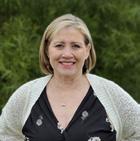
2004
DAHLIA BATEMAN has been appointed General Counsel at Wilfred Laurier University and is the Lead for the Office of Legal Services and Fair Practices.

ELAINE CRAIG received an honorary Doctor of Laws degree from the Law Society of Ontario.
DAVID EBY was sworn in as the 37th Premier of the Province of British Columbia.

2005
JASON COOKE was appointed King’s Counsel.

2006
JONATHAN COADY was appointed a judge of the Supreme Court of Prince Edward Island.

MELANIE PETRUNIA was appointed President of the Nova Scotia Barristers’ Society.



2007
BRYNA HATT was appointed a judge of the Provincial Court of Nova Scotia.
2008
JARVIS GOOGOO received the Queen Elizabeth II Platinum Jubilee Medal for his work in sharing and promoting Mi’kmaw Education, Peace and Friendship, and Truth and Reconciliation.

MARK WATTON has been designated Lead Commissioner of the Canada Energy Regulator for a term of six years.




2009
BRONWYN DUFFY was appointed a judge of the Provincial Court of Nova Scotia.
2010
JILLIAN BARRINGTON was appointed a judge of the Provincial Court of Nova Scotia.
2014
DANTE MANA is now a partner with Stewart McKelvey’s Halifax office.
CHRISTENA MCISAAC is now a partner with Stewart McKelvey’s Halifax office.

2015
NICK CONLON has been named partner at W Law LLP in Saskatoon. He specializes in litigation involving construction disputes and commercial contracts.



2016
MARC NJOH was presented the 2022 Humanitarian Award by the Public Prosecution Service of Canada.
2017
AKINWUMI OGUNRANTI is joining the University of Manitoba Faculty of Law as a tenure-track Assistant Professor.
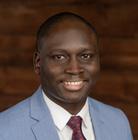


ANGELA SIMMONDS was appointed Senior Advisor, Diversity, Equity & Inclusion (DEI) at McInnes Cooper. In addition to this role, Angela will continue to provide DEI consulting services to her personal clients. She is a consultant, speaker, educator and lawyer. Previously, she was a member and deputy speaker of the Nova Scotia legislative assembly.
2018
MEAGHAN KELLS is an associate with Cox & Palmer.
ADEBAYO MAJEKOLAGBE will join the University of Alberta’s Faculty of Law as an assistant professor. He currently serves as a sessional instructor, teaching climate change law. He was also named a recipient of the 2023 Dalhousie Doctoral Thesis Awards for his dissertation on ecological issues.
2019
IMOGEN PHIPPS-BURTON is an associate with Farrow Hicks McDade Law Inc.




2020
DESIREE JONES-MATTHIAS is legal counsel with the African Nova Scotian Justice Institute.
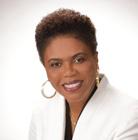
KATHRYN O’NEIL is an associate with Patterson Law.

LAUREN VOGEL is practicing with Valent Legal Injury Lawyers.
2021
RACHEL ABI DAOUD is an associate with Stewart McKelvey.

FOLU ADESANYA is an associate with Stewart McKelvey.

JENNIFER ANDERSON is an associate with Kennedy Schofield Lutz Lawyers.
BRANDON BAKER is an associate with MacGillivray Injury & Insurance Law.











NICHOLAS BARTOLACCI is an associate with McInnes Cooper.
ABEL BEGASHAW is an associate with Cox & Palmer.

EYOAB BEGASHAW is an associate with Stewart McKelvey.
DAKOTA BERNARD is an associate with Pink Larkin.
WILL BRIEN is an associate with Cox & Palmer.
HANNAH BRISON is an associate with Stewart McKelvey.

ANTHONY BUCKLAND is an associate with Beaton Blaikie.
PARKER BYRNE is an associate with Creighton Shatford.
CHRISTINA CLEROUX is an associate with MacGillivray Injury & Insurance Law.












DAVID COLLINS is an associate with BOYNECLARKE LLP

BEN CURRIE is an associate with Stewart McKelvey.
ELIZABETH DICKSON is legal counsel with Sobeys Capital Inc.
MADY GILLESPIE is practicing with Patterson Law.
ANDRÉ GOGUEN is practicing with Burchell Wickwire Bryson.
JONATHAN GOUD is practicing with Patterson Law.
EMMA GOULDEN is practicing with BOYNECLARKE LLP.

ISAAC GRAY is practicing with Barteaux Labour & Employment Lawyers Inc.
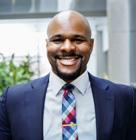



SARAH GRAY is an associate with Cox & Palmer.
KALLEN HEENAN is practicing with NOVA Injury Law.
KATHRYN HILL is counsel with the Nova Scotia Department of Justice.
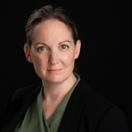
SHANE ISLER is legal counsel with Justice Canada.


COURTNEY JUKES is practicing with Preszler Injury Lawyers.
ERIN KENNEDY is practicing with Wagners.
ZIAD LAWEN is an associate with Walker, Dunlop.

JUSTYNE LESLIE is practicing with Valent Legal Injury Lawyers.



GRACE LEVY is an associate with Pink Larkin.
EMILY MACDONALD is practicing with Patterson Law.
NATALIE MACDOUGALL is practicing with McInnes Cooper.
HALEY MACLEAN is an associate with Voyer Law.

CHRISTOPHER MALLARD is an associate with MacGillivray Injury & Insurance Law.
ANDREW MARSHALL is an associate with Taylor MacLellan Cochrane.
YAZAN MATARIEH is practicing with McInnes Cooper.
MORGAN MCALONEY is an associate with Nathanson Seaman Watts.
CAITLIN MENCZEL is practicing with the Nova Scotia Department of Justice.
HARTWELL MILLETT is a crown attorney with the Nova Scotia Public Prosecution Service.
ELLA MURPHY is an associate with Cox & Palmer.
ALEX MUSCAT is an associate with Cox & Palmer.
CRAIG PAUL is a staff lawyer with Kwilmu’kw Maw-Klusuaqn Negotiation Office.

RACHEL PETCOFF is practicing with Nova Scotia Power as Regulatory Counsel.



NICHOLAS POIRIER is an associate with Cox & Palmer.

ANDREA RASMUSSEN is an associate with BOYNECLARKE LLP.


MARIA RIZZETTO is an associate with Lorway MacEachern McLeod Burke.


LEAH ROBERTSON is an associate with Cox & Palmer.

STEPHANIE ROBINSON is an associate with Pink Larkin.
MARKO SIMMONDS is an associate with Mackillop Pictou Law Group.


JOHN STEPHENSON is an associate with Crosby Law Group.
ELIZABETH TAYLOR is an associate with BOYNECLARKE LLP.
SOPHIA TRINACTY is a law clerk with the Nova Scotia Supreme Court.
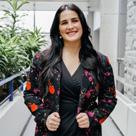

DANIELLE WINTER is practicing with McInnes Cooper.
PAYTON WOOD is practicing with McInnes Cooper.
SHANIEKA WOOD is an associate with Stewart McKelvey.
HILLARD GRAHAM BATT, K.C.
(’47) died on September 17, 2022, at the age of 98. He attended Prince of Wales College in Prince Edward Island and Dalhousie University where he obtained his Bachelor of Arts and Law degrees. He then studied at the London School of Economics on an IODE scholarship where he earned a Master of Laws degree in 1950. When Graham returned to Canada, he taught law at Dalhousie for a short time before working in the law department of Imperial Oil Ltd. in Calgary. In 1957, Graham was transferred to their head office in Toronto. He was appointed Queen’s Counsel in 1972. He retired from Imperial Oil in 1985 from the position of Associate General Counsel. Graham enjoyed music, loved books and was an avid reader. He was quiet and reserved, always kind and generous-hearted towards his family.
FREDERIC SHAW MARTIN
(’47) died on October 8, 2022, at the age of 101. He graduated from Prince of Wales College in Prince Edward Island in 1943 and then earned his law degree at Dalhousie University. He was a devoted business leader in wealth management, ending a long and lucrative 66-year career as a Vice President with the Royal Bank of Canada. He had numerous volunteer positions including time spent serving as the Chairman and on the Finance Committee of the Victorian Order of Nurses; Life Governor of Ashbury College; Board of Trustees and Governor of the Confederation Centre of the Arts; Governor of the Children’s Hospital Foundation of Eastern Ontario; Trustee for Legal Research in Canada for the Forum for Young Canadians; Member of the Order of Canada; Commander
Order of Merit, Republic of Italy; Vice-Chancellor and Secretary General of the Military and Hospitaller Order of Saint Lazarus of Jerusalem; Saint Andrews Society of Ottawa; Anglican. He was an avid skier, golfer, and fisherman with an immeasurable love for people and a boundless joy of life and living. He believed volunteering time to help local organizations was crucial to building a strong community and that if you lived in the community, then you had a duty to make a contribution.
MURRAY J. “RICK” RYAN, K.C. (’48) died on September 18, 2022, at the age of 103. He attended St. Francis Xavier University, earning a Bachelor of Arts Degree in 1944. Upon graduation, he entered active service in the Royal Canadian Navy serving on the Corvette HMCS Pictou, doing convoy duty in the North Atlantic. At the end of World War II, he entered Dalhousie Law School and graduated with his degree in 1948. After completing his articling, he opened a law office in North Sydney, N.S. During Rick’s long legal career, he developed a reputation as an exceptional legal mind of great integrity and was highly respected by his clients, community and fellow legal colleagues. In 1971, he was appointed Queen’s Counsel. He also served for many years as the Solicitor for the Town of North Sydney and the Town of Sydney Mines, as a Federal Crown Prosecutor, as well as sitting on many local boards and organizations. As a Veteran of WWII, he was a lifelong member of Branch 19, Royal Canadian Legion, North Sydney, where he served as President from 1954-1955. He was also a lifetime member of
the Fr. William Kiely Council of the Knights of Columbus North Sydney, a member of the Rotary Club of North Sydney, of which he was President in 1972-1973, member of the Board of Directors of St. Elizabeth Hospital in North Sydney and President of the Cape Breton Barristers’ Society. In 1982, Rick was appointed as a judge of the County Court of Nova Scotia and in 1993, he was appointed as a Justice of the Supreme Court of Nova Scotia where he served until his retirement at age 75. In his younger years, Rick was always very active in sports; he was a member of the varsity X-Men team that won the Atlantic Intercollegiate Hockey Championship in 1941 and was a founding member of the Seaview Golf Club in the 1950s. Rick’s summer passion was surpassed only by his love for curling in the winter. A member of the North Sydney Curling Club, Rick and his curling partners were well known for curling a mean game on the ice and won many tournaments over the years.
ROBERT HUNTER LYALL (’50) died on June 19, 2022, at the age of 95. He attended Dalhousie University and obtained degrees in commerce and law, digging ditches in the summer to cover tuition. Then, he moved to Toronto to start a career with the Canada Life Assurance Company. At first a lawyer, he eventually became the Director of Agency Life. Outside work, he focused on his family and loved his garden, deck and pool. He cultivated lifelong friends and neighbours. He actively followed political news, and especially enjoyed a well-told novel. Bob followed sports, especially his favourite Toronto teams. He was there when the Blue Jays won their
pennant, and never stopped hoping for the Maple Leafs. As the family photographer, he built and captioned a richly cherished picture archive, spanning the events of 60 years. In everything he did, Bob exemplified a quiet, unwavering dignity and selfpossession.
PAUL LEE (’51) died on July 27, 2022. He practiced law diligently while flying, fishing, hunting, sailing, skiing and becoming the Over 85 Canadian Singles Tennis Champion.
GEORGE YATES, Q.C. (’51) died on August 3, 2022. After wartime service and accelerated undergraduate university studies, he obtained his law degree from Dalhousie. During that time, he met and married his wife of 30 years, Eileen MacLean Yates, K.C. (’48), then the Secretary-Treasurer of the Nova Scotia Barristers’ Society. Called to the Bars of Nova Scotia, Alberta and Ontario, he practiced for many years with his wife in the Hamilton-based firm, Yates and Yates. A Queen’s Counsel and former Progressive Conservative Party parliamentary candidate, he was appointed to the Bench in 1987 as a Justice of the High Court of Justice and, subsequently, the Ontario Court of Justice, General Division (1990−1999) and the Superior Court of Justice (1999−2000). Always proud of his Cape Breton roots, he established the Honourable George Yates Scholarship Fund at Cape Breton University, from which he received an honorary doctorate.
HERBERT “BERT” WYMAN (’53) died on December 23, 2022, following a lengthy battle with dementia. His formative years were significantly influenced by the Great Depression and
the Second World War, which taught him to be generous to the less fortunate and to serve his community. These early life influences also help explain why Bert loved a bologna sandwich, sardines with vinegar and molasses on white bread for dessert, well into his adult life. Bert obtained his commerce degree from Queen’s University and then his law degree from Dalhousie. During his university years, Bert was in the COTC Royal Canadian Artillery and spent his summers in Ontario and Manitoba. After university, he continued to serve in the militia with the Southern Alberta Light Horse, a reserve armoured unit based in Calgary. He achieved the rank of Major when he resigned to focus on his growing family and his legal career. Bert articled in Calgary with the law firm Nolan, Chambers, Might, Saucier, Peacock and Jones (now Bennett Jones LLP) and was a significant contributor to the firm’s success and expansion during his more than 50 years there. He was a successful corporate lawyer, a great mentor to younger colleagues and found ways to take the edge off the stress of work with his legendary sense of humour. As part of his commitment to his profession, he served as President of the Alberta Chapter of the Canadian Bar Association and participated in many of its events. He provided pro bono legal counsel to the Chinook Scouts for many years and was on the board of the Nat Christie Foundation which offered scholarships to Canadian university students. In recognition of his volunteer contributions, Bert was awarded the Queen Elizabeth II Golden Jubilee Medal in 2002.
RITCHIE CHIPMAN, K.C. (’53) died on April 23, 2023. He obtained his arts and law degrees at Dalhousie University and was awarded the Smith Shield for proficiency in the law school moot court. He received a number of academic awards, including the University Medal in Law for the highest standing in the Law Class of 1953. Following graduation, David articled with C.W. Burchell, K.C. and H.P. MacKeen, K.C. and then practiced with Stewart McKelvey and its predecessor firms until his appointment to the Appeal Division of the Supreme Court of Nova Scotia (later Nova Scotia Court of Appeal). His elevation to the Bench represented the fifth generation of Ritchie family judges. He sat on the Court for nearly 18 years until his mandatory retirement at the age of 75. He served on the Executive Committee of the Canadian Judges Conference and chaired the Independence of the Judiciary Committee for several years. As a lawyer, David specialized in civil litigation and appeared regularly before Nova Scotia courts and tribunals and on numerous occasions before the Supreme Court of Canada. He was appointed Queen’s Counsel in 1968. He was a Fellow of the American College of Trial Lawyers, the International Society of Barristers and the International Academy of Trial Lawyers and a member of the Federation of Insurance Counsel. He was a member of the Canadian Bar Association Special Committee on the Independence of the Judiciary in Canada. He was a Life Fellow of the Foundation for Legal Research. He loved practicing law and being a judge and was a raconteur who revelled in trading old war stories with other lawyers and judges. He was a member of the Nova Scotia Barristers’ Society’s Council and served on numerous committees.
David was elected President of the Society in 1982. He was chosen Honorary President of the Society in 2006. David was active in the community, serving as a member of the Board of Directors of the IWK Hospital, Chairman of the Halifax School Board, a member of the Halifax Infirmary and Chairman of the Committee of Consultation and Advice of the Cathedral Church of All Saints. Prior to his appointment to the Bench, he served the Progressive Conservative Party in numerous capacities, from poll worker in elections to Director of the PC Canada Fund. In 1992 he received the Commemorative Medal for the 125th Anniversary of Confederation, the Queen’s Golden Jubilee Medal in 2002 and the Queen’s Diamond Jubilee Medal in 2012. David volunteered with the Nova Scotia Barristers’ Society, presiding at moot court trials and appearing as a guest lecturer at Dalhousie Law School, well into his 80s. He took up duplicate bridge after retirement, became a Life Master at age 80 and ultimately reached the rank of Silver Life Master.
WILLIAM “MARSHALL” BLACK
(’53) died on July 25, 2022. He graduated from the University of Kings College with his arts degree and then Dalhousie University with his law degree. After practicing law in Kentville, N.S., he was appointed Judge of the Juvenile Court of Nova Scotia in 1961 and was Chief Judge of the Family Court of Nova Scotia from 1984-1994. Marshall was a member of St. John’s Anglican Church, Parish of Cornwallis and served as Warden. He was past President of the Kentville Board of the VON and enjoyed a lifetime interest in Scouting serving as Scout Master in Kentville and other positions provincially. He was honoured for 70 years of membership by Kentville Lodge
No. 58. He was also a member of various other Concordant bodies of Masonry. He served as Most Puissant Grand Master, Eastern Jurisdiction of Canada (1978-1979) and Supreme Grand Master of Canada (1994-1996) of the Knight Templars.
DUNCAN CAMERON FRASER
(’54) died on August 21, 2022. Duncan attended McGill University where he graduated with his arts degree. When his father was appointed Lieutenant Governor of Nova Scotia, Duncan moved with his family to Halifax and attended Dalhousie University, earning his law degree. A well-respected lawyer within the community, he was also an ‘avid indoorsman’. Duncan enjoyed CBC Radio, reading and keeping up to date on Canadian politics, having been a member of the Liberal Party for many years.
IAN CHRISTIE MCDERMAID
(’54) died on September 13, 2022. After obtaining his law degree from Dalhousie University, Ian pursued a career in insurance. He was a past President of the Children’s Aid Society of Halifax and the Epilepsy Association of Nova Scotia.
ALEXANDER KENNETH “KEN”
MACLAREN (’55) died on October 13, 2022. Ken was keenly interested in history, politics, the economy and progressive social issues. He was forever learning, debating and contributing. Whether listening to CBC Radio, reading his daily stack of newspapers, writing letters to the editor or engaging in discussions, he was ever hopeful that the world’s problems could be solved. He was fortunate to combine these interests with his law studies at Dalhousie University, as a lawyer in Ottawa, and later as a lobbyist supporting the Canadian Trucking Association.
BENJAMIN WALTER DOLISZNY, Q.C. (’55) died on January 30, 2022, in his 99th year. As a six-year-old, Ben crossed the Atlantic from his native Ukraine as an unaccompanied minor, to become a denizen of one of Toronto’s immigrant neighbourhoods. Upon discharge from the Royal Canadian Army in 1946, Ben enrolled in law at the University of Toronto where his interest in academics took a backseat to his love of football. He later enrolled at Queen’s University and then Dalhousie University where he successfully completed his law degree. After being called to the Bar in both Nova Scotia and Ontario he moved to St. Catharines, where he practiced law for 36 years. He was appointed Queen’s Counsel in 1973 and later sat on the Bench in Small Claims Court. He worked tirelessly for the Ukrainian community and for his many contributions, he was awarded the Shevchenko Medal, the highest form of recognition granted by the Ukrainian Canadian Congress. Ben also received the Ontario Medal for Good Citizenship in 1979 and the Queen’s Jubilee Medal in 2003. He was a natural athlete, playing baseball, basketball, hockey and football, as well as squash, competitive handball, golf and dancing. When his playing days ended, he enjoyed watching any and all televised sporting events, especially CFL football.
DAVID ROBERT VINE, K.C. (’55) died on February 7, 2023. David served with several regiments as a young man, but his loyalty remained with the Queen’s Own Rifles of Canada where he attained the rank of Major. He attended the University of New Brunswick and then Dalhousie University where he obtained his law degree. After graduation,
he practiced law in Toronto for nearly 60 years and was appointed Queen’s Counsel early in his career. He was a long-time member of the Toronto Board of Trade Club, gladly picking up the mic to host many club events. Always a handyman, he completed many renovations, was capable of fixing most things and could figure out just about any construction problem.
JOHN DAVISON MOORE, Q.C. (’55) died on July 18, 2022. He attended Dalhousie, earning commerce and law degrees. He was also a naval cadet for three years. John was a retired partner from Stewart McKelvey where he practiced law for over 50 years and was a managing partner in the firm. John was appointed Queen’s Counsel in 1972. He was a past President of the Nova Scotia Barristers’ Society and the Halifax Club, and a past Commodore of the St. Margaret Sailing Club. He enjoyed boating in St. Margaret’s Bay from the family cottage, golfing at Ashburn Golf Club and was an active participant in duplicate bridge. For over 40 years, a highlight of every summer was the annual golf tournament with members of ‘The St. Margaret Closed Golf Group’.
ALAN ROSS COLLINS (’57) died on January 7, 2023, at the age of 91. Alan was always industrious, with a paper route after school, managing the newspaper ‘shack’ as he grew older and selling Fuller brushes in his university days. Alan served summers in the Naval Reserves while completing his law degree at Dalhousie University, articled in Calgary, and otherwise lived in Edmonton until his retirement at age 75. He practiced law for almost 50 years, mostly as a sole practitioner. Alan was famous for cycling between his south-side home, office downtown and the law courts in
all weather. Ever the advocate, he assisted a young friend in resolving a personal injury claim mere weeks before his death. Alan’s chief avocation was gardening. As a young man, he was an accomplished pianist and had an appreciation for art, music, science, economics and history. He kept in touch with friends and extended family throughout his life the old-fashioned way: by typing letters on his electric typewriter.
(’58) died on July 2, 2022. After obtaining his law degree at Dalhousie he opened a private practice with Dave Waterbury in Kentville, N.S. He went on to become General Counsel at Irving Oil, then Genstar Corporation. Later he owned a small financial service business in Amsterdam and an olive farm in the south of France. Jim was an enthusiastic golfer, sailor, runner and avid skier with his own unique style which earned him the moniker ‘The Teenager’.
RICHARD ANTHONY WEDGE
(’59) died on October 14, 2022. He attended St. Dunstan’s University (now UPEI) in Charlottetown, graduating in 1955. He received his commission as a Sub-Lieutenant in the Royal Canadian Navy and served on active duty for a year, leaving to attend Dalhousie University to obtain his law degree. After practicing law in Nova Scotia and then in Ottawa with the Department of Justice, he joined the legal department of Air Canada in Montreal in 1966. He rose to the executive ranks and was instrumental in establishing Air Canada air routes into the People’s Republic of China and Eastern Europe in the 1970s. Upon retirement, he became an air carrier consultant in Canada and the USA.
(’59) died on May 5, 2022.
Walter grew up in Ottawa, played football for his high school and modelled for Simpsons. He went lower deck Navy and then onto Queen’s University where he played football, and later attended Dalhousie University for his law degree. At the end of his first year, Walter enrolled as an Officer Cadet in the Royal Canadian Navy Reserve. After law school graduation and as a newly commissioned Sublieutenant, he became part of JAG. Walter travelled the world representing Canada in Bosnia, Kuala Lumpur, the United States and Australia. He attained the rank of Captain, was Colonel Commandant of JAG branch and Senior Reserve Legal Advisor in Canada. Walter loved law school, the arguments on law, the debates and the interactions with professors. After graduation, he served for many years as a lecturer in procedure. He articled with a firm that eventually became Cox, Downey and Goodfellow. Walter served his profession and society. He was President of the Nova Scotia Barristers’ Society and judged the Gale Cup Moot court competition at Osgoode Hall for 25 years. He was a Director of the John Howard Society and Chair of the Canadian Paraplegic Association. When he took an appointment to the Supreme Court in Nova Scotia his approach did not change. He spent as much time as he could at his cottage on Piggott Lake and devoted hours tending to his garden and chopping down trees on his wood lot to burn in the colder months. It was here the pressures of practice and the judging of trials was put aside.
(’59) died on March 6, 2023. She attended the University of King’s College and then
Dalhousie University to earn her law degree. She articled with the law firm that is now the Vancouver office of Norton Rose Fulbright LLP. She practiced law in Salmon Arm, B.C., and then P.E.I., focusing mostly on real estate law. Elizabeth was one of the first women to be a practicing lawyer on the Island and became very involved in family mediation, beginning her work as a trained mediator in 1988. Some called her the ‘Mother of Mediation’ in P.E.I. for her pioneering efforts in the field. She chaired the P.E.I. Review Board from 1988-2012, and she was appointed Queen’s Counsel in 1999. In response to her mother’s late-life dementia, Elizabeth became active in the P.E.I. Alzheimer’s Society and supported the development of elder mediation on P.E.I. In 2010 she received a leadership award during the Third World Summit and Symposium on Elder Care in Chicago and was on the founding board of ‘Pat and the Elephant’, which offers transportation to people in wheelchairs, and which Elizabeth herself was able to use in her later days. She practiced law and mediation until she was almost 80.
KENNETH ROSS MACDONALD
(’60) died on August 22, 2022. Kenneth graduated with a commerce degree from Mount Allison University in 1957 and then his law degree from Dalhousie University. He joined the law firm of Bell & Foster (later known as Foster, MacDonald, Carruthers) where he remained until he was appointed a Justice of the Supreme Court of P.E.I. in 1977. He was appointed Chief Justice of the Trial Division in 1987. He volunteered with many organizations throughout his life: Trinity United Church, P.E.I. Garden Club, Friends of the Farm, Charlottetown Curling Club, Charlottetown Minor Hockey
Association, Law Society of P.E.I., Canadian Bar Association, Canadian Judicial Council and was Chairman of the UPEI Board of Governors. He was a curler who represented P.E.I. in five Briers and one Mixed National Championship. He was inducted into the P.E.I. Curling Hall of Fame in 2011. In 2012, he received a City of Charlottetown Mayor’s Citizen Recognition award for his dedication to the P.E.I. Garden Club, for his commitment to creating beautiful gardens in the city and for sharing his gardening knowledge with the community.
FRANCIS ARTHUR COADY
(’60) died on July 6, 2022. He attended Dalhousie University where he obtained his commerce and law degrees then went on to practice law in Calgary for 30 years. In 1989 he moved to the Bahamas and over the years occupied numerous positions including Managing Director and Vice President of TK Shipping Corporation, President and Director of TK Foundation, Managing Director of TK Trust Company, Director and Consultant of Concord Equity Inc., Managing Director of Kattegat Trust Company, Chairman and Managing Director of Oceanic Bank and Trust Limited, Director of the Bahamas Maritime Authority and Chairman and Director of the Bahamas Maritime Training Institute.
JOHN GREGORY MROZ, K.C.
(’65) died on March 4, 2023. John earned his arts degree from St. Francis Xavier University and then his law degree from Dalhousie University. He was appointed Queen’s Counsel in 1982. After a successful 23-year career with Central Guarantee Trust in Halifax, he moved to New Minas, N.S., where he provided professional services to Parson Investments until his retirement. John was also passionate about
volunteer work and was active with many organizations including Kin Canada (Kinsmen), Canadian Mental Health Association, The Flower Cart and Kings Pointto-Point Transit Society. He will be also remembered for his involvement with the Liberal Party of Nova Scotia. He always followed the latest political news on CNN and loved discussing politics and other current events with anyone who would listen. Known for his green thumb and keeping everything looking its best around the home, John will also be remembered for his keen sense of humour. He had an infectious laugh that could often be heard throughout the house and was always quick with a joke or a witty remark. Whether it was at the family cottage in East Petpeswick, on the Mira River, or in any room of the house, John could also be found entertaining the crowd with his accordion.
(’65) died on January 13, 2023. Gordon graduated from Dalhousie University with an arts and then a law degree. He worked in the Attorney General’s Department as Director of Criminal Law for a time and as a staff lawyer until his retirement. Gordon enjoyed looking at car books, especially vintage cars, reading and travel.
HERRNDORF (’65) died on February 18, 2023. Born in Amsterdam, he arrived in Winnipeg at the age of eight, and his extraordinary career sprang from an unshakeable love of his adopted country. As he grew, he learned about Canada by reading Canadian books, listening to CBC Radio and singing Canadian songs in choirs. Although he graduated from both Dalhousie University with his law degree and Harvard Business School with an MBA, he was attracted to journalism, where his quest for telling stories
began. After working briefly as a reporter for the Brandon Sun, he started at CBC, eventually rising to become Vice President of English Services during one of its most successful eras. During his tenure, he developed programs like ‘The Fifth Estate’ and moved ‘The National’ to 10 p.m., pairing it with the highly acclaimed public affairs program ‘The Journal’. He believed passionately in public broadcasting. As a leader, he enabled talent and ideas to flourish – a gift he would share throughout his professional life, including at Toronto Life as publisher, at TVOntario as Chairman and CEO, and then, for nearly 19 years, as President and CEO of the National Arts Centre (NAC). Some of his proudest achievements were the establishment of the NAC Foundation, the creation of the Indigenous Theatre, the magnificent architectural rejuvenation of the NAC building on the Rideau Canal and the National Creation Fund. Unfailingly generous, Peter served on more than 60 boards. He co-founded the Governor General’s Performing Arts Awards. Most recently he was the highly engaged Chair of Luminato, Toronto’s International Festival of Arts and Ideas. His awards and honours include 10 honorary degrees. In 2017, he was promoted to Companion of the Order of Canada, the highest level, for his outstanding service to the country. He was known for his endless lists, his birthday serenades, his booming laugh, his multiple Rolodexes and his annual Christmas cards. Somewhere, he found time to devour books, inhale politics and watch and read about his many favourite sports.
ROBERT NORMAN GILMORE
(’67) died on October 22, 2022, at the age of 82.
WILLIAM FRANCIS MEEHAN
(’67) died on November 8, 2022. A former officer in the Royal Canadian Navy, Bill studied business at St. Francis Xavier University and then law at Dalhousie University. He practiced law in Antigonish, N.S., from 1969 until the time of his death, earning a longstanding reputation for fairness, professionalism and kindness. He was an active member of St. Ninian’s Parish, the Knights of Columbus and, in recent years, the Celtic Music Interpretative Centre, where he served on the board. His greatest passions in life were his family, his faith, the practice of law, travel and Celtic music.
DENNIS MELVIN STARZYNSKI
(’67) died on May 18, 2022. After obtaining his law degree at Dalhousie University, he practiced law for 50 years in Markham and helped countless family, friends and strangers with his wise counsel and practical advice. Dennis travelled the world extensively but for the last 33 years enjoyed spending as much time as possible at the cottage. He maintained his sense of humour right to the end, politely reminding the nurses he ordered a scotch when they brought him apple juice.
RONALD ANGUS “RONNIE
DD” MACDONALD (’69) died on November 11, 2022. He graduated Summa Cum Laude from St. Francis Xavier University in 1960 and while there was the Editor of the Xavieran and proud member of the Parliamentary club with former Prime Minister Brian Mulroney. He then went on to graduate with his law degree from Dalhousie University. He was appointed to the Bench of the Provincial Court in 1982. He was
a champion track athlete, studied classical piano since the age of three, participated in numerous choirs, including St. Ninian’s Cathedral, played baseball with the Jurymen, had a very soft spot for family pets, was an active member of the Antigonish Highland Society and recited the full ‘Ode to the Haggis’ in his best Scottish dialect. He was known for his love of the performing arts both as a patron and on stage in many performances at Theatre Antigonish. The cat can now be let out of the bag that Ronnie was the secret writer for The Casket newspaper under the guise of ‘Angus Alex Rory’, writing fictional stories of the people of Antigonish, sprinkling in his wealth of genealogy knowledge.
JOHN A. YOUNG (’69) died on August 31, 2022. While studying at Dalhousie he was the President of the Dalhousie Student Union. In this capacity, he spearheaded the campaign for a new student union building and was involved in the first attempts to establish a legal aid system for Nova Scotia. After graduating from law school, he was recruited as an executive assistant to federal Liberal cabinet minister Allan MacEachen. He then earned his Master of Laws at the London School of Economics. Over the course of the next 40+ years, John helped Boyne Clarke grow into Atlantic Canada’s fourthlargest law firm. As a practicing lawyer, he acted for a variety of clients. His legal practice had an international scope and he provided advice to clients who had dealings in European countries, Australia, Singapore and China. From 2012-2018, he was also BOYNECLARKE LLP chair. John served on the board of the Canadian Broadcasting Corporation, as well as on many corporate boards and public
service organizations, including as Director of the Nova Scotia Health Authority, Chair of the Canadian Forces Liaison Council (NS), Chair of the Canadian Maritime Heritage Foundation, Director of the Royal Nova Scotia Tattoo Society and Trustee of St. Andrews United Church.
ALAN MCKAY CROWE (’71) died on October 7, 2022. In his youth, he played high school football and twice cycled across Canada as a teenager. After graduating from Acadia University and Dalhousie Law School, Alan started his own law firm and worked hard to see it become Crowe, Dillon, Robinson. He enjoyed his practice, particularly when he could visit clients in their homes, sometimes for a cup of tea and a chat. Alan found great enjoyment in family canoe trips, hiking trips to Wales and particularly loved hosting family meals filled with laughter and stories.
ELEANOR ELISE KELLIER (’71)
died on September 21, 2022. A former member of both the Nova Scotia and New Brunswick Law Societies, she had practiced briefly with the Nova Scotia Department of Health. She was a horse aficionado and lived for several years in Oakville, O.N. Her filly, Grey Skelley, ran fourth in the 1988 Queen’s Plate.
DONALD LEES (’71) died on September 8, 2022. Don attended Lakehead University and then Dalhousie where he obtained his law degree. He was a proud Canadian and a member of the Naval Reserve both in Halifax and Thunder Bay. He became a well-respected lawyer, retiring in 2012 after 38 years. He was an honourary life member at the Knights of Columbus #1447 and 4th degree Father Baxter General Assembly. He was a long-standing board member and chairman of the Thunder Bay Child and
Family Services (CAS) and a former board member of the Red Cross, Thunder Bay Branch. Don loved downhill skiing, camping, picnicking, ice fishing trips and travelling throughout Canada, particularly to Prince Edward Island and British Columbia. His favourite place was Sunnyside Beach, at the camp house he built. Many memories were made at camp by the fire, lake or on a deck with a glass of scotch or wine that will be cherished forever.
GRANT ROBERTS SULLIVAN (’71) died on April 6, 2022. A graduate of Dalhousie Law School, he practiced law in Sydney for several years. Grant was an active community volunteer, especially with the Riverview YMCA’s Men Club, as well as First United Church and later, United Heritage Church. For many years, he served as a volunteer manager of the Riverview YMCA’s Men Youth Centre in Westmount. He was recently awarded a Lifetime Honorary Membership from YMCA’s Men International.
DAVID J. BRIGHT (’72) died on March 1, 2023. In 1959 he joined the Navy where he would eventually serve aboard HMCS Bonaventure as a member of 880 Squadron. After graduating with his law degree from Dalhousie University he went on to become a senior partner at Boyne Clarke and had a long, distinguished career in the law.
ROBERT “BOB” M. CROSBY (’72) died on May 15, 2022. Bob graduated from St. Francis Xavier University with his arts degree and went on to obtain his law degree from Dalhousie University.
WAYNE R. J. SHIPLEY (’73) died on March 25, 2023. Wayne graduated from Saint Mary’s University with an arts degree and a commerce degree and then obtained his law degree from Dalhousie. Wayne had a great love for the game of golf and was an active member of the Ashburn Golf Club since 1977. He began officiating basketball in 1968 and in 1989 received the Wink Wilcox Award from Nova Scotia Basketball Officials (NSBO), which was created in his honour and awarded to individuals who made noteworthy contributions over an extended period to the advancement of basketball officiating at provincial and national levels. He received the NSBO 25-Year Service Award and the Canadian Association of Basketball Officials 20-Year Service Award. In 2002 he was the recipient of an NSBO Life Membership, as well as the Frank Baldwin Award which gives formal recognition to a significant builder of the game of basketball in Nova Scotia. Wayne also umpired with Softball Canada from 1978-2012, at many regional, provincial and national tournaments as well as at the Pan Am Games. He received awards for H.S.R.S. Umpire of the Year (1995), Softball Nova Scotia Umpire of the Year (1995), Nova Scotia Official of the Year (2002), Softball Canada/Home Run Sports Fast Pitch Slo-Pitch Umpire of the Year (2006) and was inducted into the Softball Nova Scotia Hall of Fame as a builder.
MALCOLM L. HEINS (’74) died on May 17, 2022. He attended the University of Toronto and later Dalhousie where he completed his law degree. He left a successful civil litigation practice at Thomson Rogers in 1981 for Simcoe Erie Investors, a property casualty insurance group. He became its President before being recruited
in 1994 by the Law Society of Ontario to rebuild the Lawyers’ Professional Indemnity Company, following a $200-million debt crisis. He was honoured for this accomplishment with the the Law Society Medal. In 2001, the Law Society again recruited him as its Chief Executive Officer, a role he held for more than a decade. Following his retirement in 2012, Malcolm served on several boards of directors including Cancer Care Ontario, Ontario Municipal Insurance Exchange, Legal Aid Ontario, the Investment Industry Regulatory Organization of Canada and LAWPRO. He had a passion for golf, skiing and cooking and spending time in Italy where he kept a vacation home with an olive grove.
GEORGIA LOUISE FYFE (’74) died on September 3, 2022.
PATRICIA ANN “PATTI” DAVIS
(’76) died on May 16, 2022. Patti graduated with her arts and physical education degrees from Dalhousie University and went on to teach physical education at Halifax West High School. She then returned to Dalhousie for her law degree before heading to Calgary to join a corporate law firm. Three years later the call of the Maritimes compelled her to return to Halifax, where she was among the first group of female lawyers at the firm Boyne Clarke in Dartmouth. There she specialized in the practice of corporate and commercial law and became the first female partner at the firm in 1990. She bravely suffered from COPD for many years, receiving a double lung transplant in Toronto. She was the first Maritime patient to be permitted to await the procedure at her Halifax home, a precedent she was proud to have pioneered for subsequent patients.
DAVID PAUL JAMES O’BRIEN
(’77) died on February 16, 2023. David served his community as a Senior Crown Attorney, a member of the P.E.I. Premier’s Action Committee on Family Violence, past President of the Law Society of P.E.I., a hockey and baseball coach, member of the Knights of Columbus, a former leader and board director for Scouts Canada and was awarded the 2009 Humanitarian Award by the Federal/Provincial/Territorial Heads of Prosecutions Committee which honours professional excellence and exemplary service in the work environment and in the community.
WILFRED “FRED” EDWARD
OPPEL (’80) died on February 27, 2022. He received his science degree from the University of Victoria followed by his law degree from Dalhousie. Fred practiced law in Victoria for 20 years. He was associated with several law firms and was a partner in the firm of Birmingham Oppel. In his later years of practice, he specialized in mediation after studying at the Justice Institute of British Columbia where he also taught a course. Fred relocated to the United States in 2001 and settled in Erie, Pennsylvania, where he was a part-time instructor in the Black School of Business at Penn State Erie for several years. He also volunteered in the Court Appointed Special Advocate program as a representative for children in foster care in Erie County. Fred was a lover of the arts and a frequent attendee at the symphony and theatre. He and his wife were regular visitors to the Shaw Festival in Niagara-onthe-Lake. He also loved the visual arts, with a special fondness for the French Impressionists. His literature favourites were poetry and Shakespearean drama.
BRUCE MACLEOD THOMSON (’80) died on July 18, 2022.
SHEILA CHRISTINE
MACDONALD (’81) died on November 15, 2022. She studied nursing at the Victoria General School of Nursing. She eventually taught nursing at both the Victoria General (VG) and the Grace Maternity hospitals in Halifax and worked in Continuing Education at the VG. She later completed her law degree at Dalhousie and worked for a time in Risk Management at the VG. In 1987, Sheila and her sister Innis opened Fresh Start B&B in Halifax and ran the business for almost 30 years. Sheila enjoyed the New York Times crossword puzzle and Jeopardy. She was an avid reader and a founding member of her book club, which recently celebrated its 34th anniversary. She loved Coronation Street, chocolate, classical music, police procedurals, CBC and being right – not necessarily in that order. As a strong believer in social justice, she was decidedly ‘on the left’ and was a life member of the Nova Scotia Cuba Association.
D. BRADFORD L. WICKS, Q.C. (’82) died on June 25, 2022. Brad received his undergraduate arts degree and his master’s degree in business administration from Memorial University, followed by his law degree from Dalhousie University. He commenced his practice with O’Neil, O’Reilly and Noseworthy and worked as a Crown Prosecutor before joining Roebothan McKay Marshall in 1989, where he practiced for over 30 years and served as the managing partner for almost two decades. Brad was a mentor to many young lawyers (including his own daughter). He was a beacon in his community and served on many boards and volunteer committees during his lifetime including the Board of Regents
for Memorial University of Newfoundland and Labrador, the Ronald McDonald House Board and the Law Society Education Committee. He received the Alumni Honour Award from the Faculty of Business Administration at Memorial University and was appointed Queen’s Counsel in 2007.
BRENDA JACQUELINE
CHRISTEN (’85) died on January 15, 2023. She obtained her law degree at Dalhousie University and then opened her own private practice specializing in family law. She was an advocate of the highest quality, and the champion of many whose careers were launched due to her mentoring. Her thoroughness and precise intention garnered her a reputation among her peers as one of the finest lawyers in the profession. She was a consummate businesswoman and legendary real estate investor. She won Best Lawyer/Mediator twice. In a 2019 interview for Young Women in the Law: Managing Partner Series, she said when asked for any advice, “Don’t let men push you around. Call it out when you see it and stick up for other women in your profession, and everywhere else.” She loved colour and design, art and music, food and gardening. She lived hard and loud. She was razor smart and would issue outrageous comebacks with the timing of a world-class comedian.
JAMES DAVID MACDONALD
(’86) died on March 19, 2023. David spent many years in the finance and construction industry and then moved on to finish his career in law. He had many interests including photography, music and sports.
DEREK JAMES HOGAN (’87) died on May 7, 2022. Derek attended Colby College in Maine and Carleton University in Ottawa. On his return to Halifax, Derek worked as a journalist (Chronicle Herald, Daily News) and drove a cab, before obtaining his law degree at Dalhousie. Derek became a preeminent defence lawyer and practiced with his beloved Legal Aid NL for his entire career. In 2021, he was inducted as a Fellow into the American College of Trial Lawyers, an honour bestowed on only a handful of lawyers in the province. Derek appeared in the Court of Appeal and the Supreme Court of Canada perhaps more times than any other defence counsel in the history of the Newfoundland Bar. Derek was an avid sports fan and recreational athlete. For almost 30 years he played pickup hockey, golf, football and softball with a group of friends. While living in St. John’s, Derek had many favourite haunts downtown. On Friday evenings, he was a familiar figure on Water Street. Derek, who was once offered and turned down an appointment as Queen’s Counsel, was happiest when he was in a dressing room or at a table at Nellies arguing about politics and law.
LEAH DOCKRILL (’87) died on September 8, 2022. She earned her arts, education and law degrees from Dalhousie University and a master’s degree in library science from the University of Alberta. She taught high school, worked as a reference librarian and practiced law. However, Leah’s most enduring and compelling occupation was creating art. She was an award-winning artist, whose paintings and collages were exhibited in galleries in Canada and the United States.
Many of her artworks were published in art and literature journals and reviews and she was an elected member of the Society of Canadian Artists and the Colour and Form Society.
MEINHARD DOELLE (’89) died tragically on September 17, 2022, while bicycling near his cottage. He was born and raised in Germany, moving to Nova Scotia when he was 16. After completing his Bachelor of Science degree, Meinhard continued to find joy in learning while completing his Bachelor of Laws, Master of Laws, and Doctor of Philosophy in Law degrees at Dalhousie. He was a passionate professor and inspired hundreds of students worldwide over his many years of teaching. In addition, he was also a prolific writer, with numerous books, articles and publications. He was a leader in environmental law and never lost hope while fighting for a more sustainable world. Despite his busy work schedule, he never said no to a game of cards, a bike ride, a run or cooking dinner with his daughters. Meinhard’s most recent adventure was a twoyear research position at World Maritime University in Sweden. He was open-minded, inclusive and respectful of all. He took the time to get to know everyone he met and valued the perspective each individual and their culture brought to the world.
JOHN EDWARD MACDONELL
(’94) died on February 17, 2023. He attended the University of King’s College where he earned his arts degree, followed by his law degree from Dalhousie. He practiced law in Halifax and was a part-time faculty member at Dalhousie. John left private practice to become Chief of Staff to the Honourable Peter MacKay, where he served for over seven years. He later became Chief of Staff to the
Honourable Erin O’Toole, then Minister of Veterans Affairs. He was passionate about his work in support of Canada’s military and veterans. In January 2016, John joined Spiteri & Ursulak LLP as a partner in the firm’s Ottawa office and periodically lectured at the University of Ottawa. John was past President of the PC Party of Nova Scotia and a founder of the Conservative Party of Canada. He was a member of the board of Phoenix Youth Programs and a trustee of the Phoenix Youth Programs Charitable Foundation. He was commended by the Nova Scotia Court of Appeal for providing legal services on a pro bono basis. He was past Chair of the St. John Ambulance Federal District Council and was named a Knight Commander of the Order of St. George, a Commander of the Order of St. John and was a recipient of the Queen’s Diamond Jubilee Medal. He was an avid skier, competitive debater and model parliamentarian. He enjoyed idyllic summers at the family cottage at Jimtown, and winter weekends on the slopes of the Keppoch.
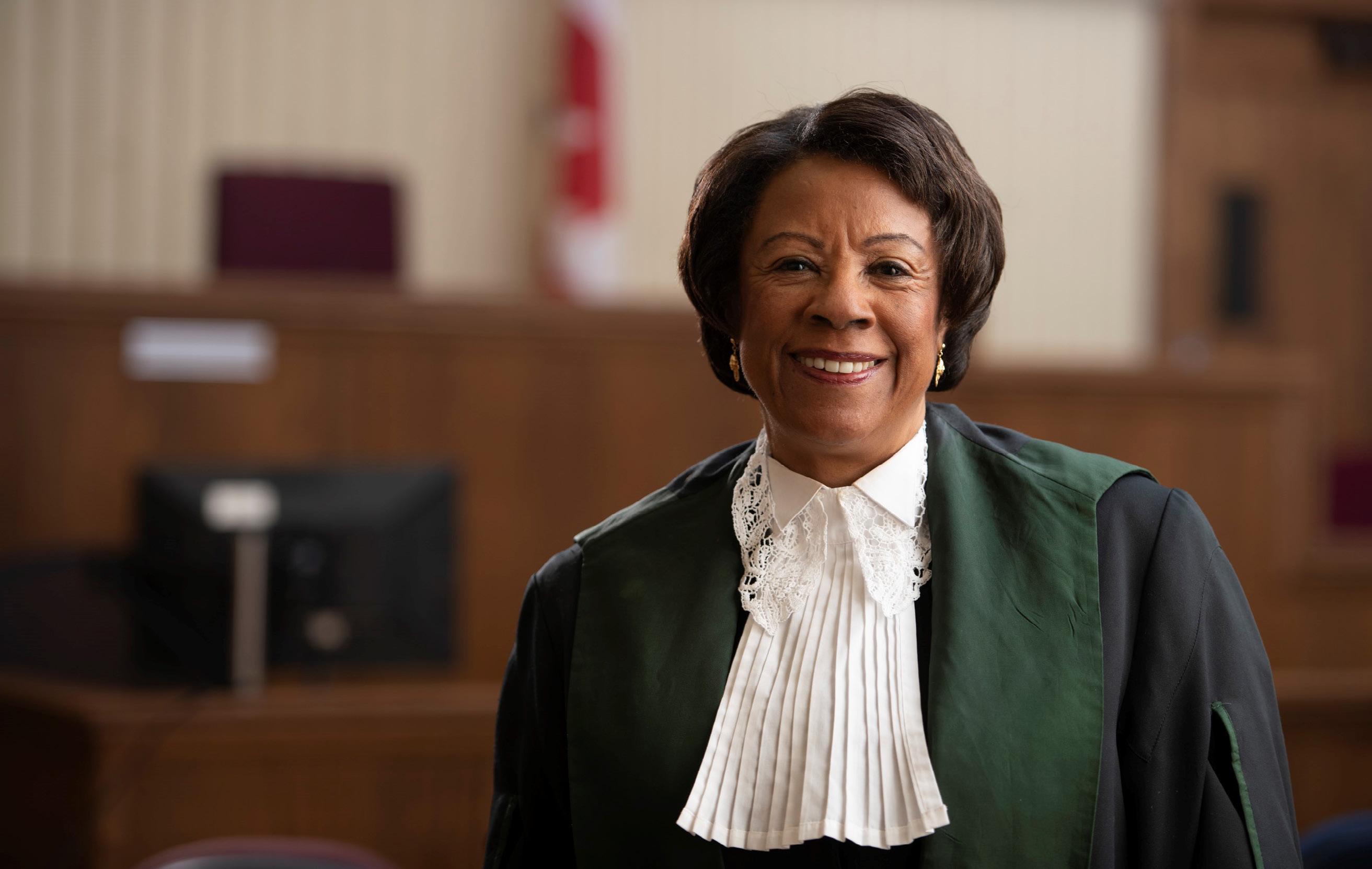
Law school opened doors for me and gave me the opportunity to build a successful career. With my legacy gift, I hope to provide support to deserving students and inspire them to reach their goals in life.
If you’re thinking of including Dal in your estate plans, we can help you match your gift to your wishes.
Explore the possibilities at dal.ca/plannedgiving
Or get in touch, we’re here to answer your questions. Please contact Terri Mann at legacy@dal.ca or 902.877.6589
“
